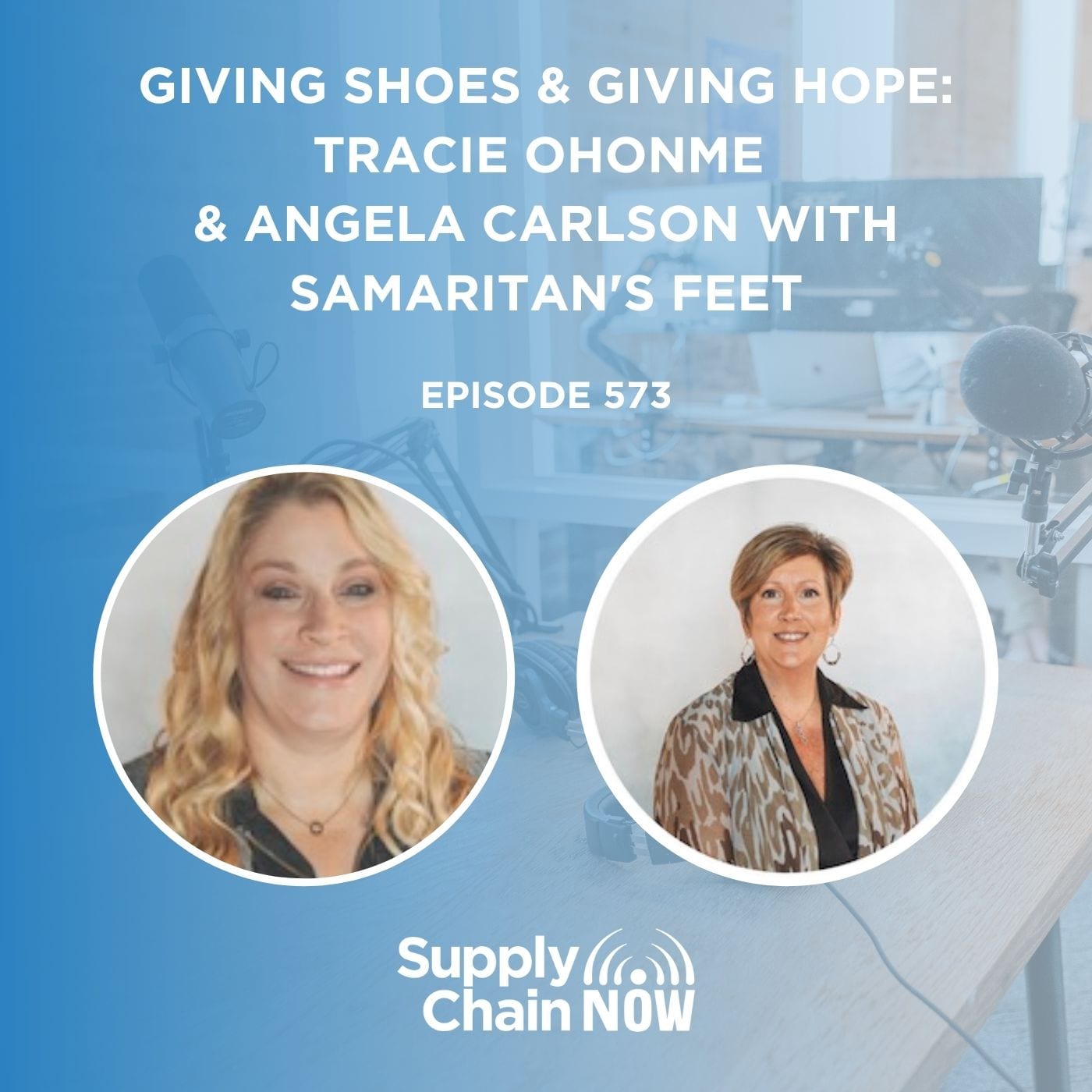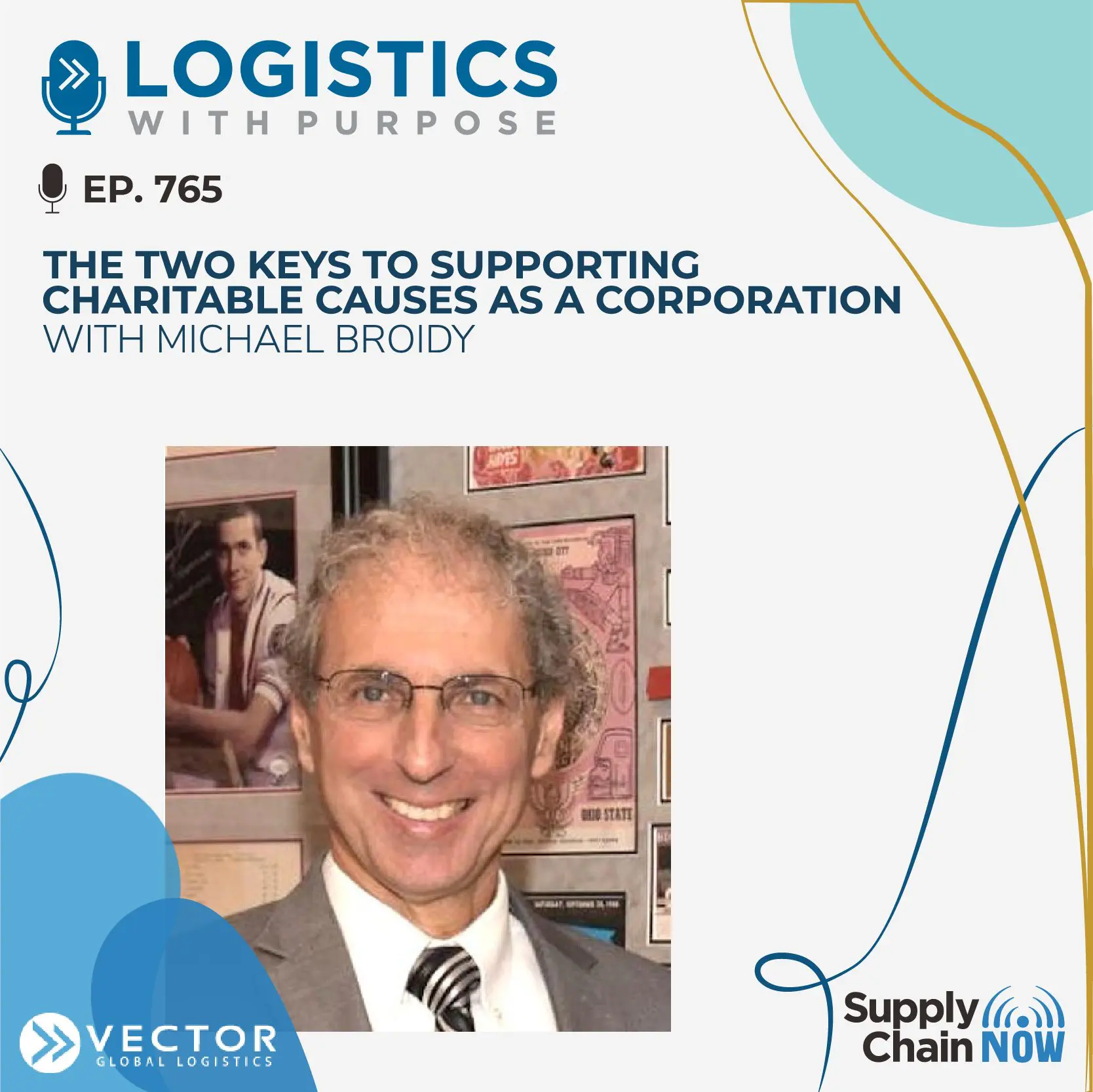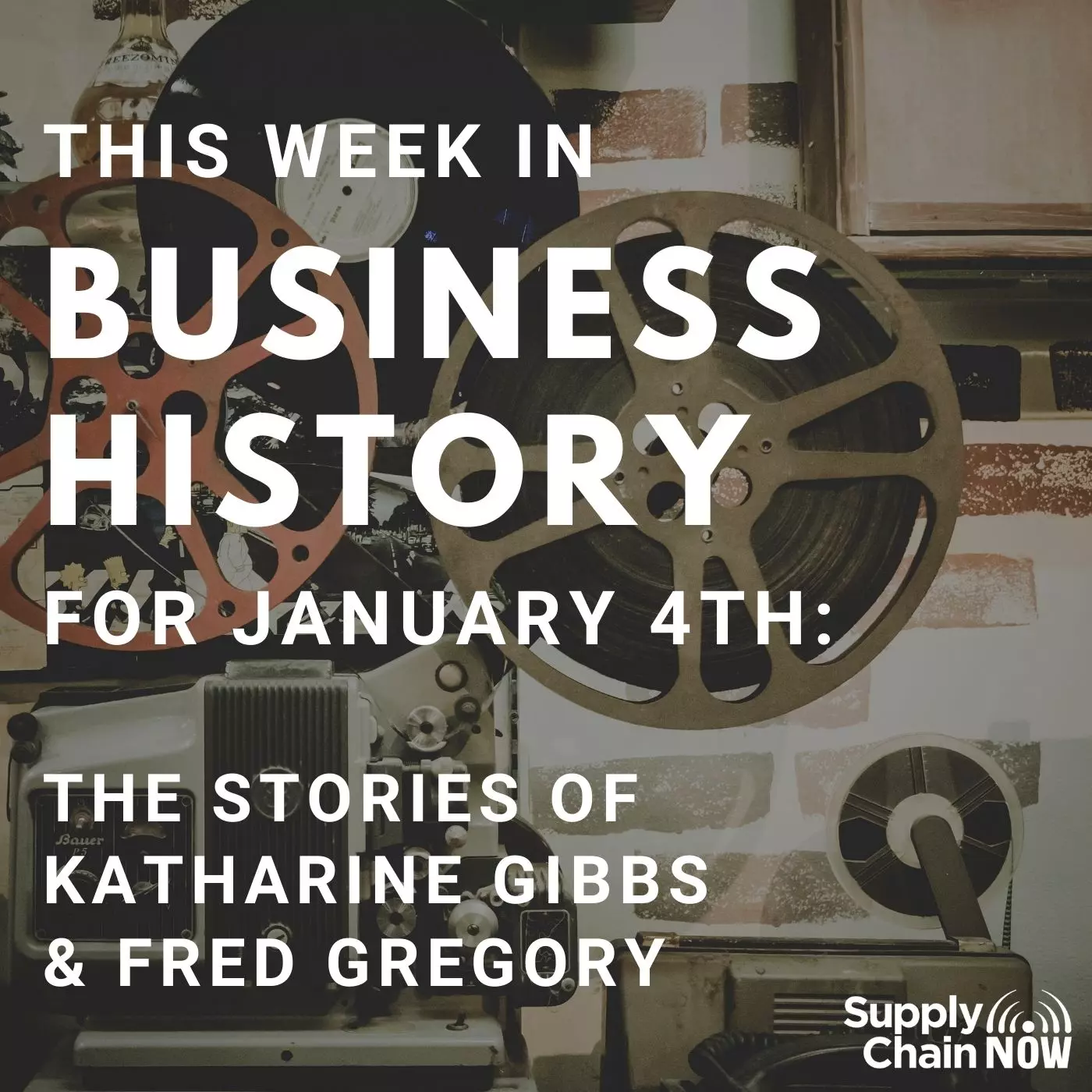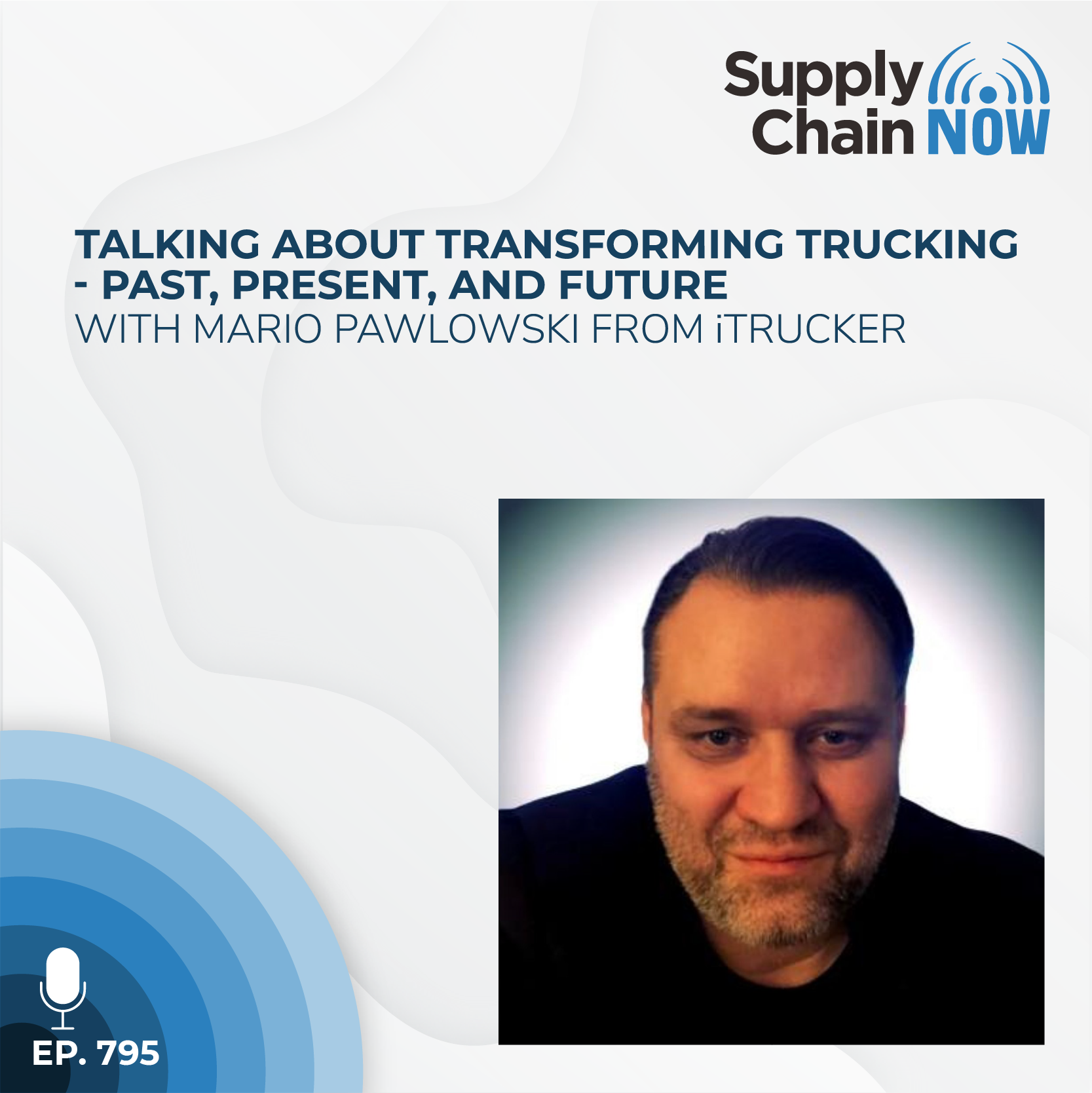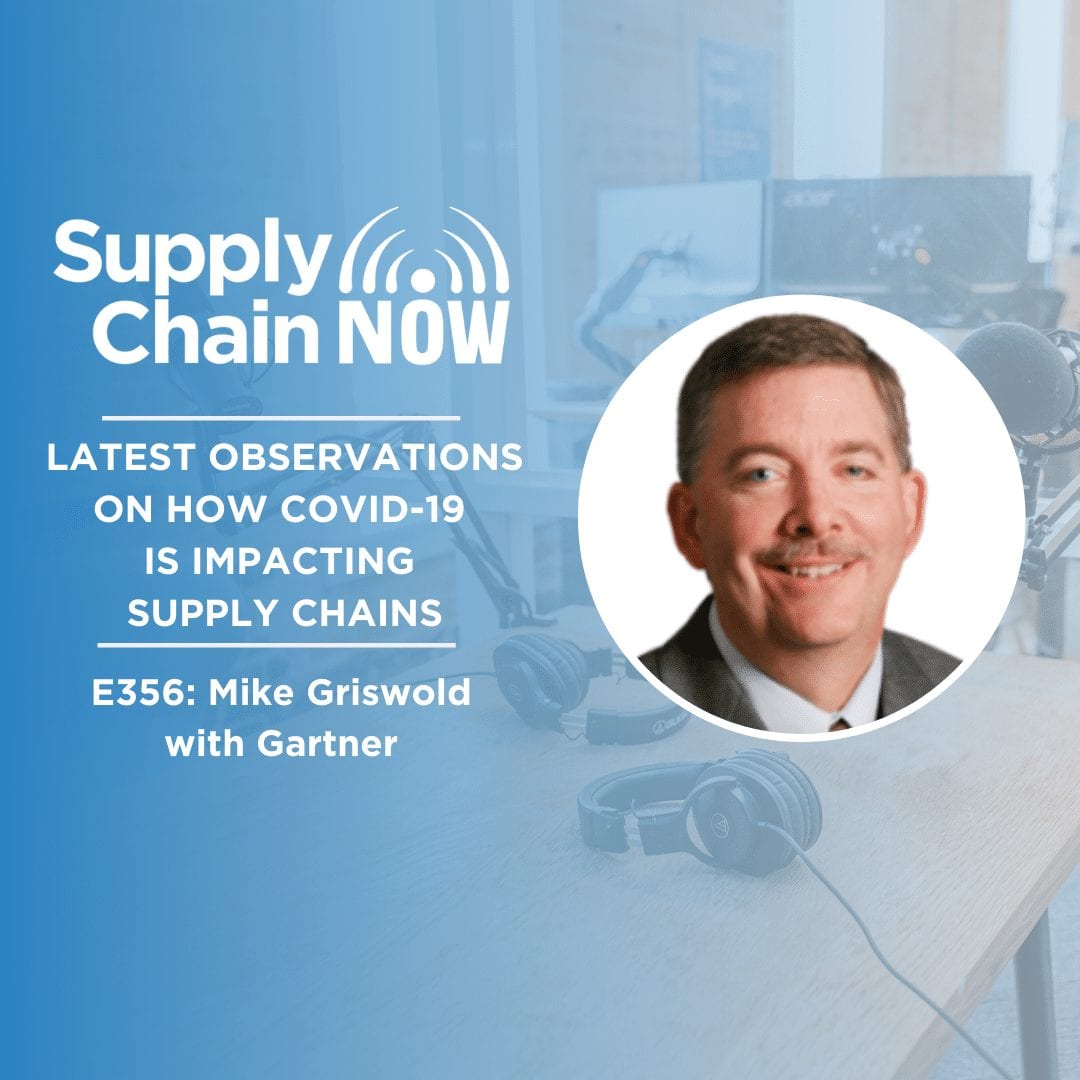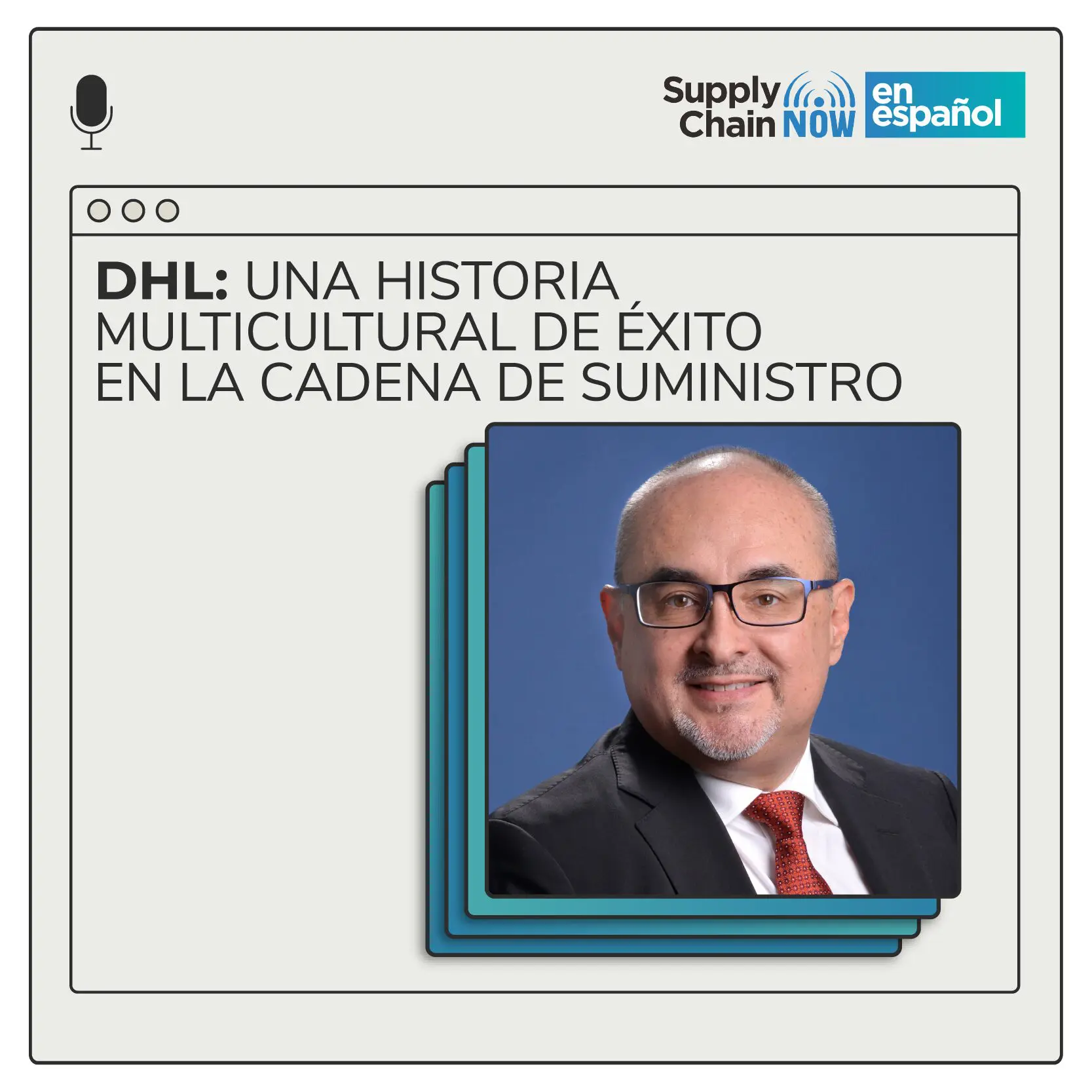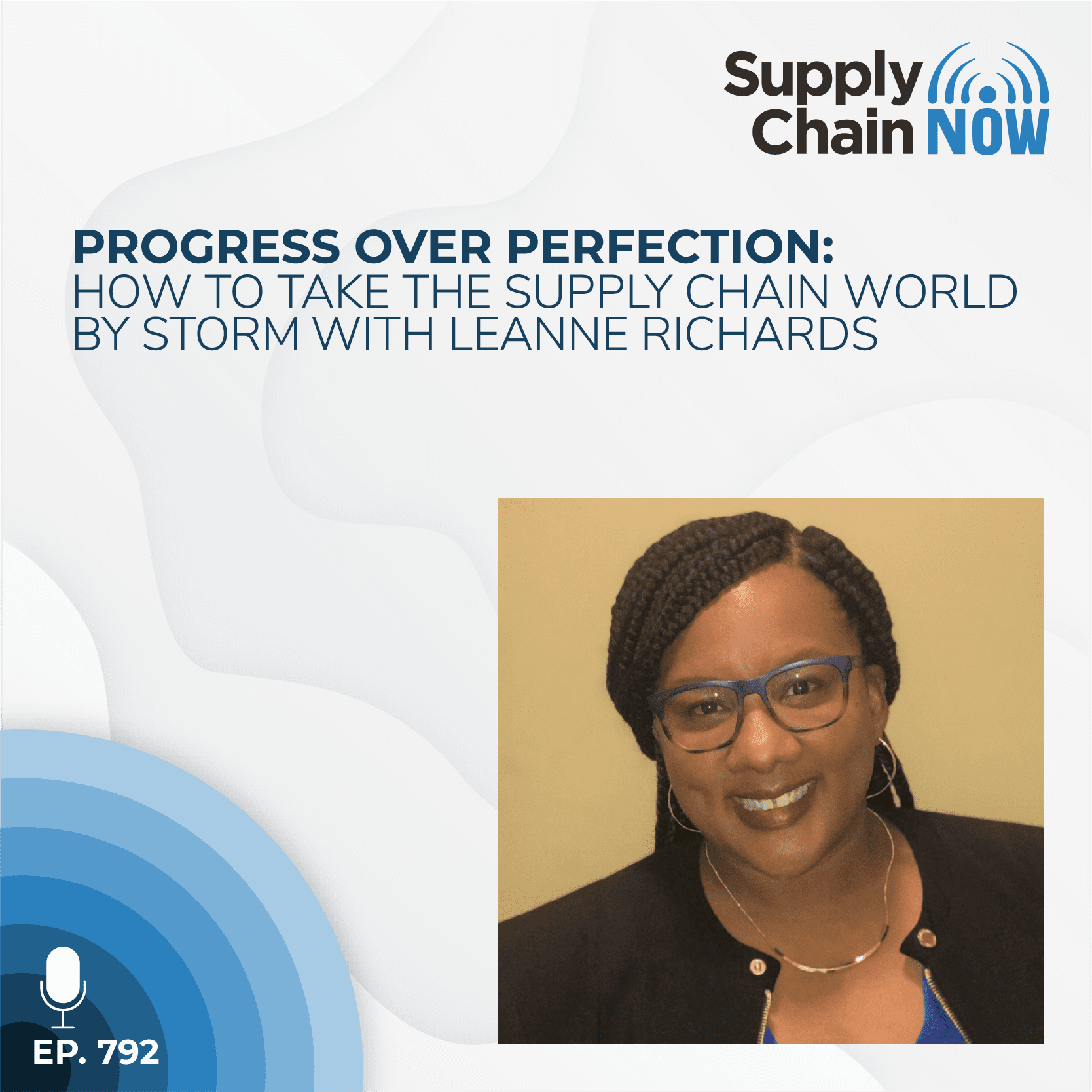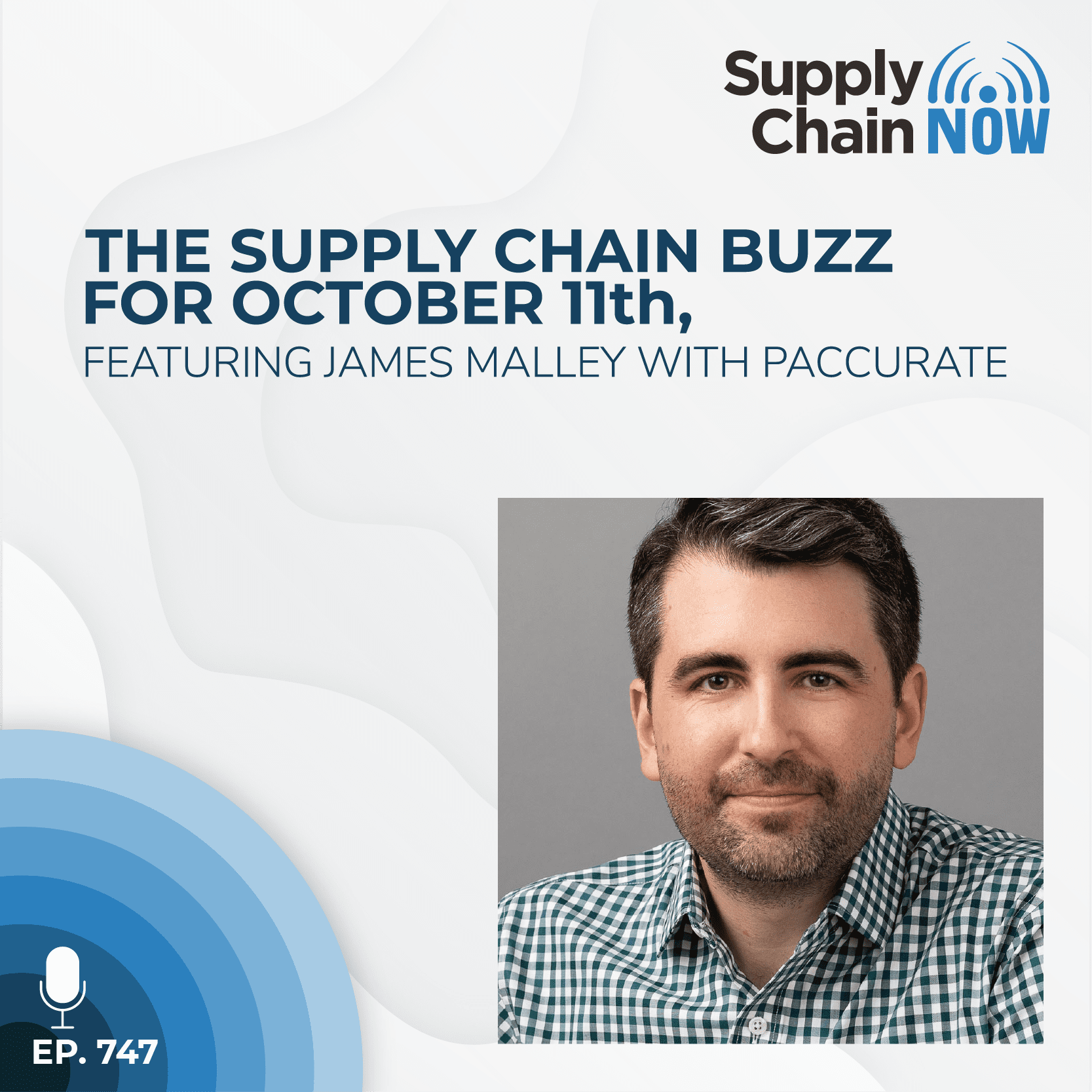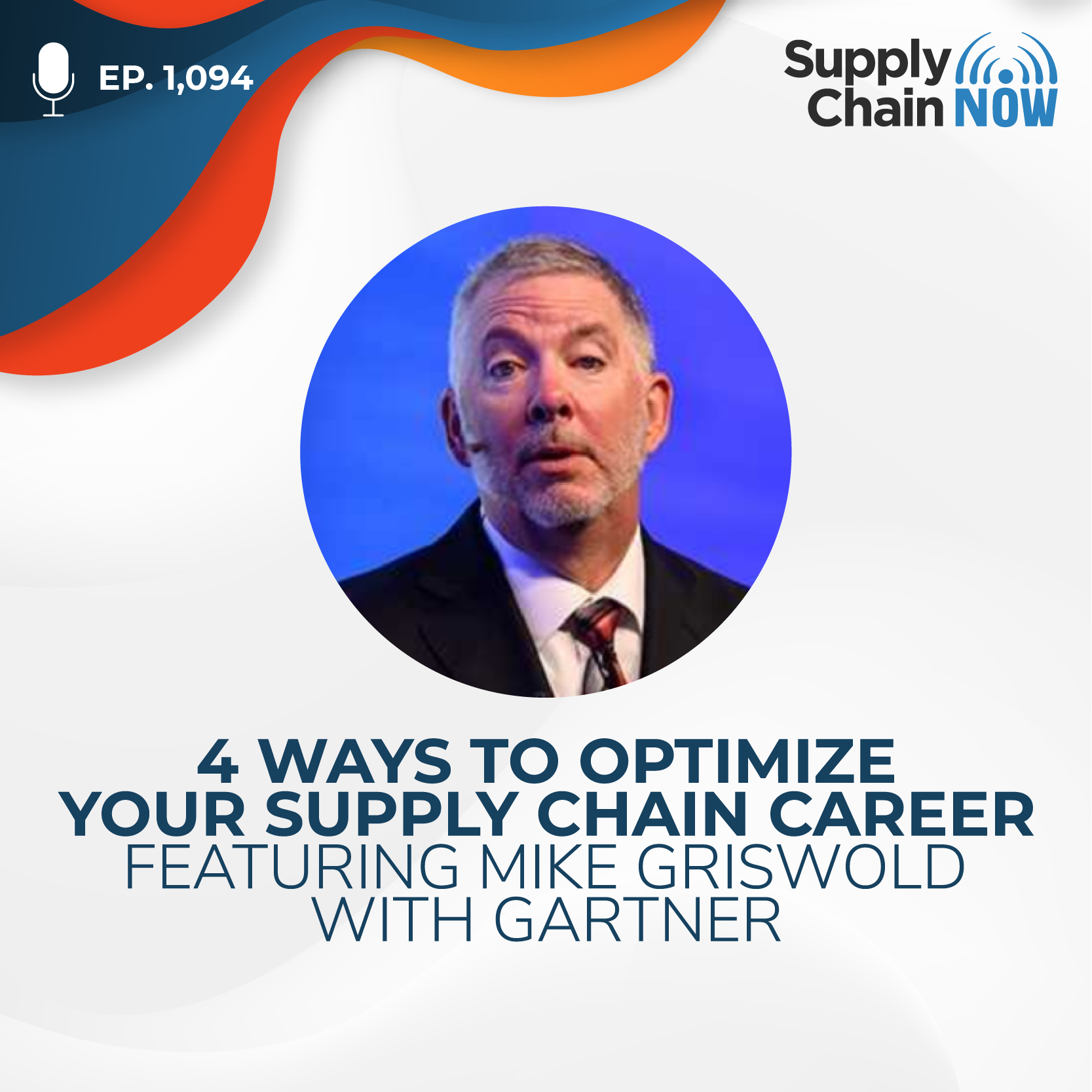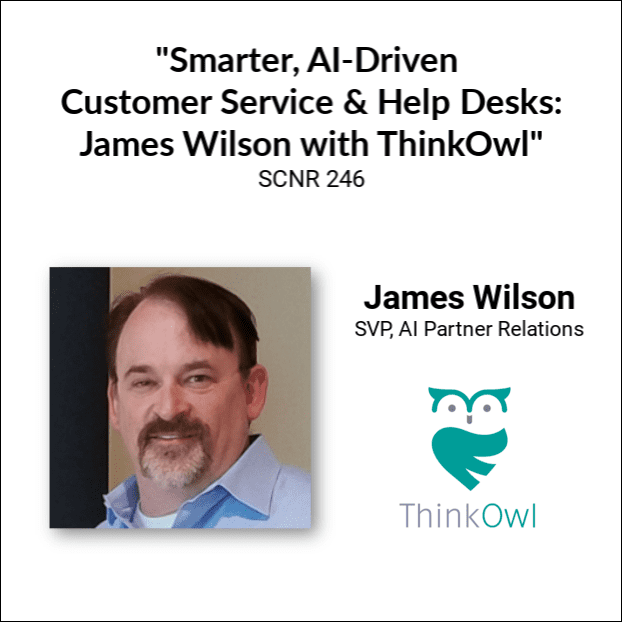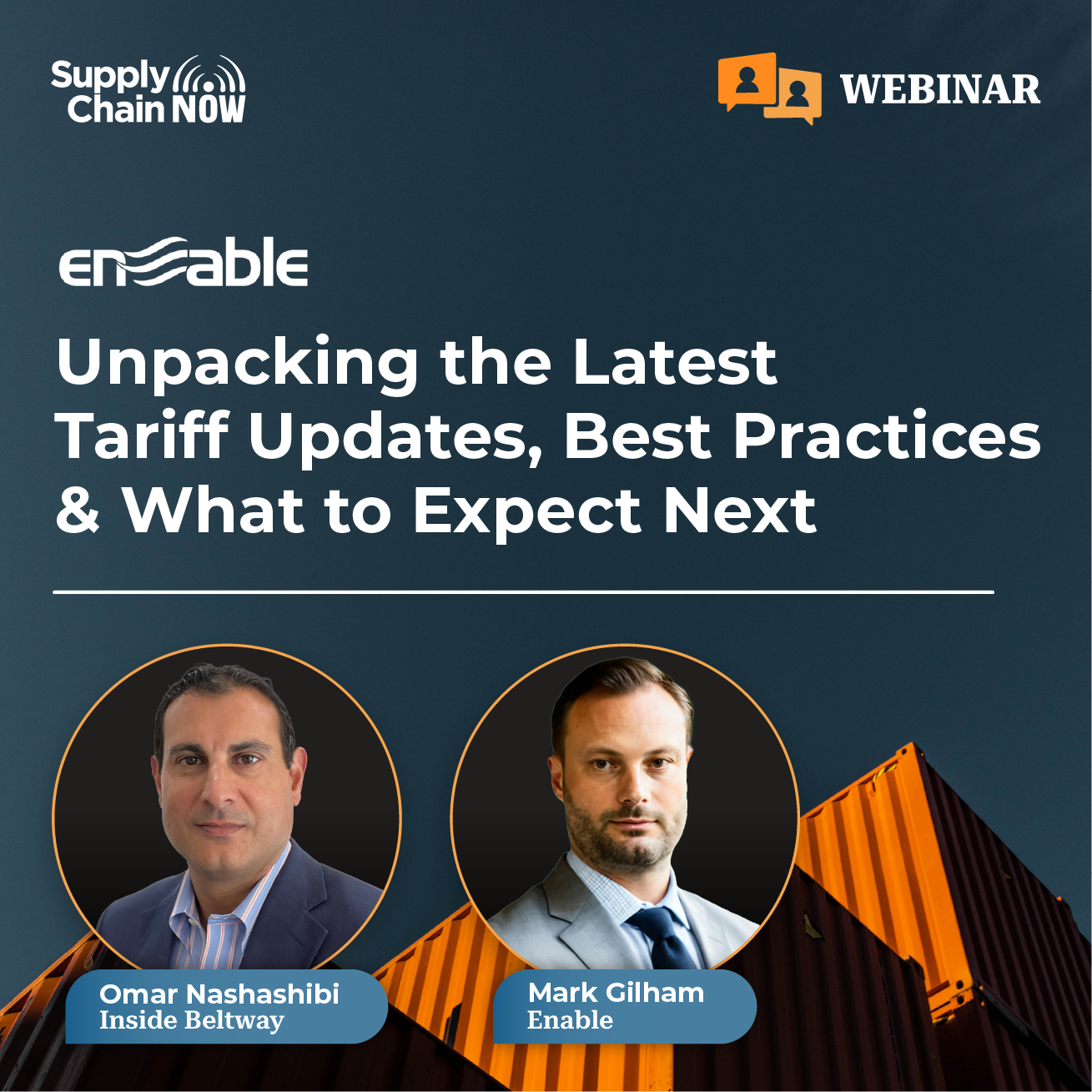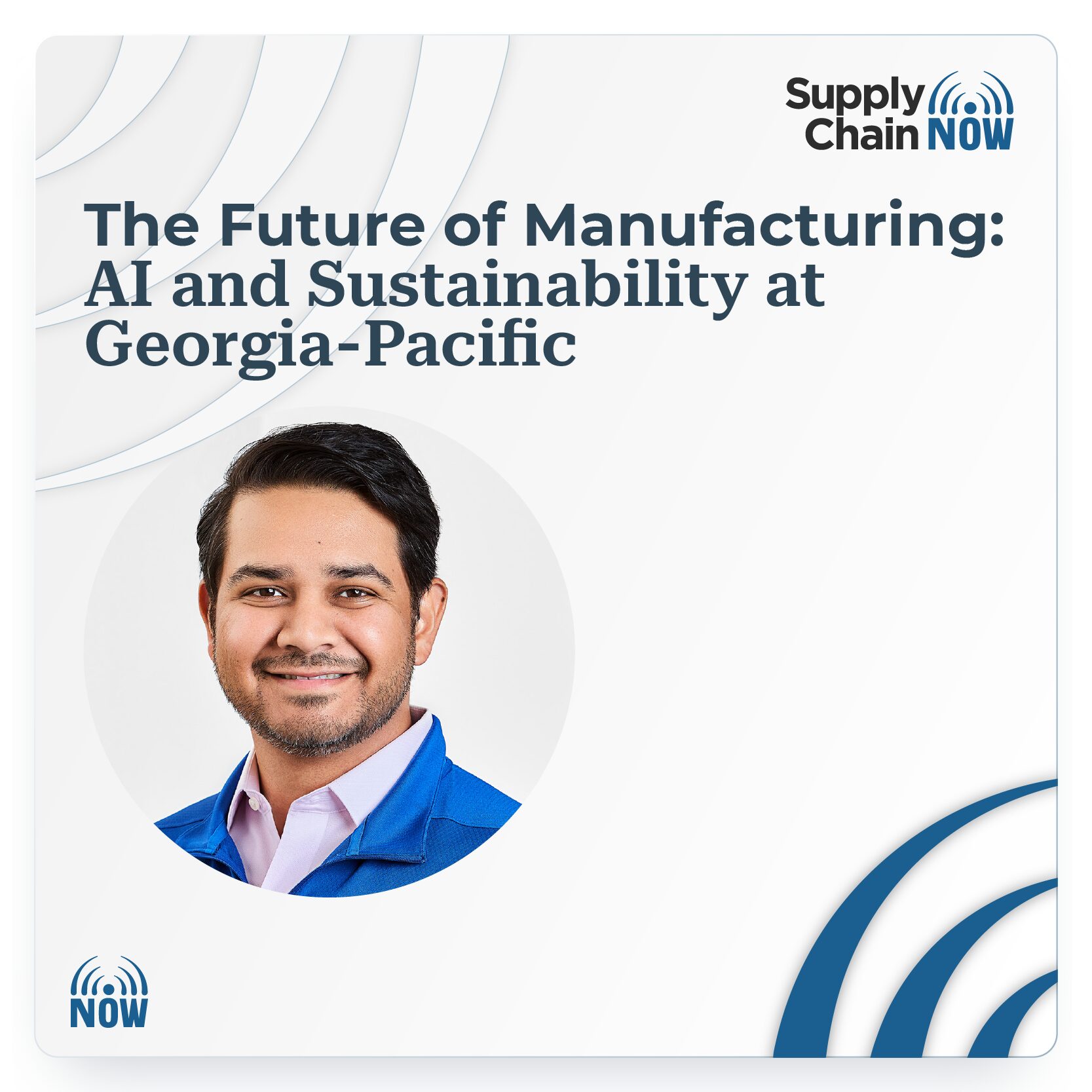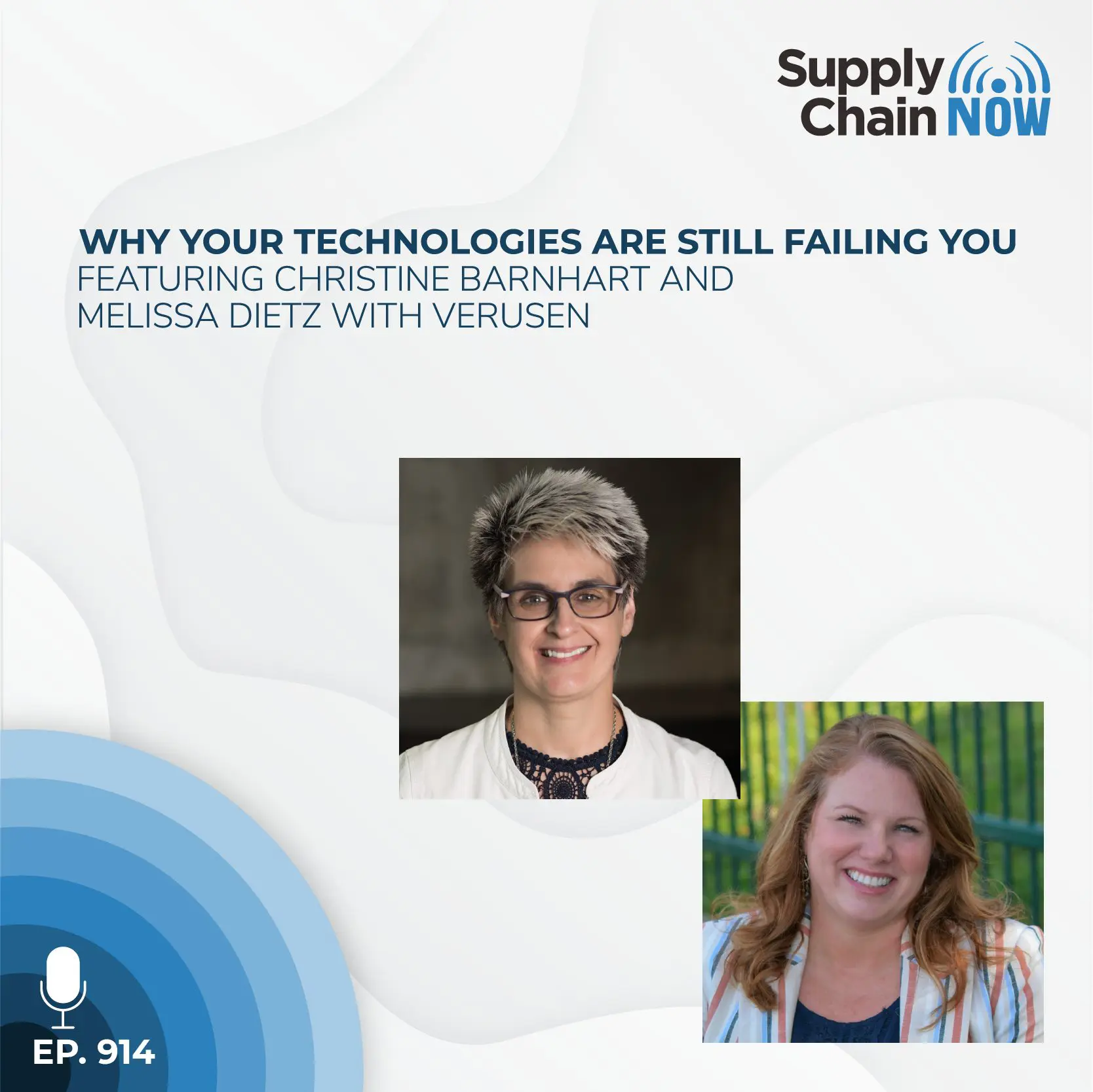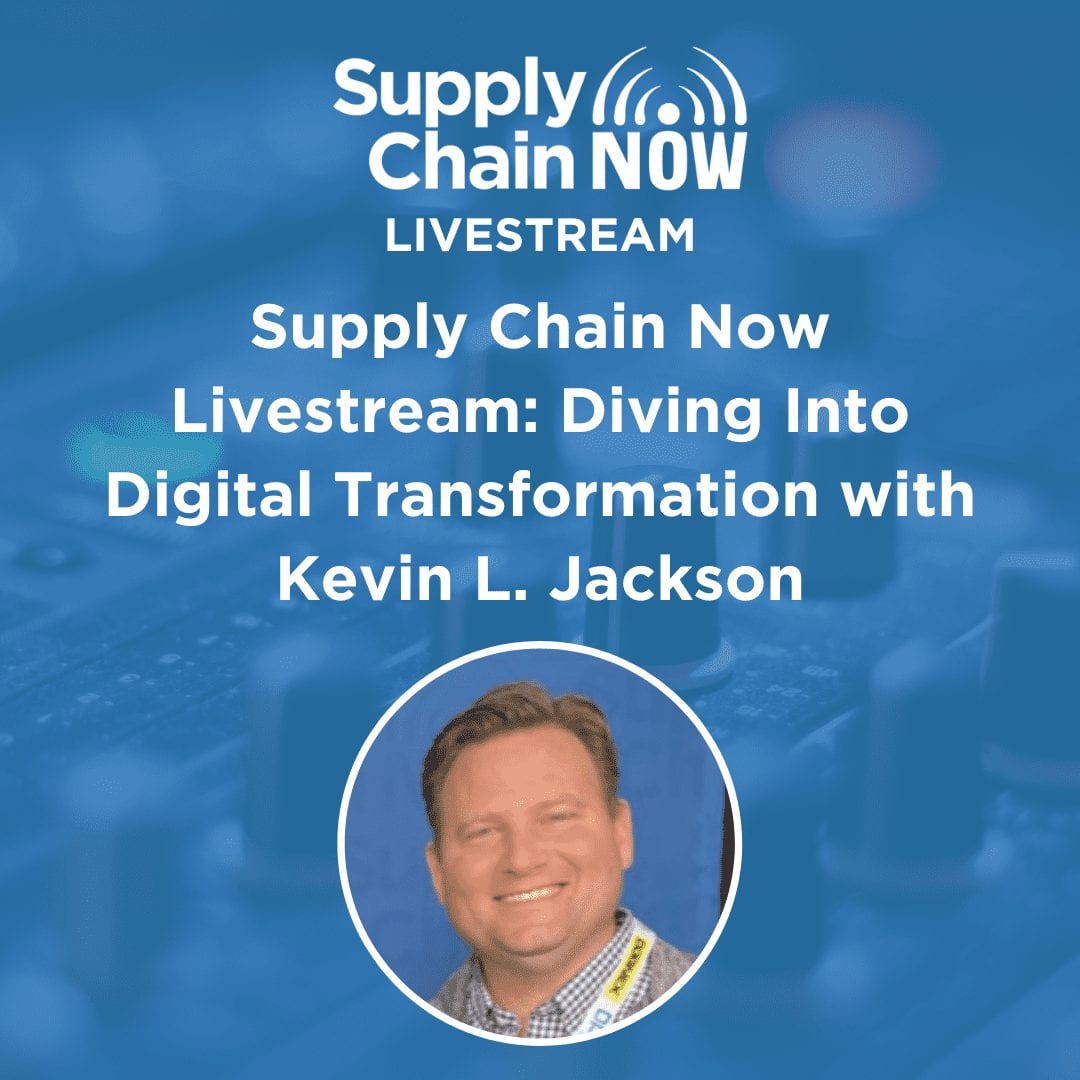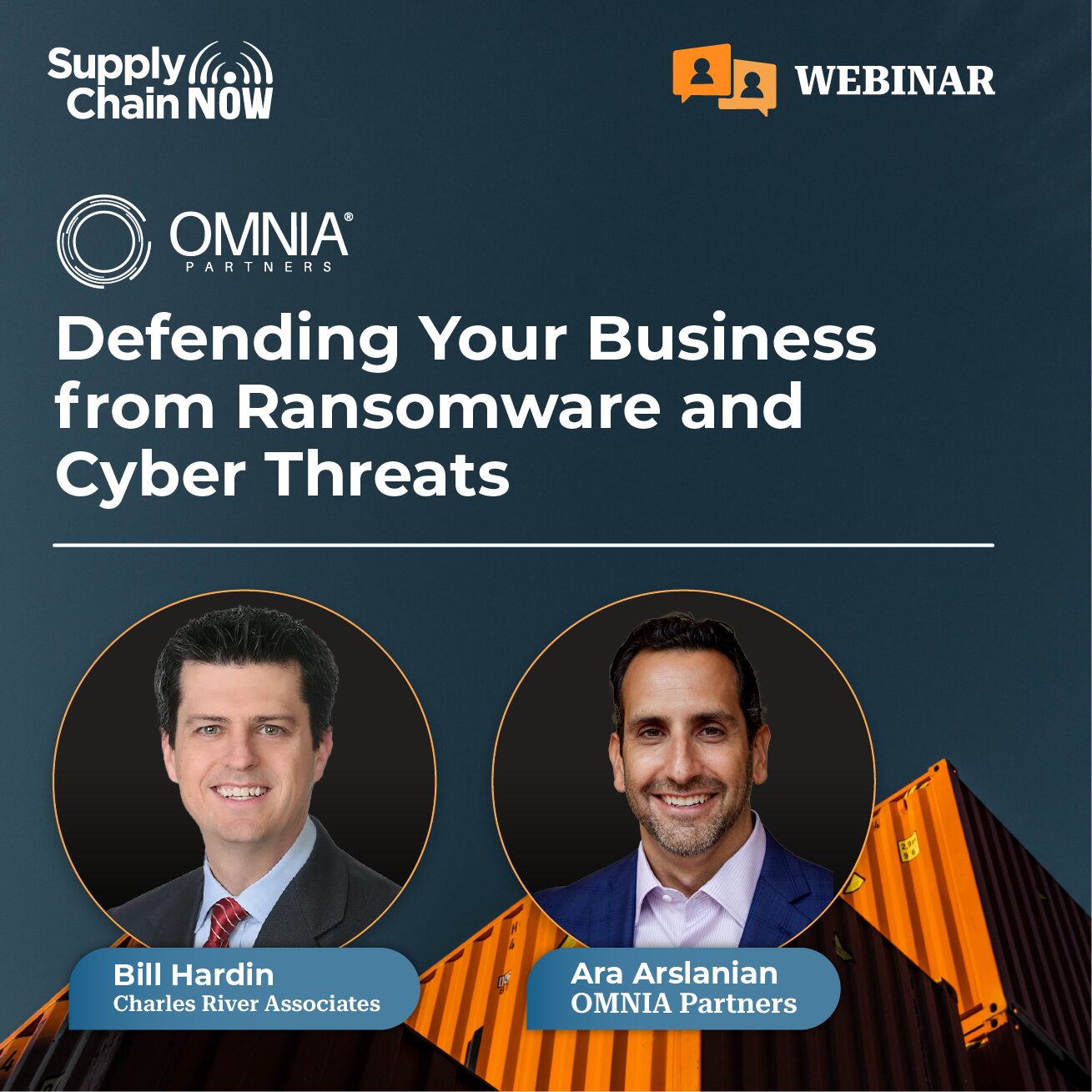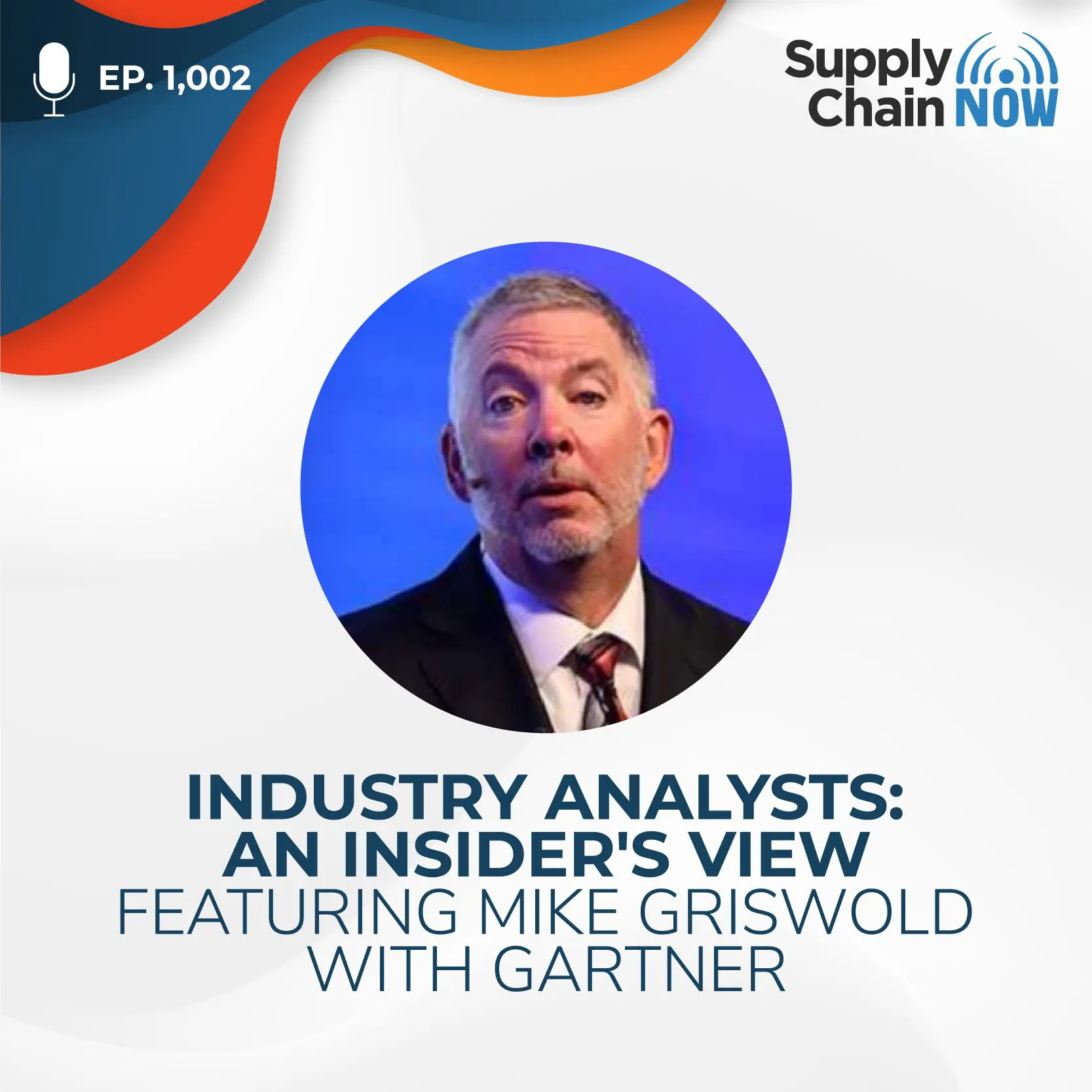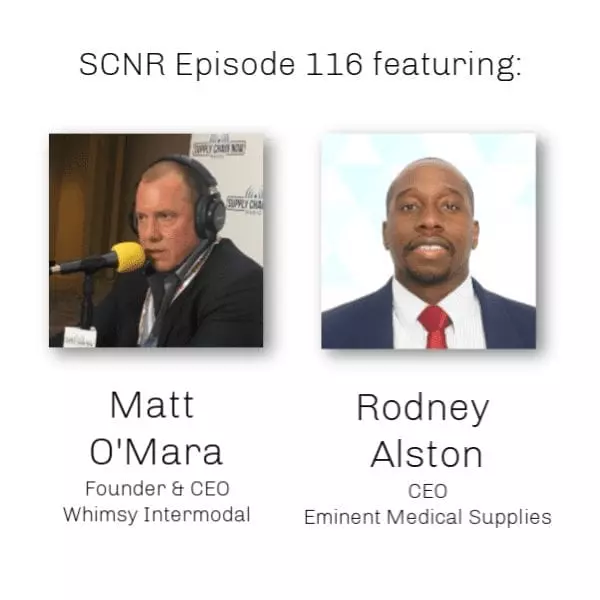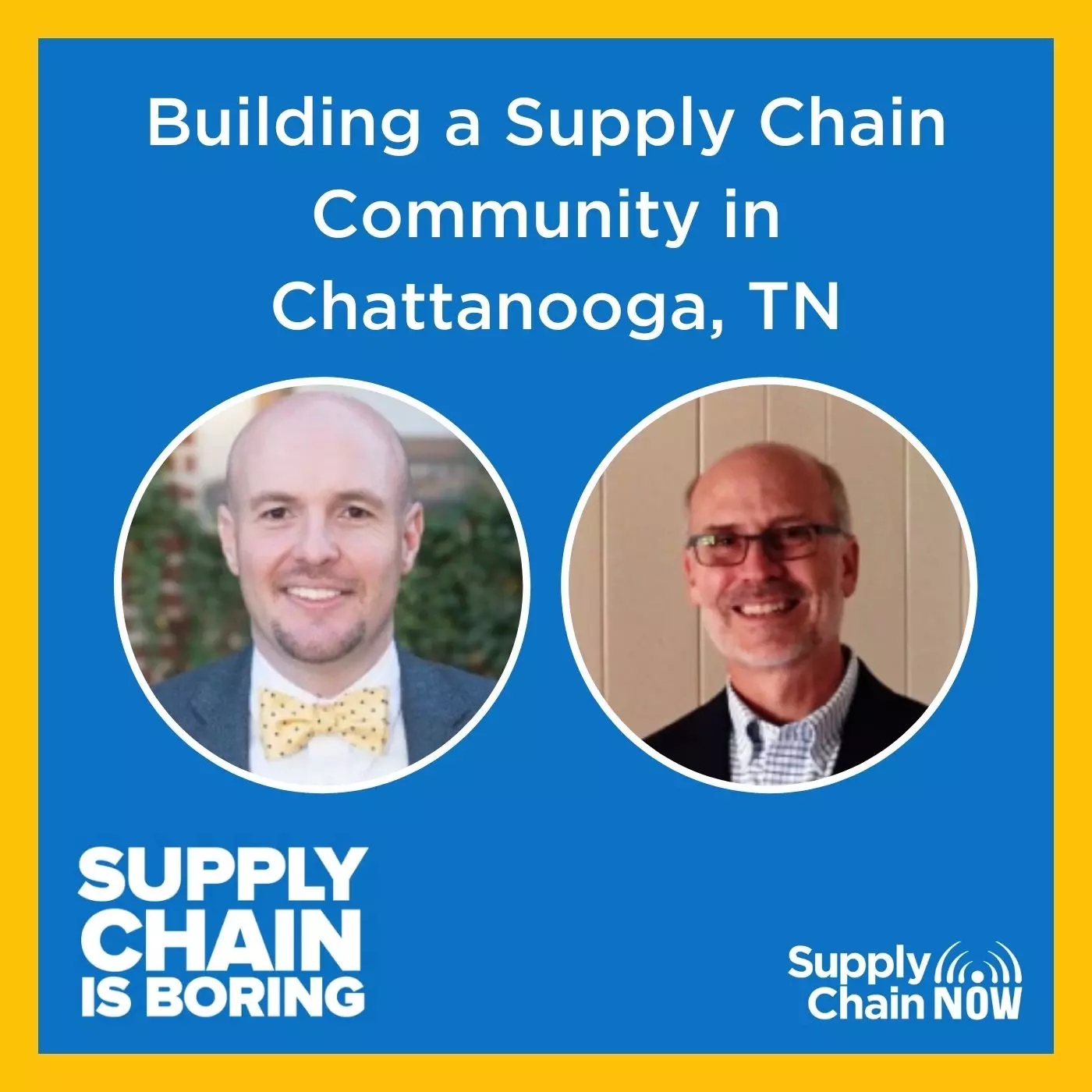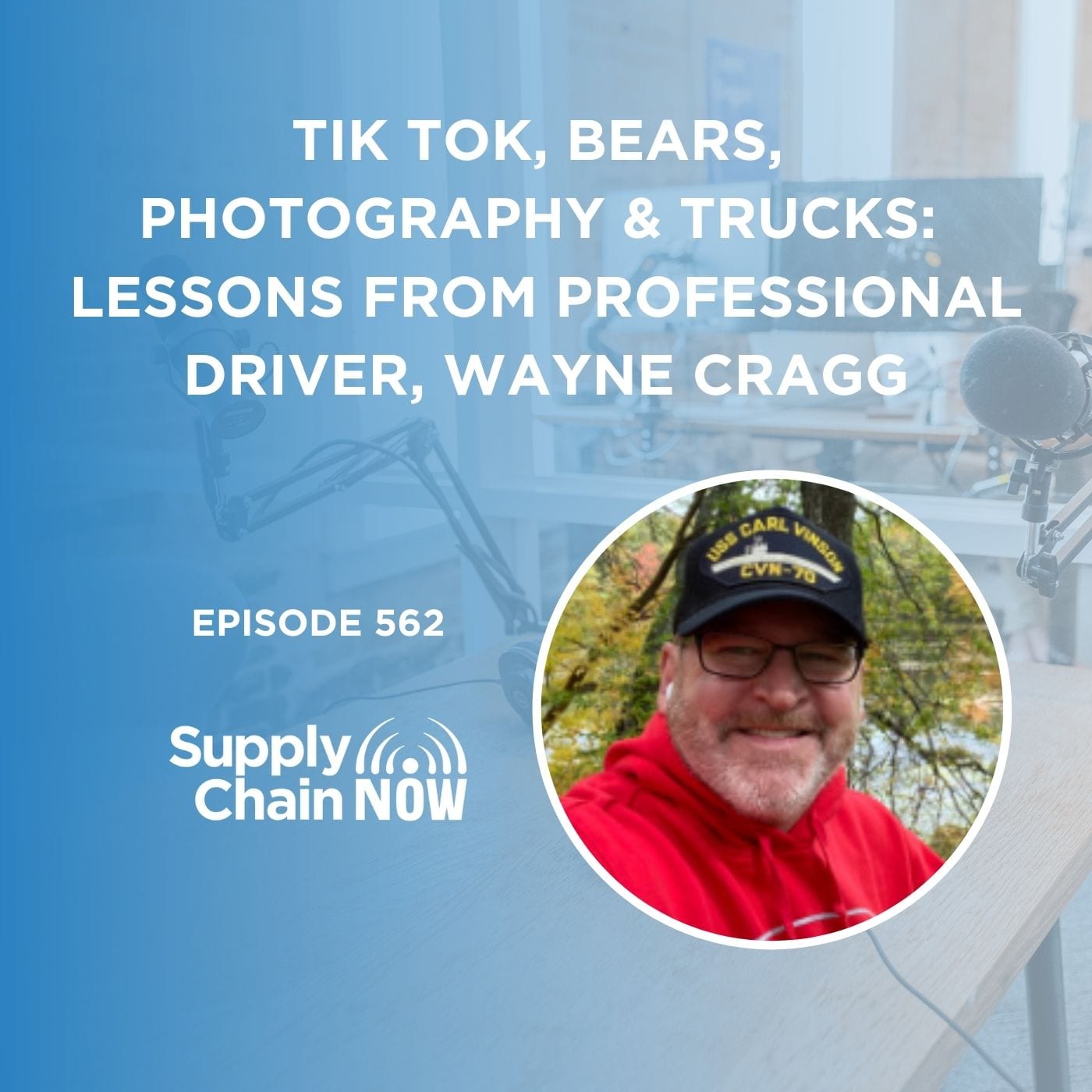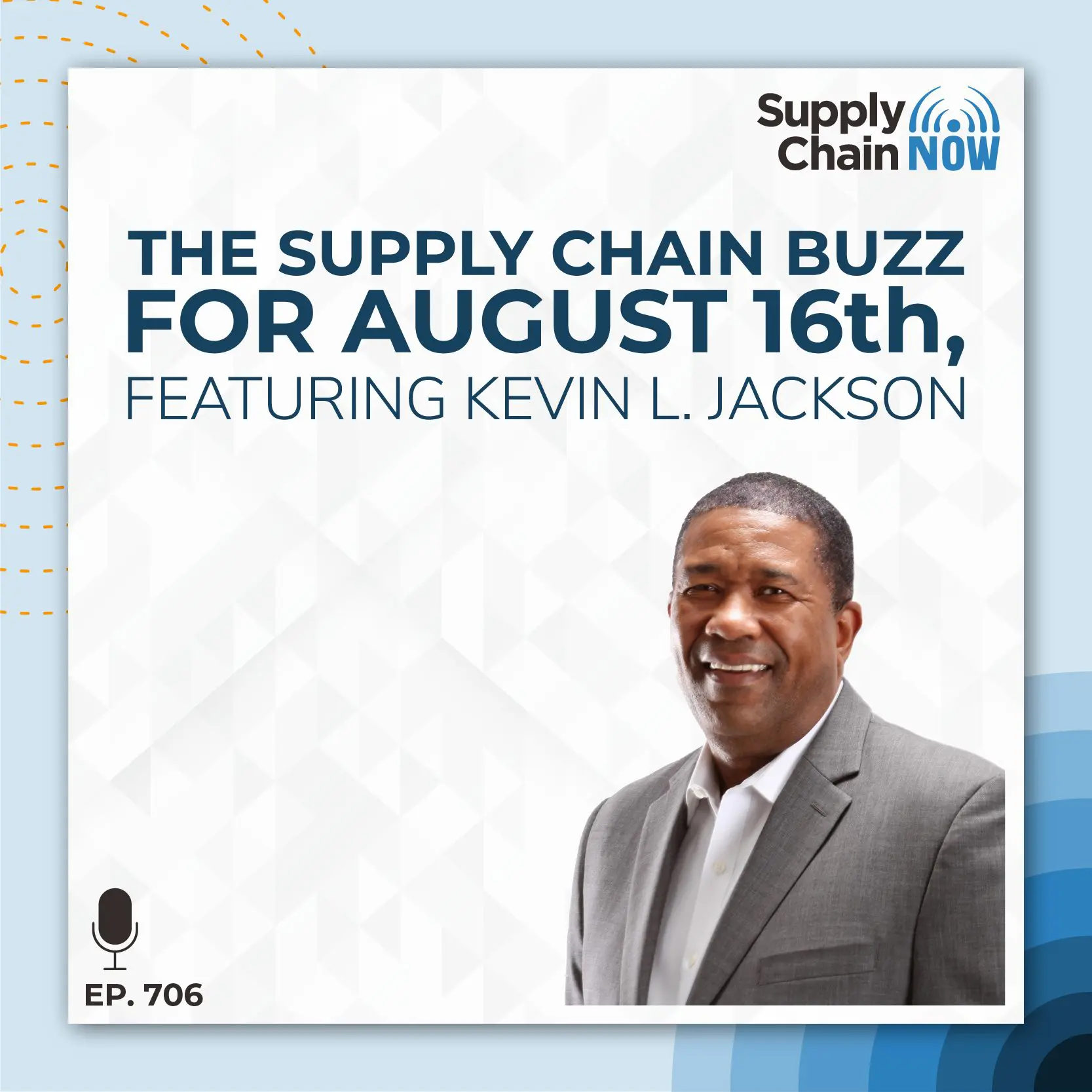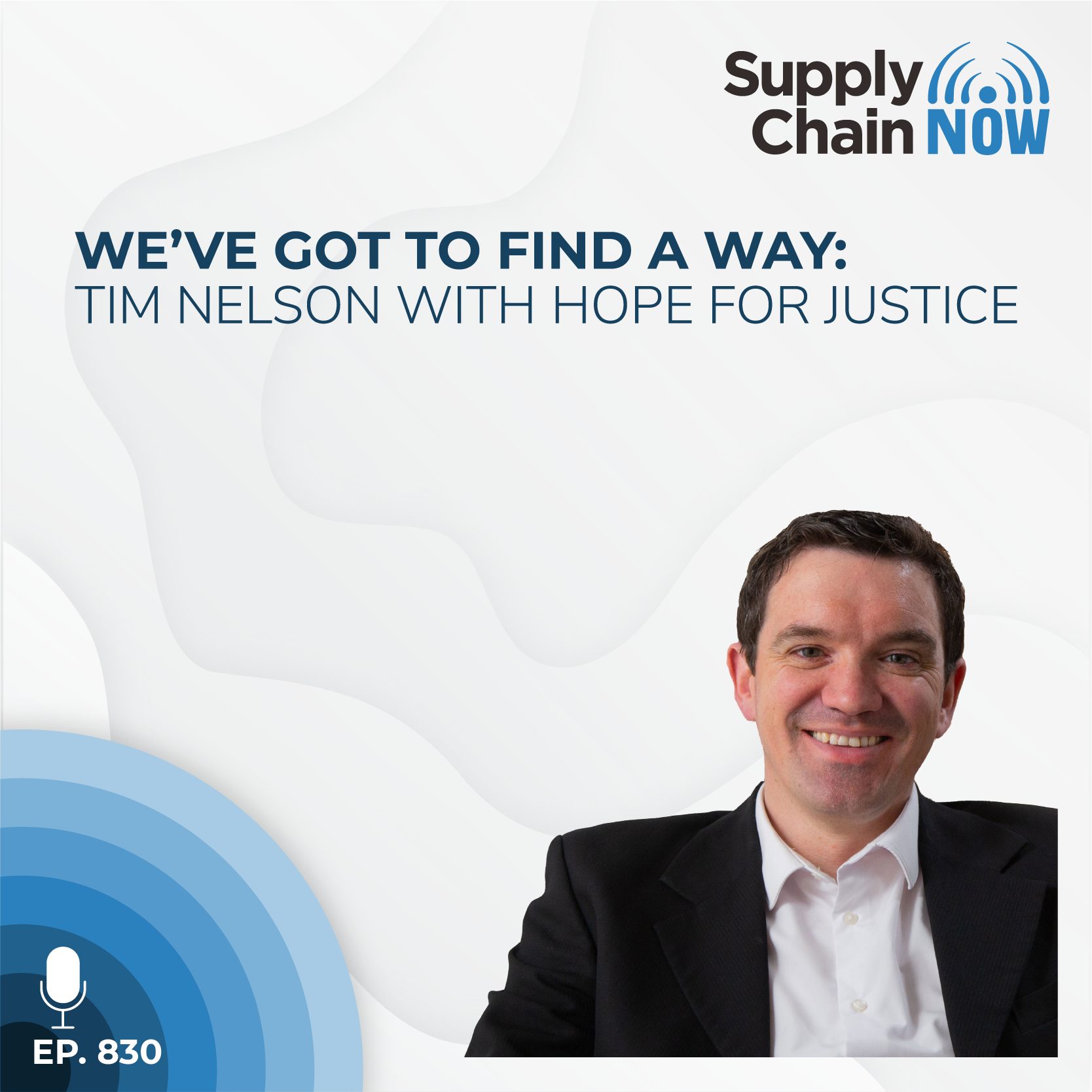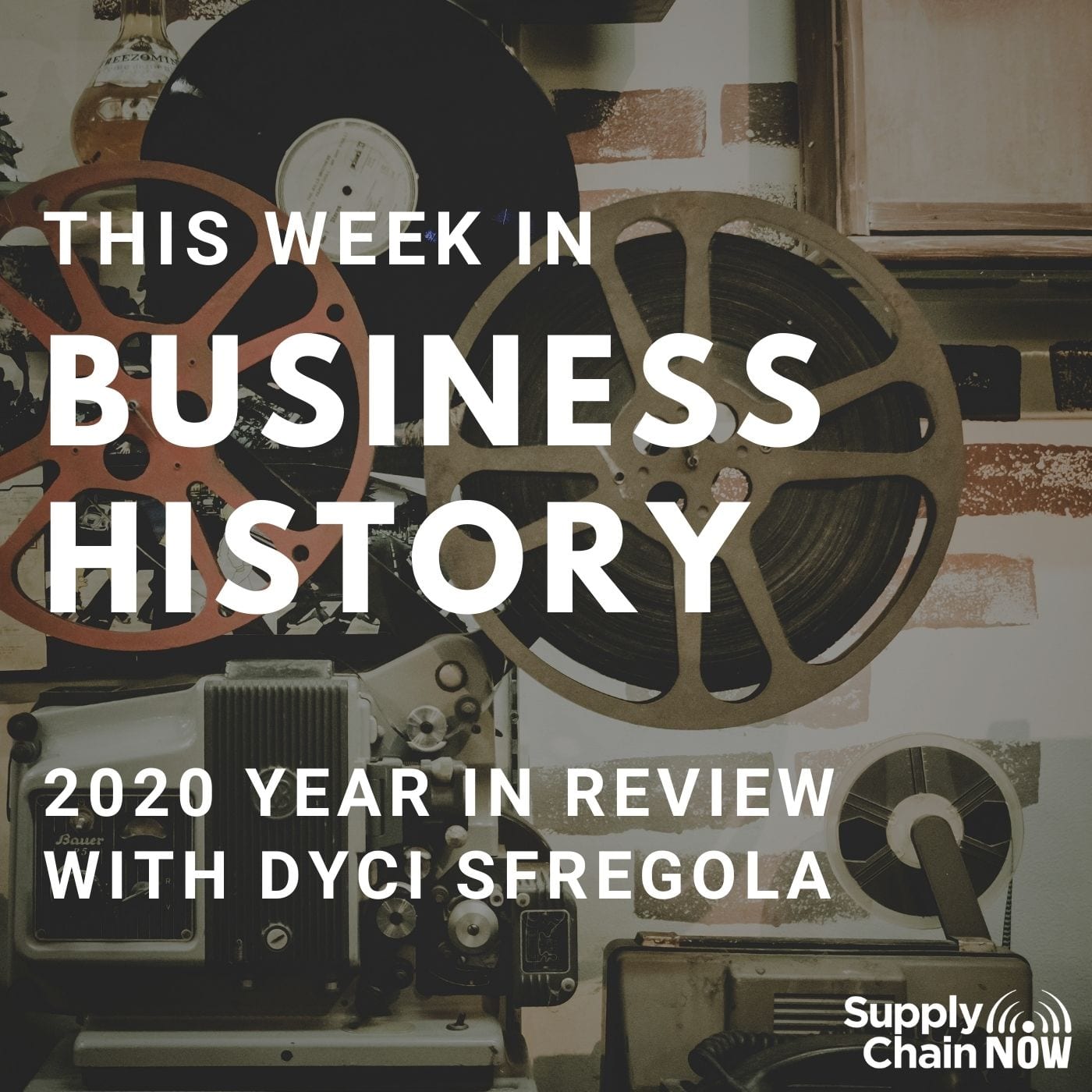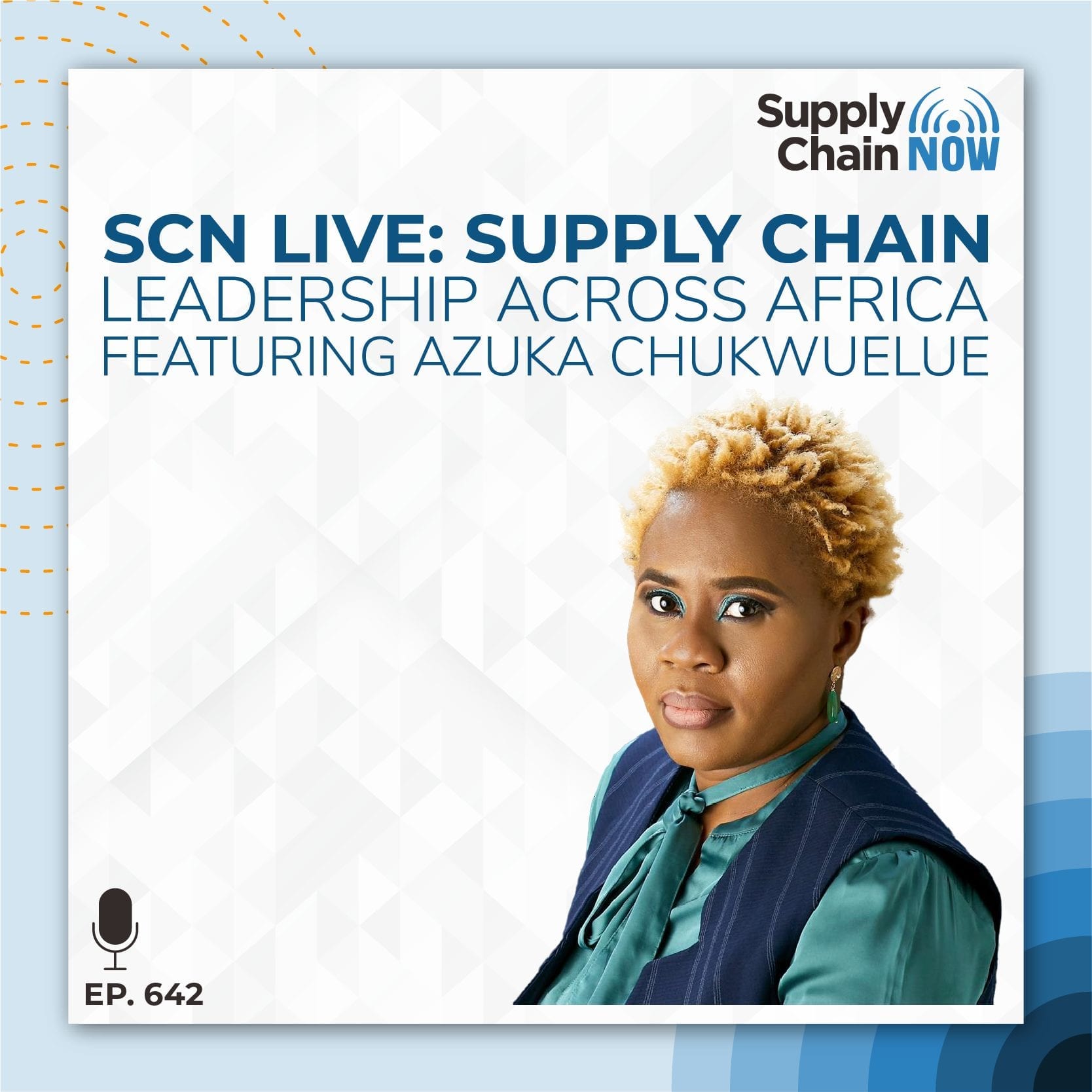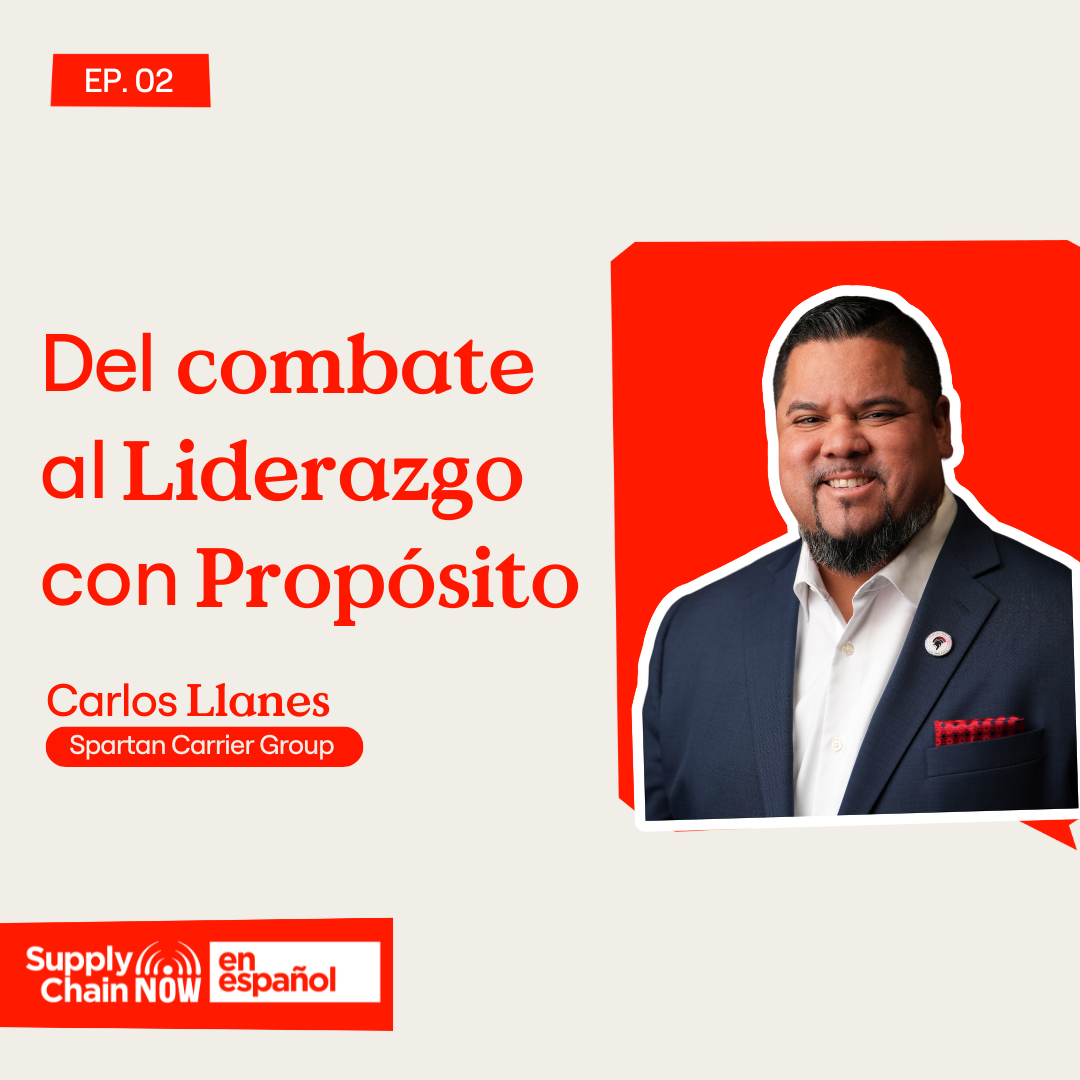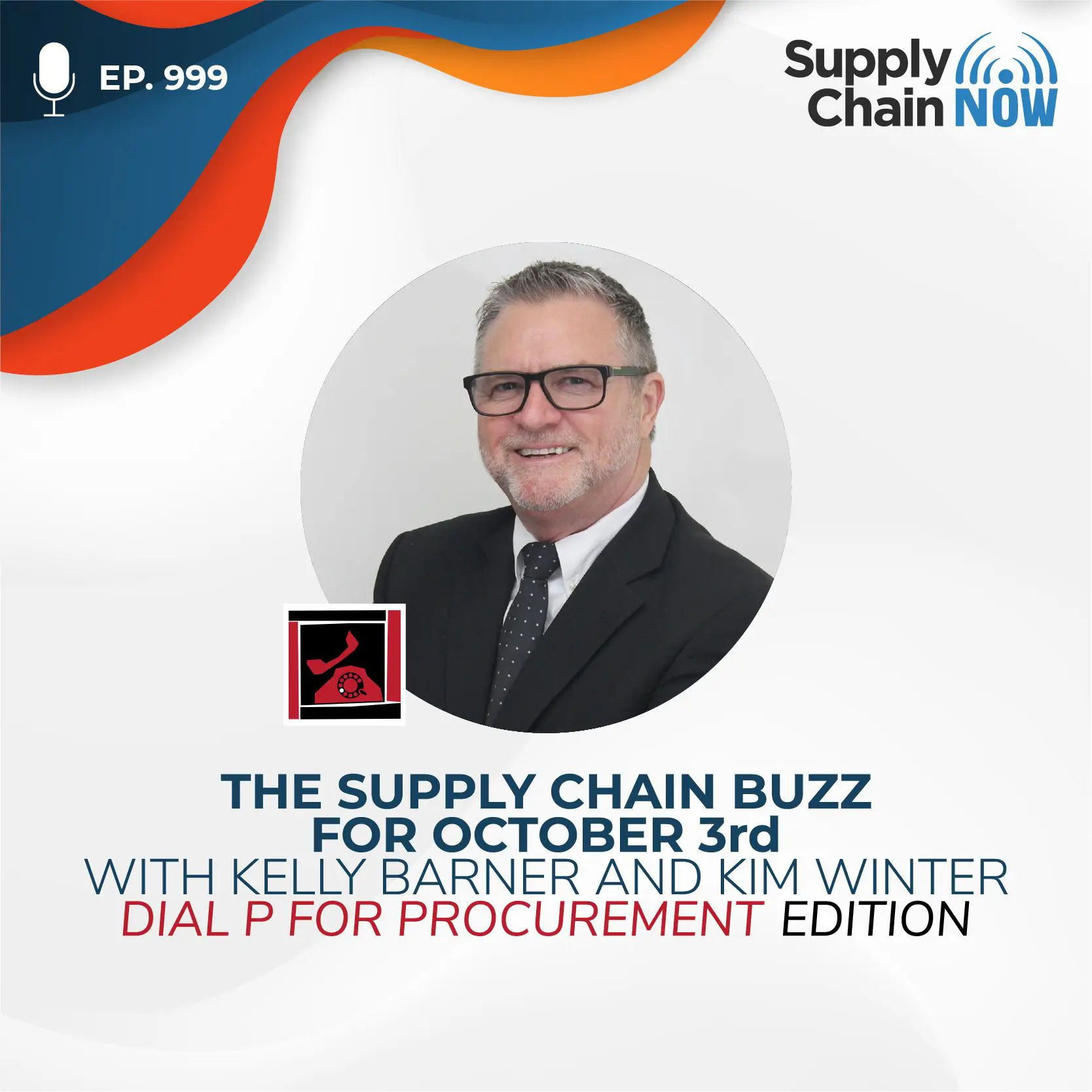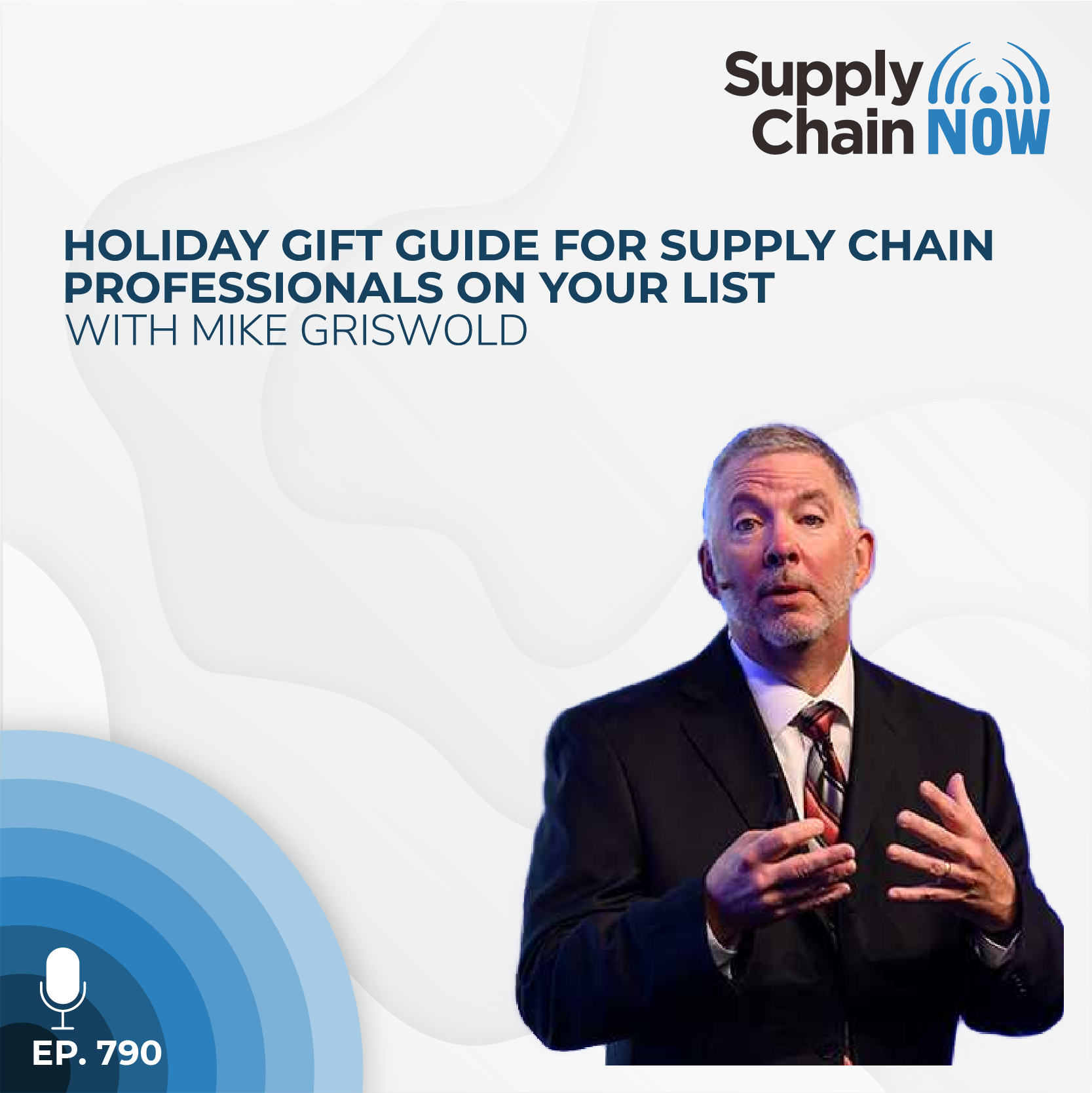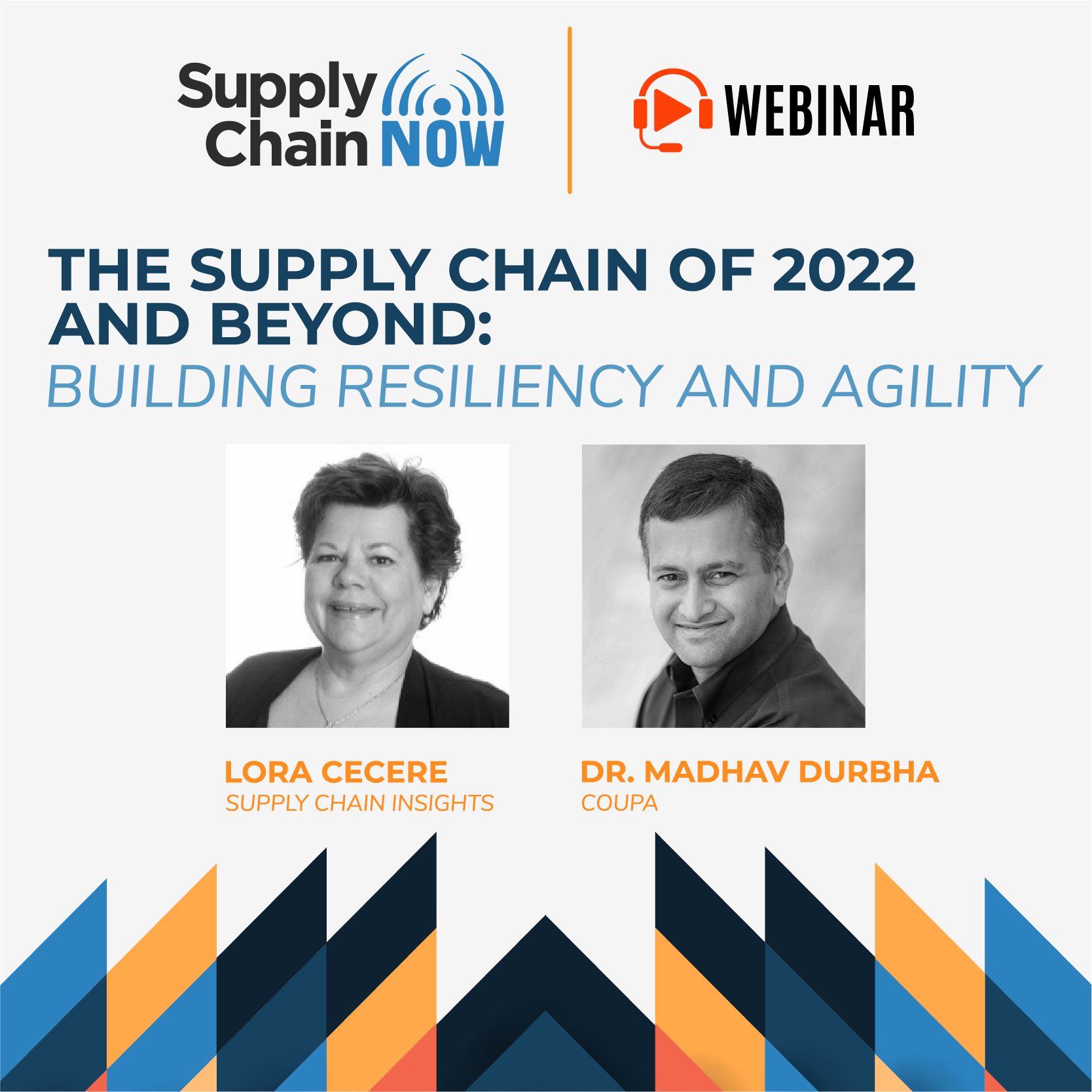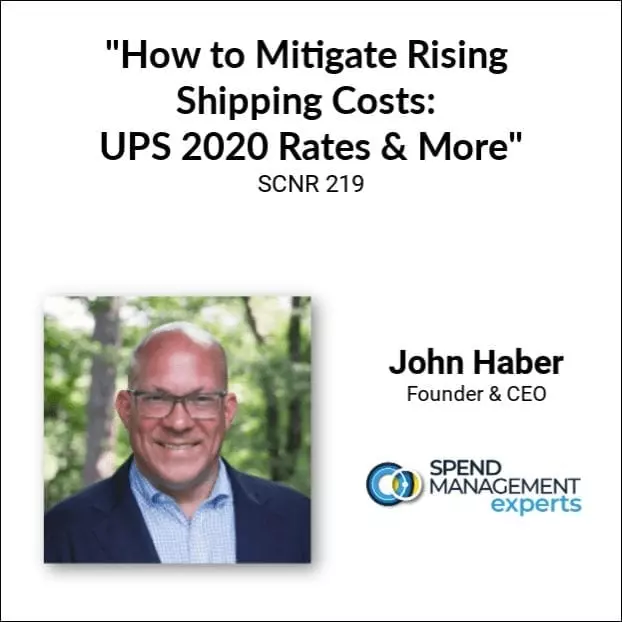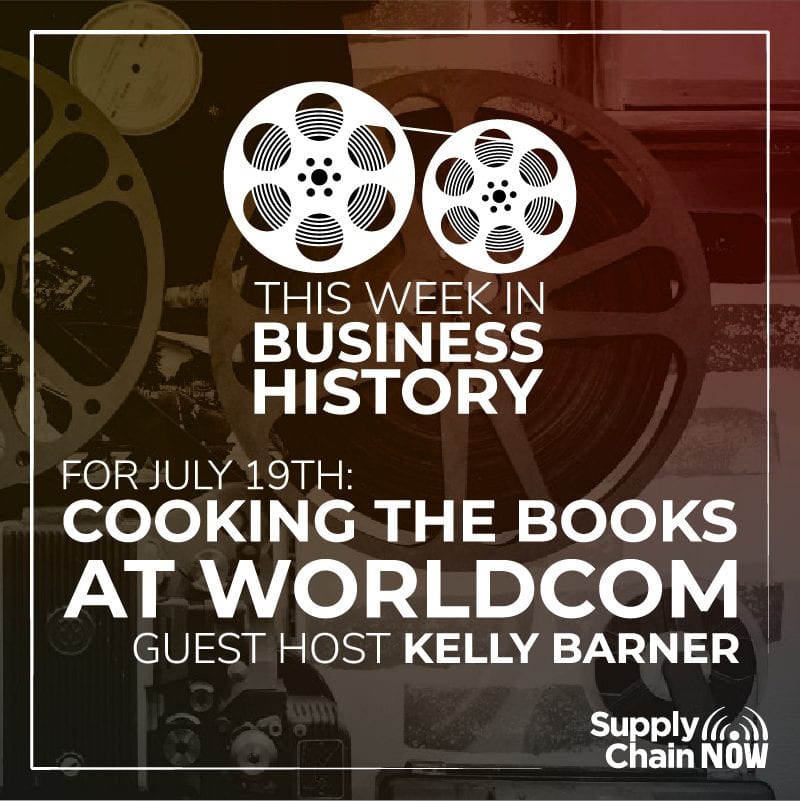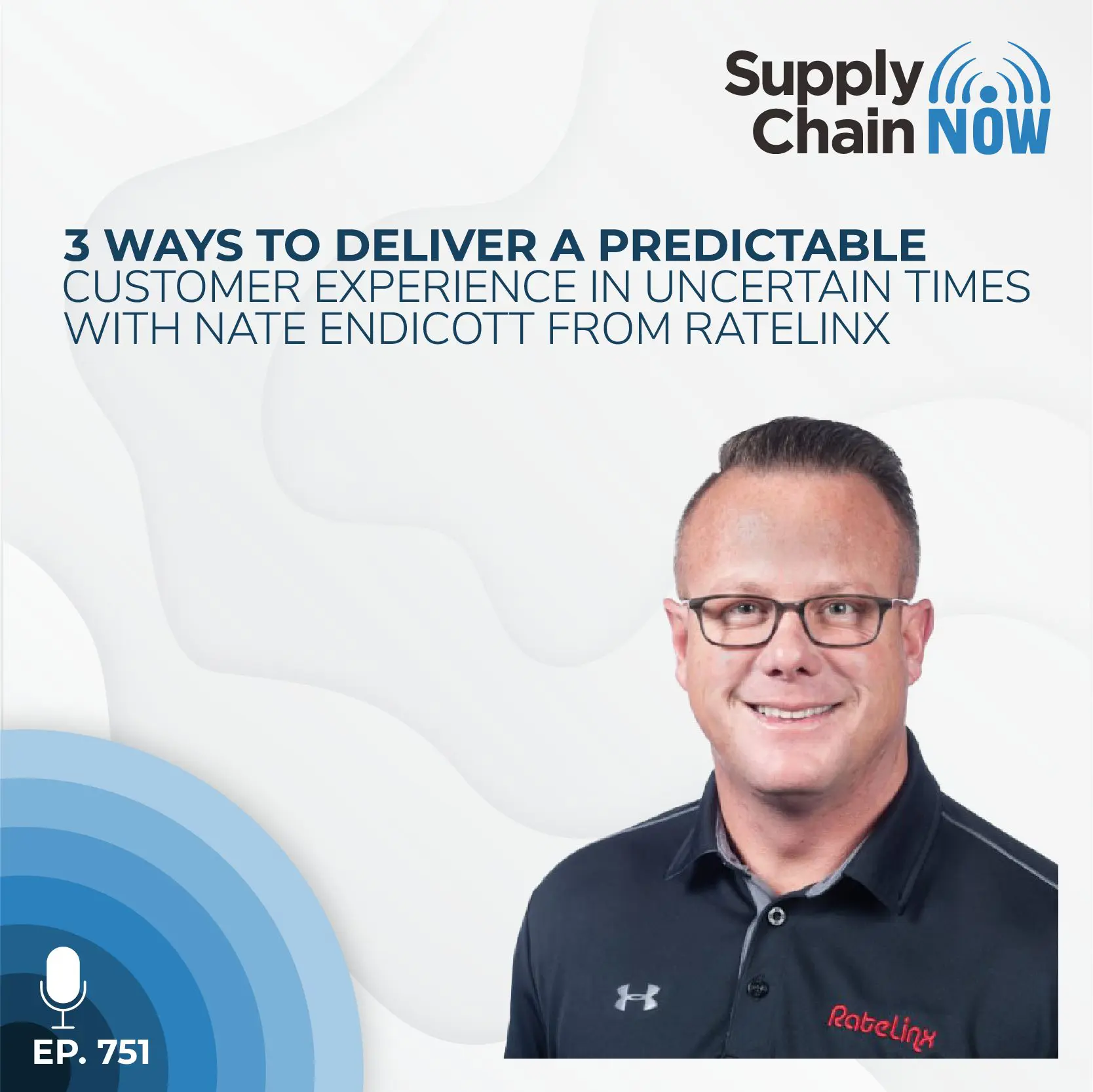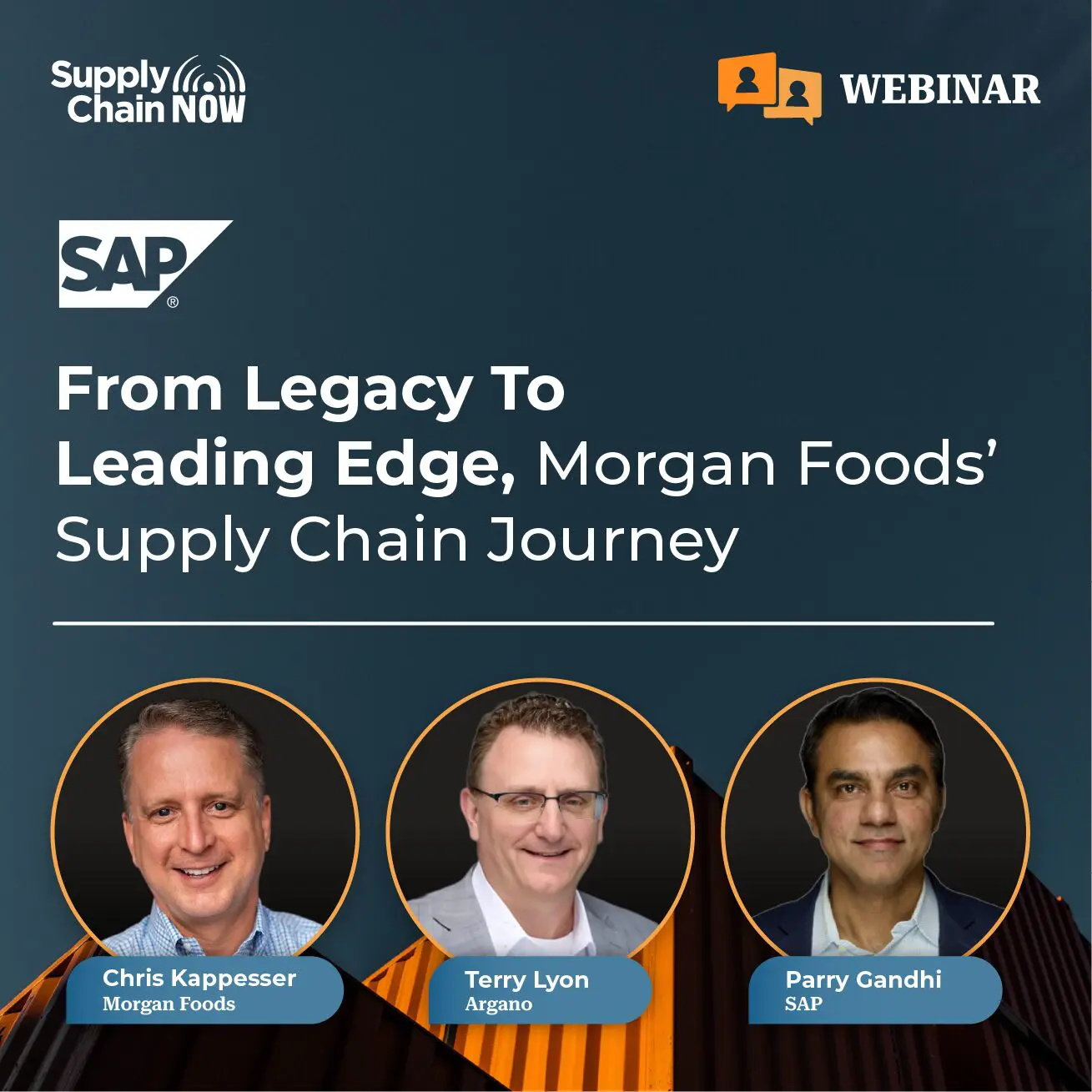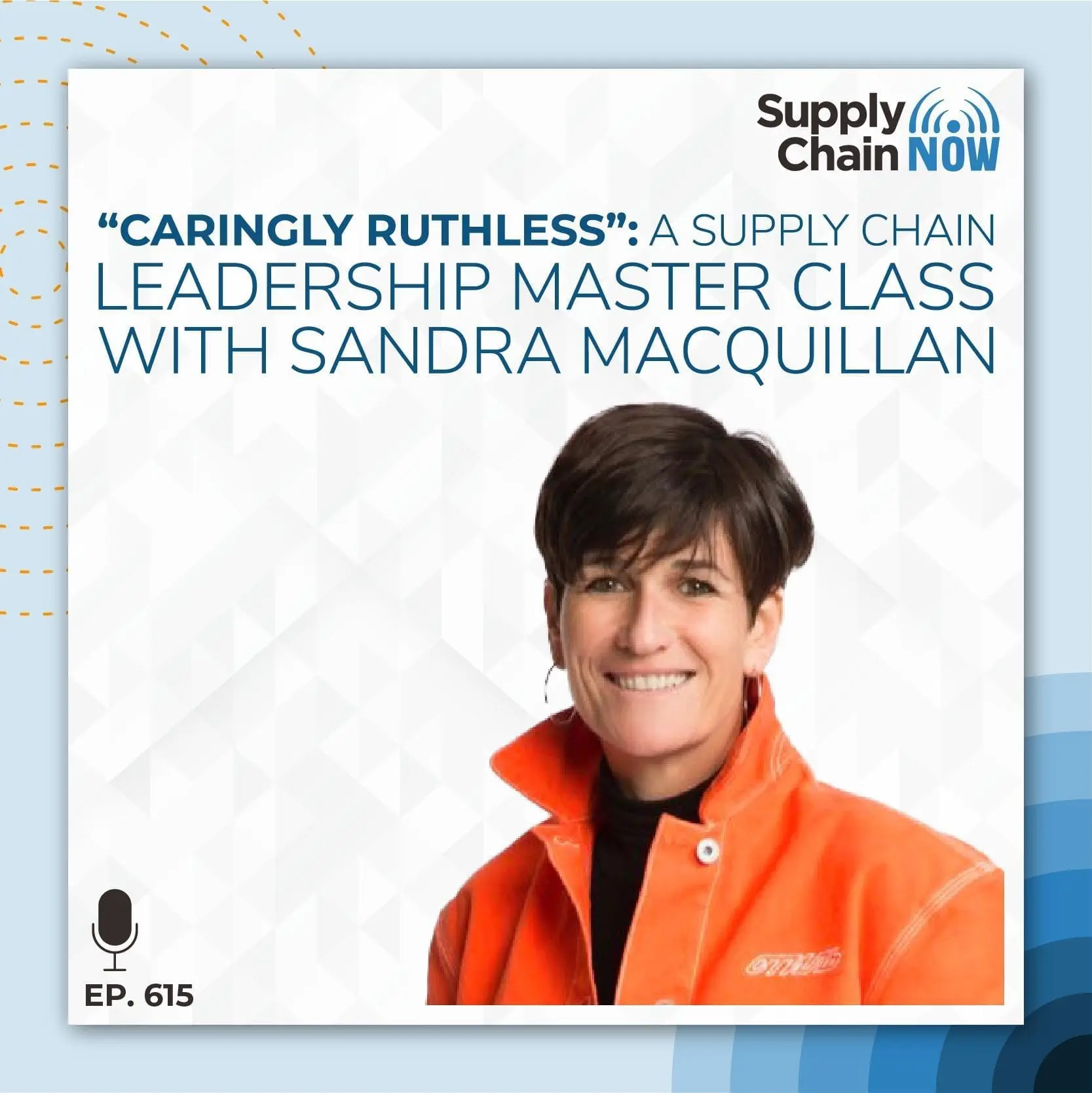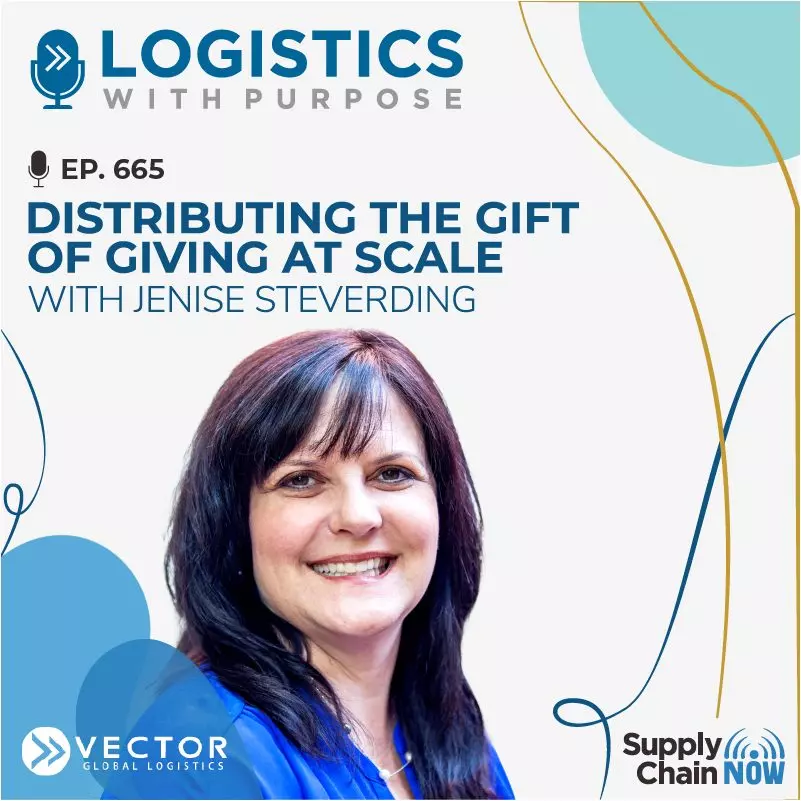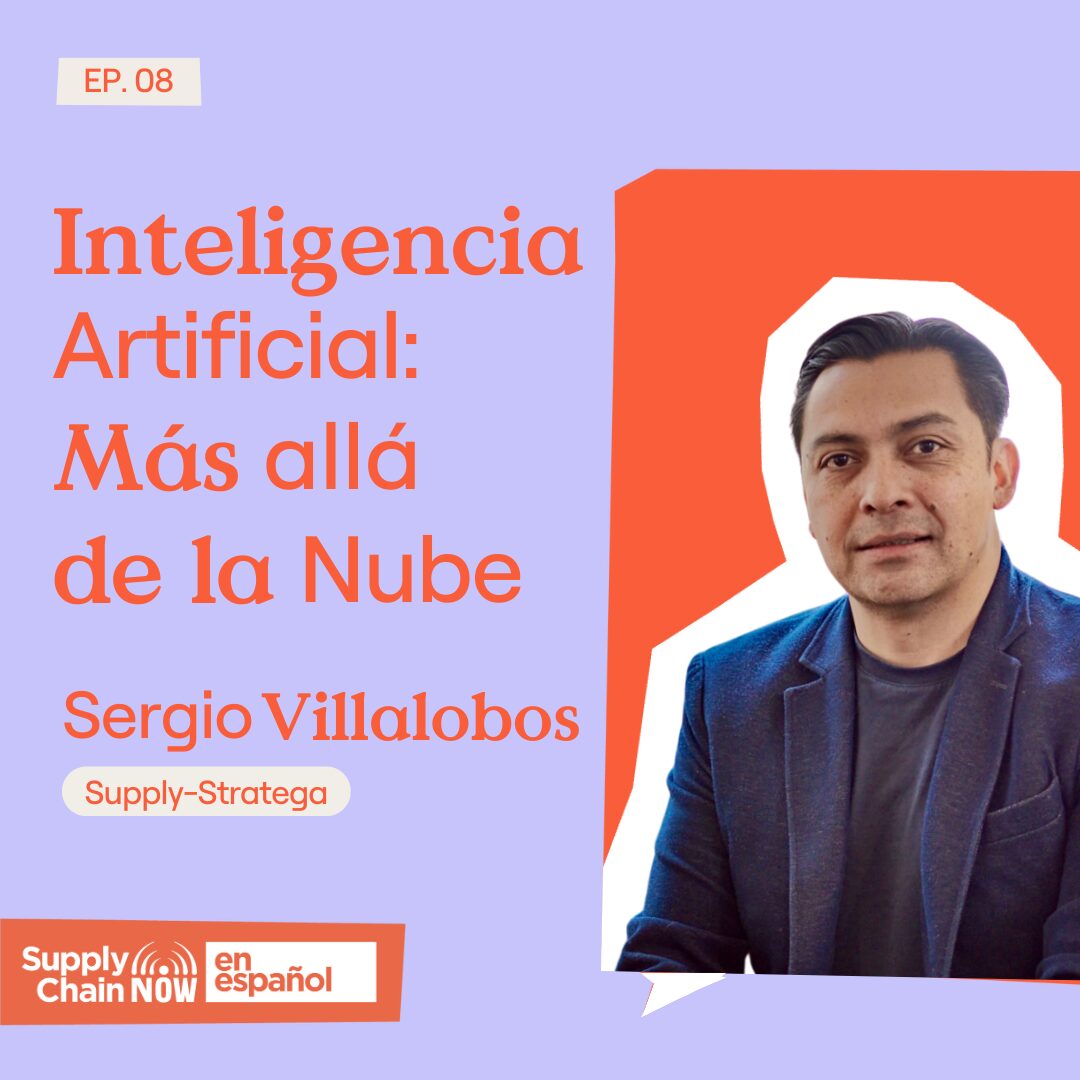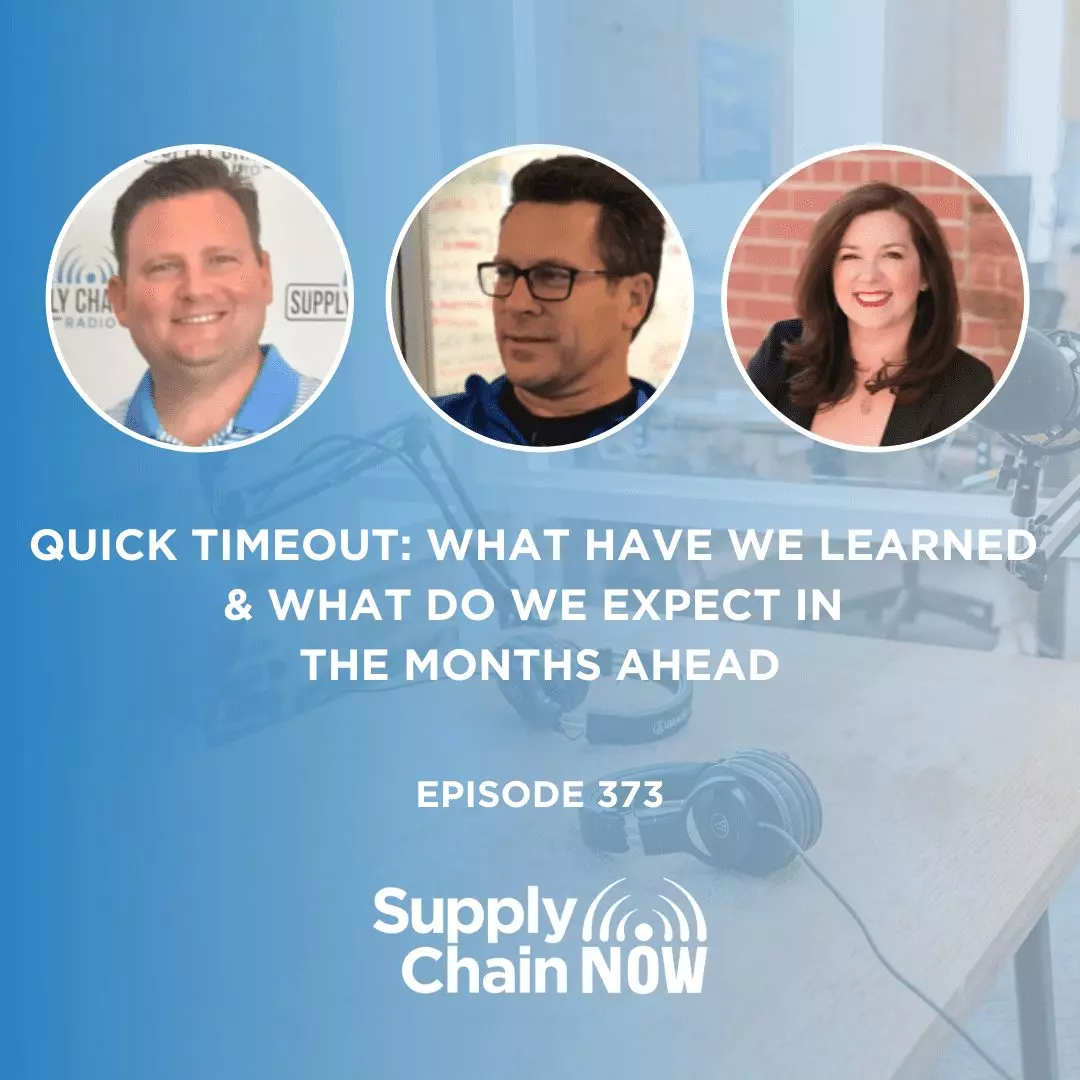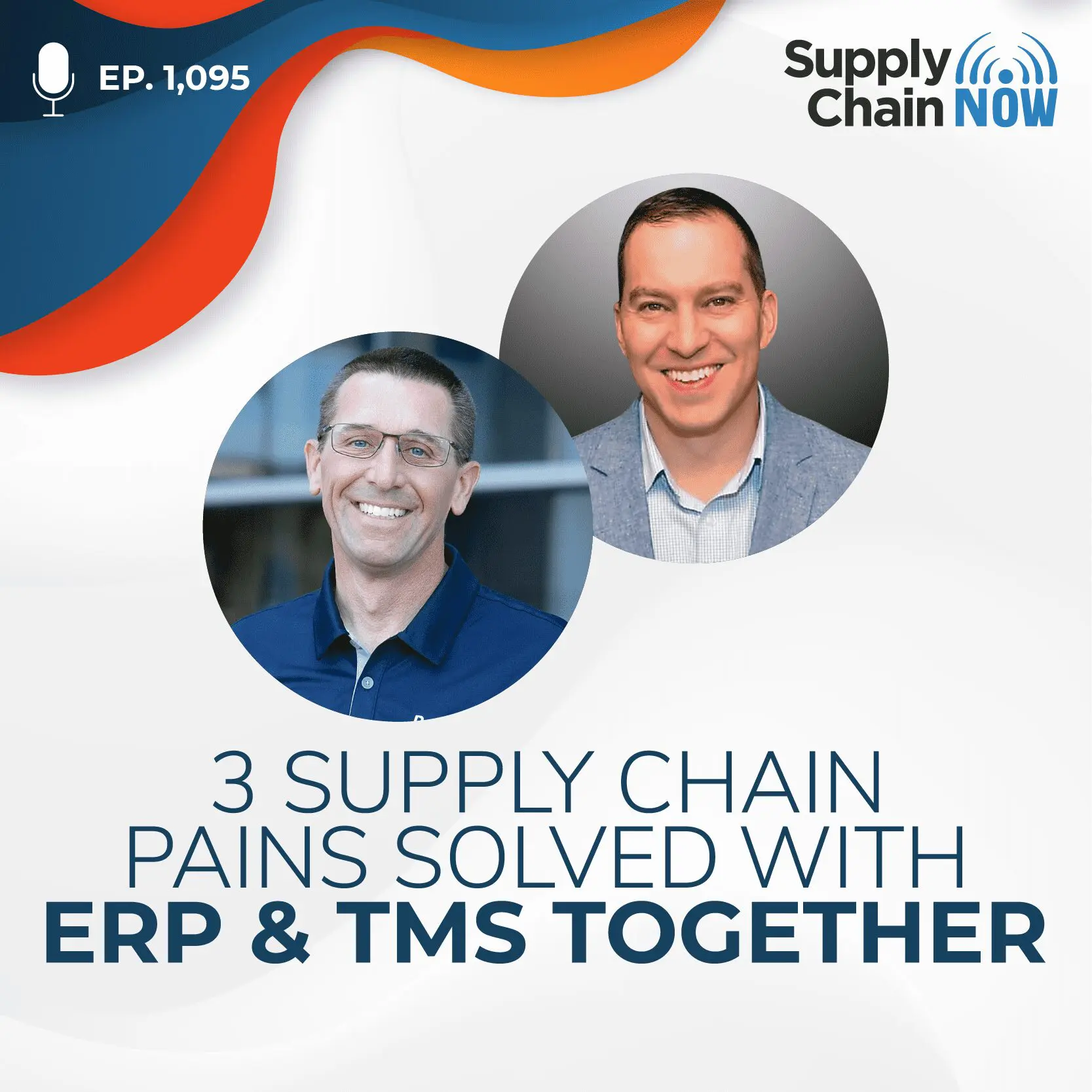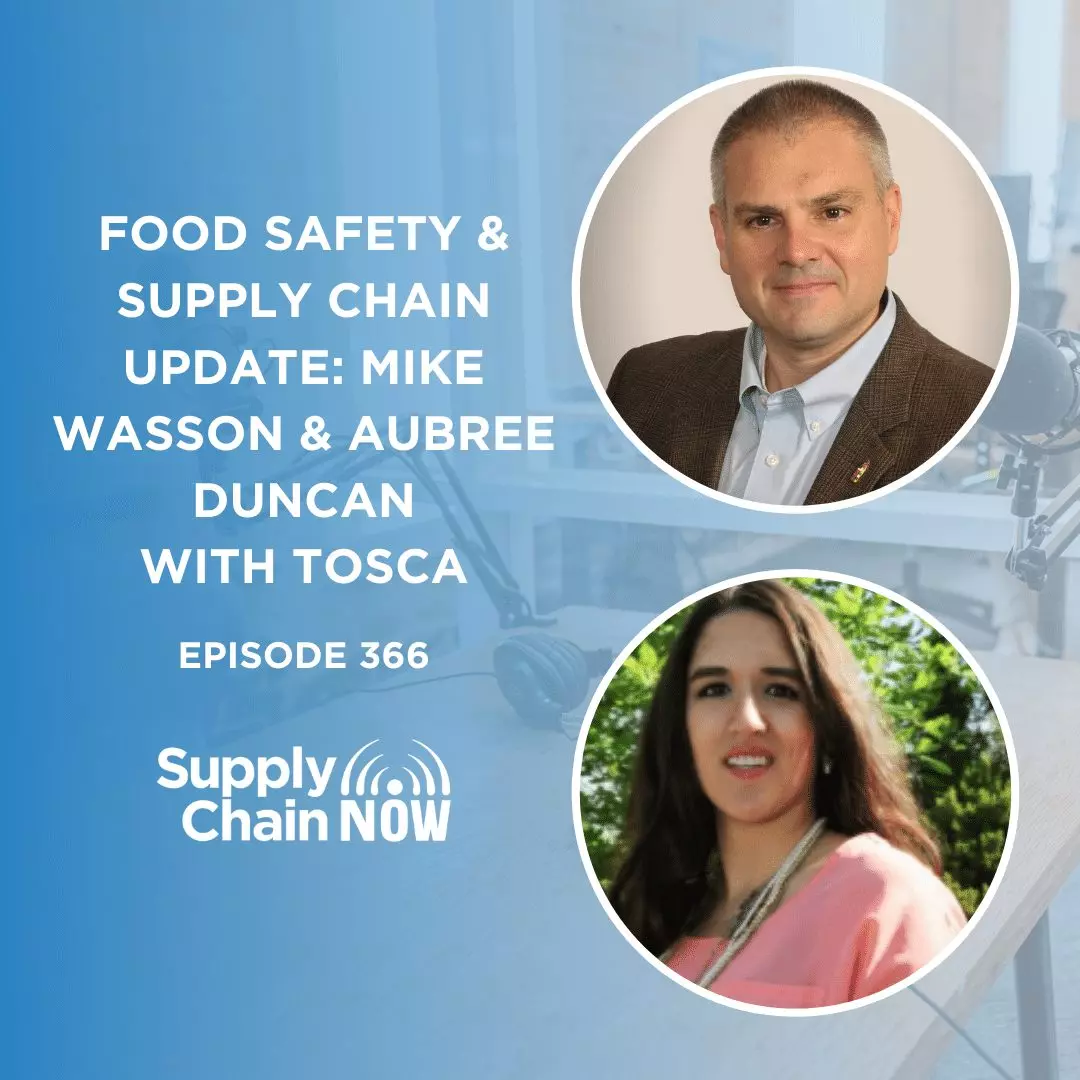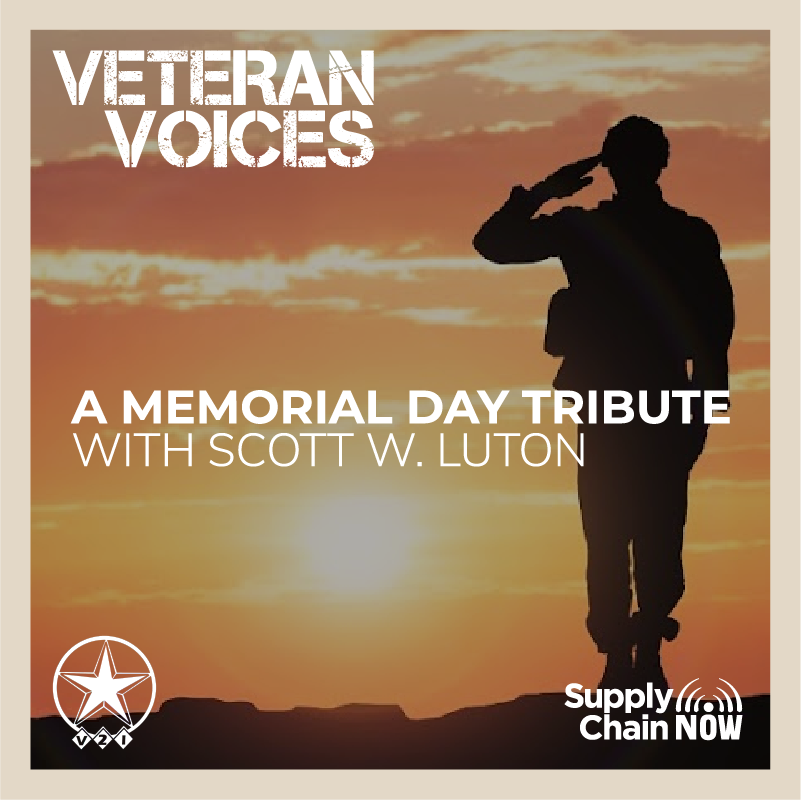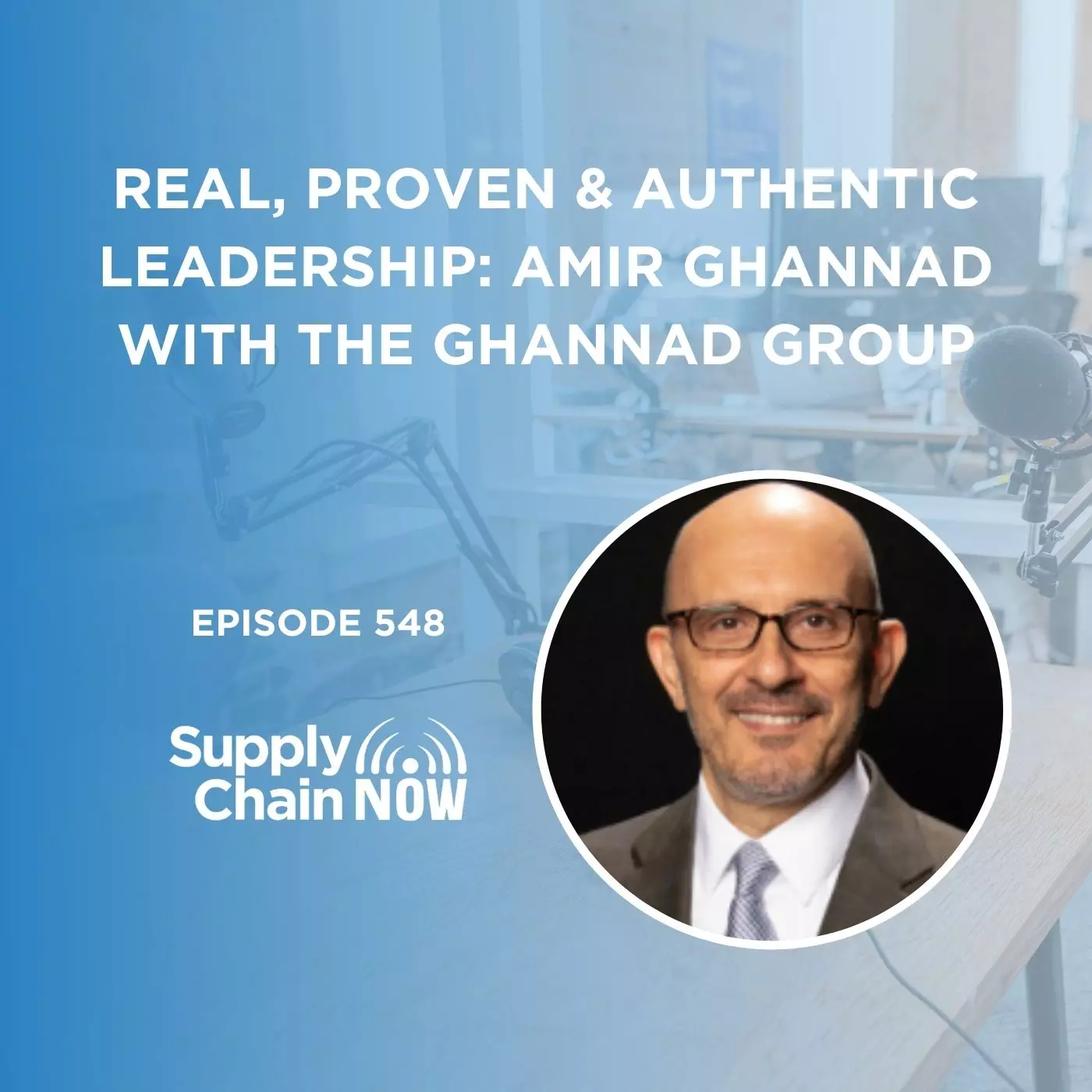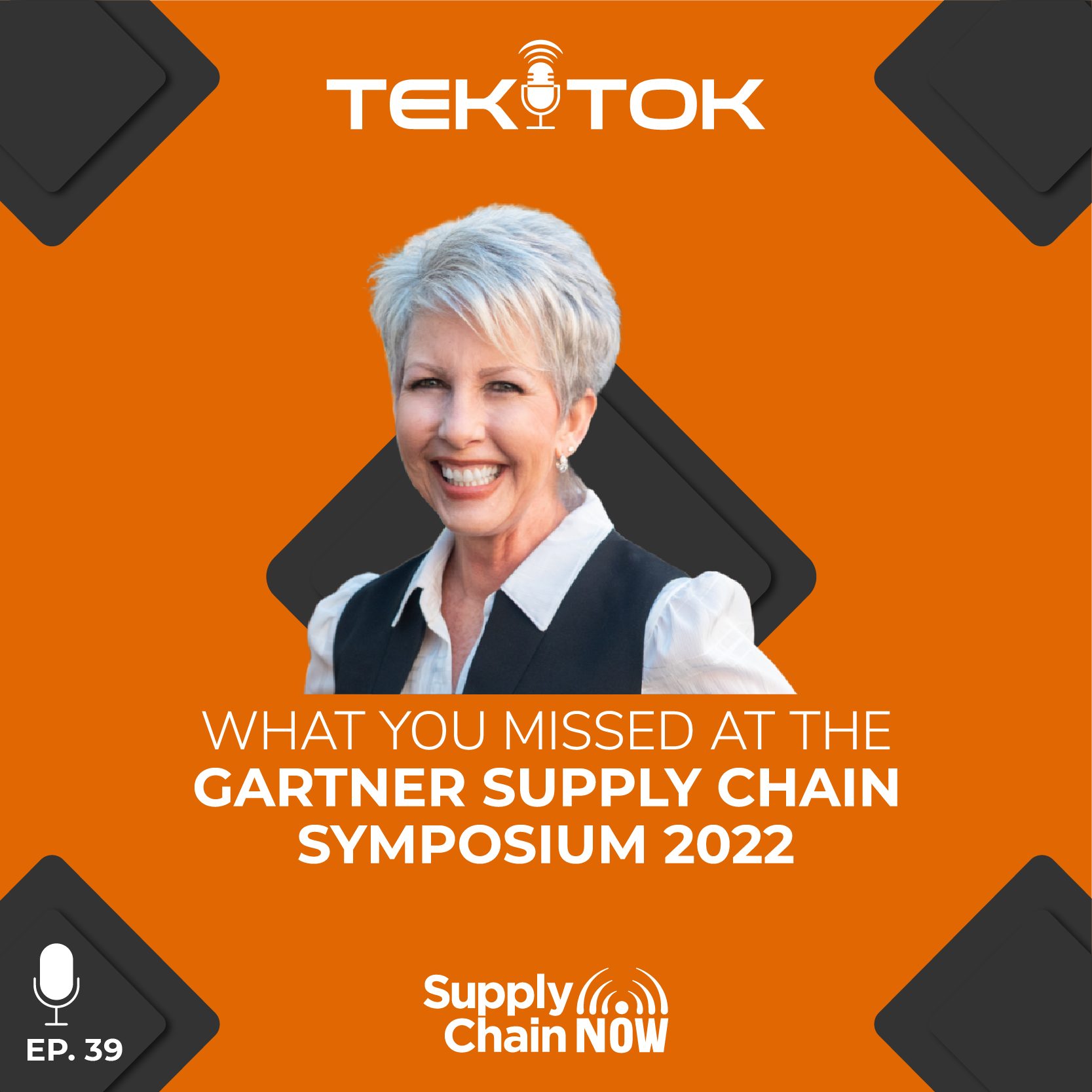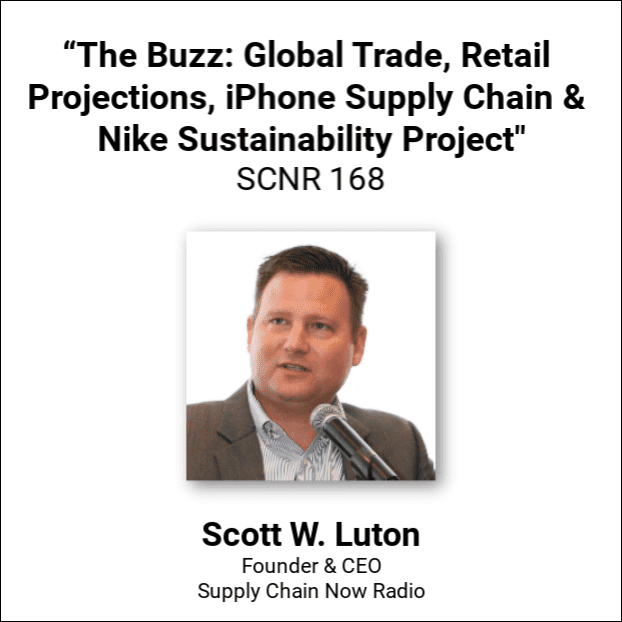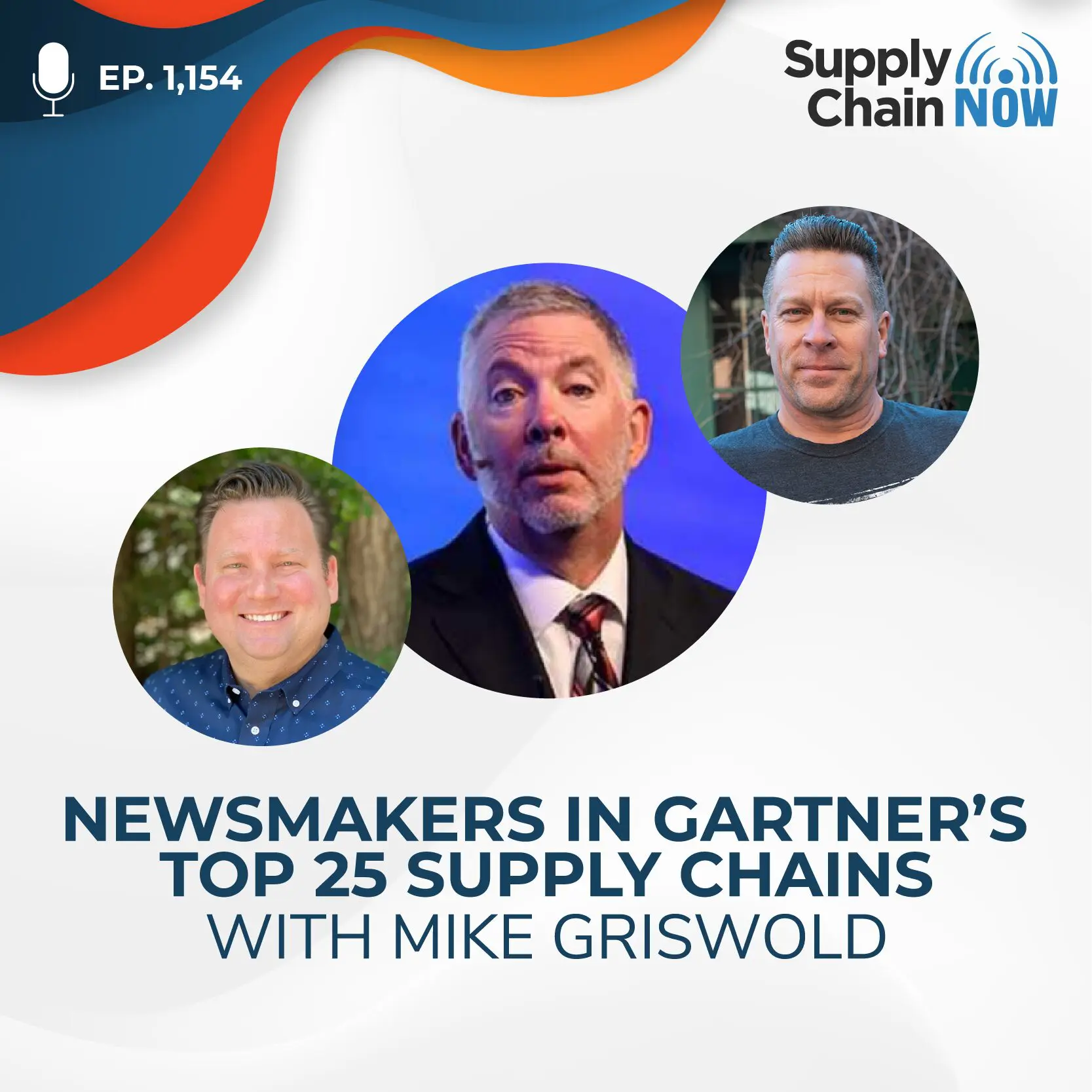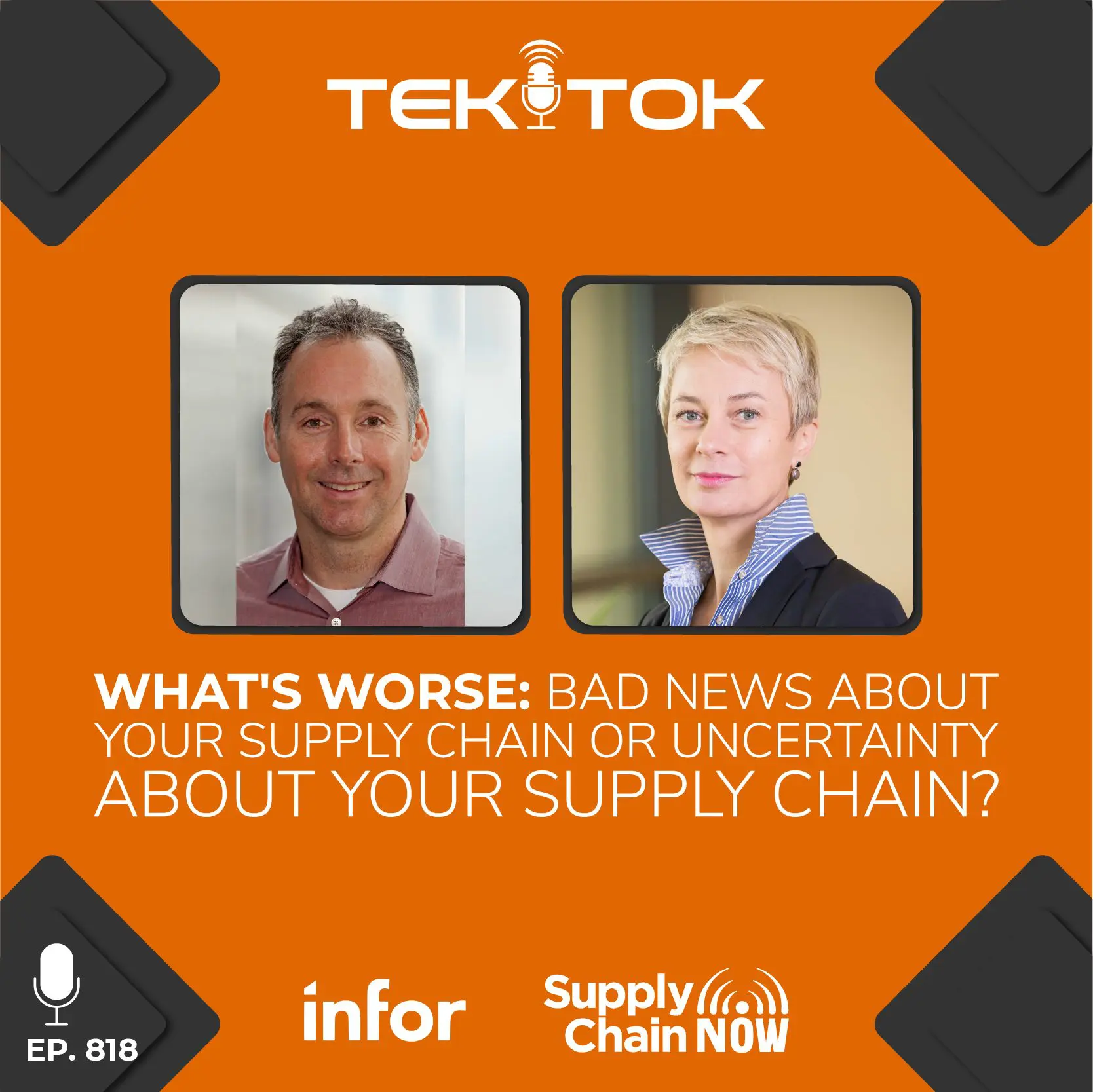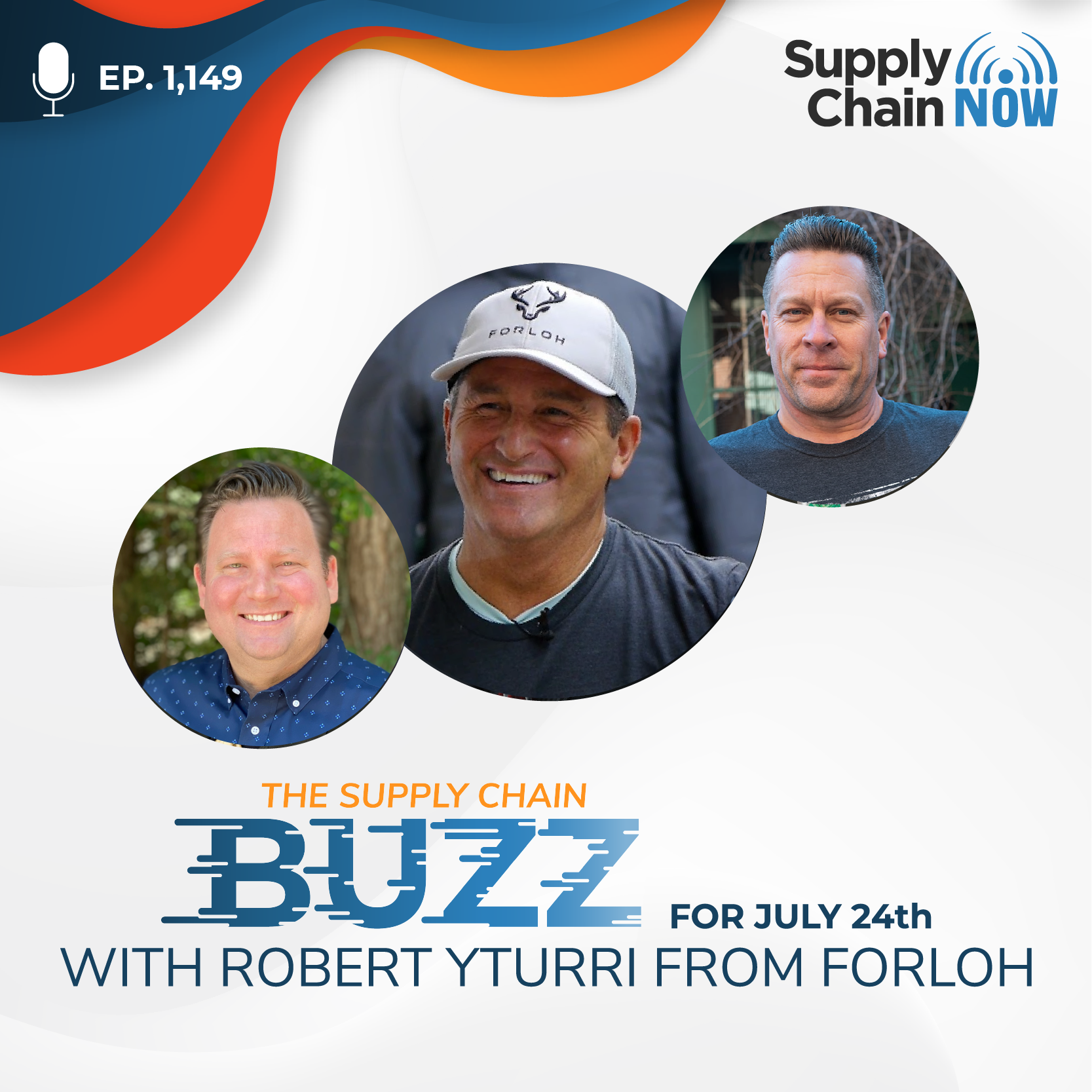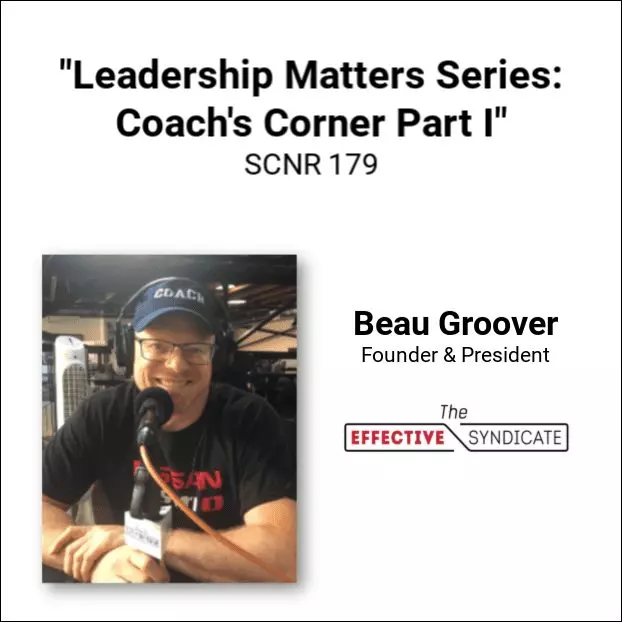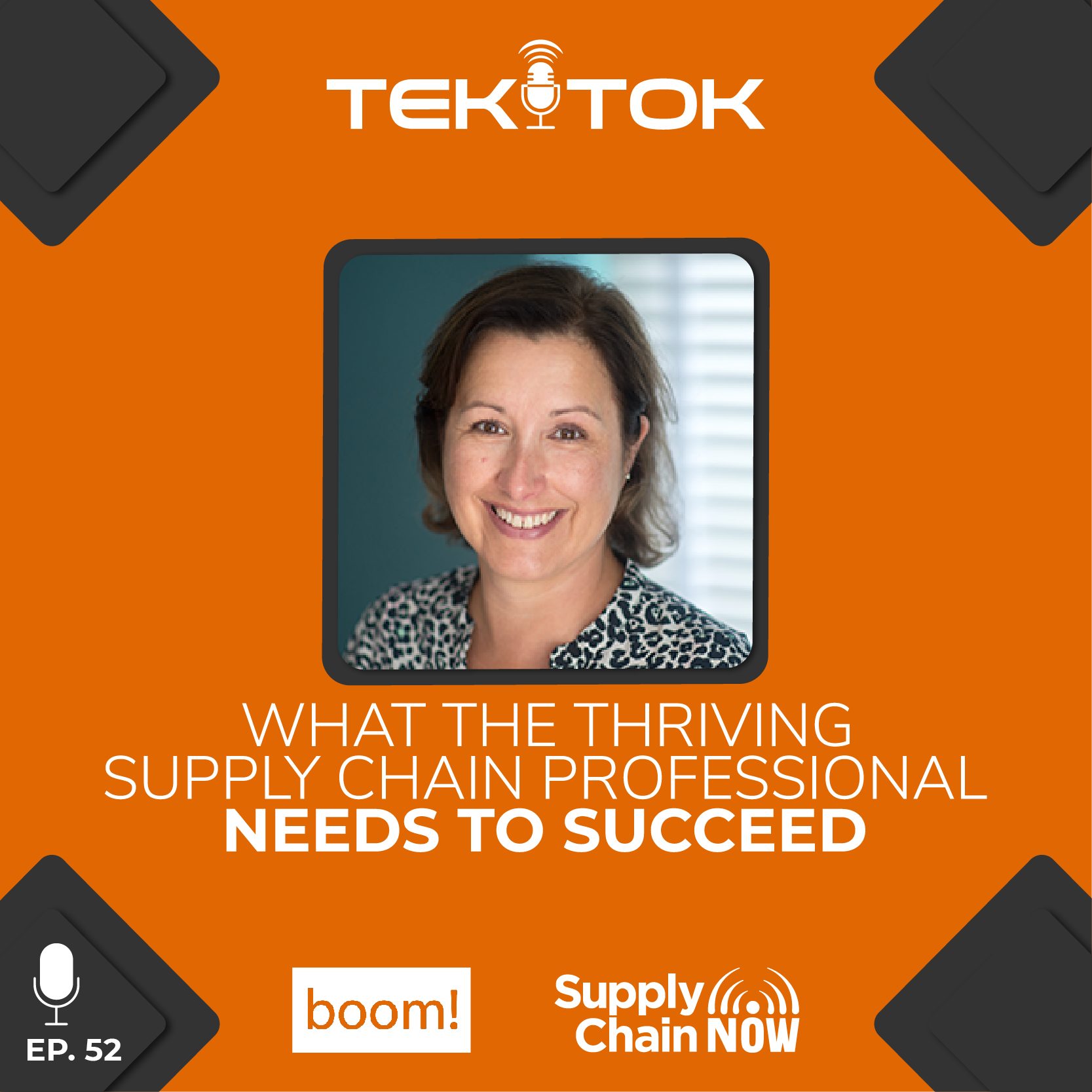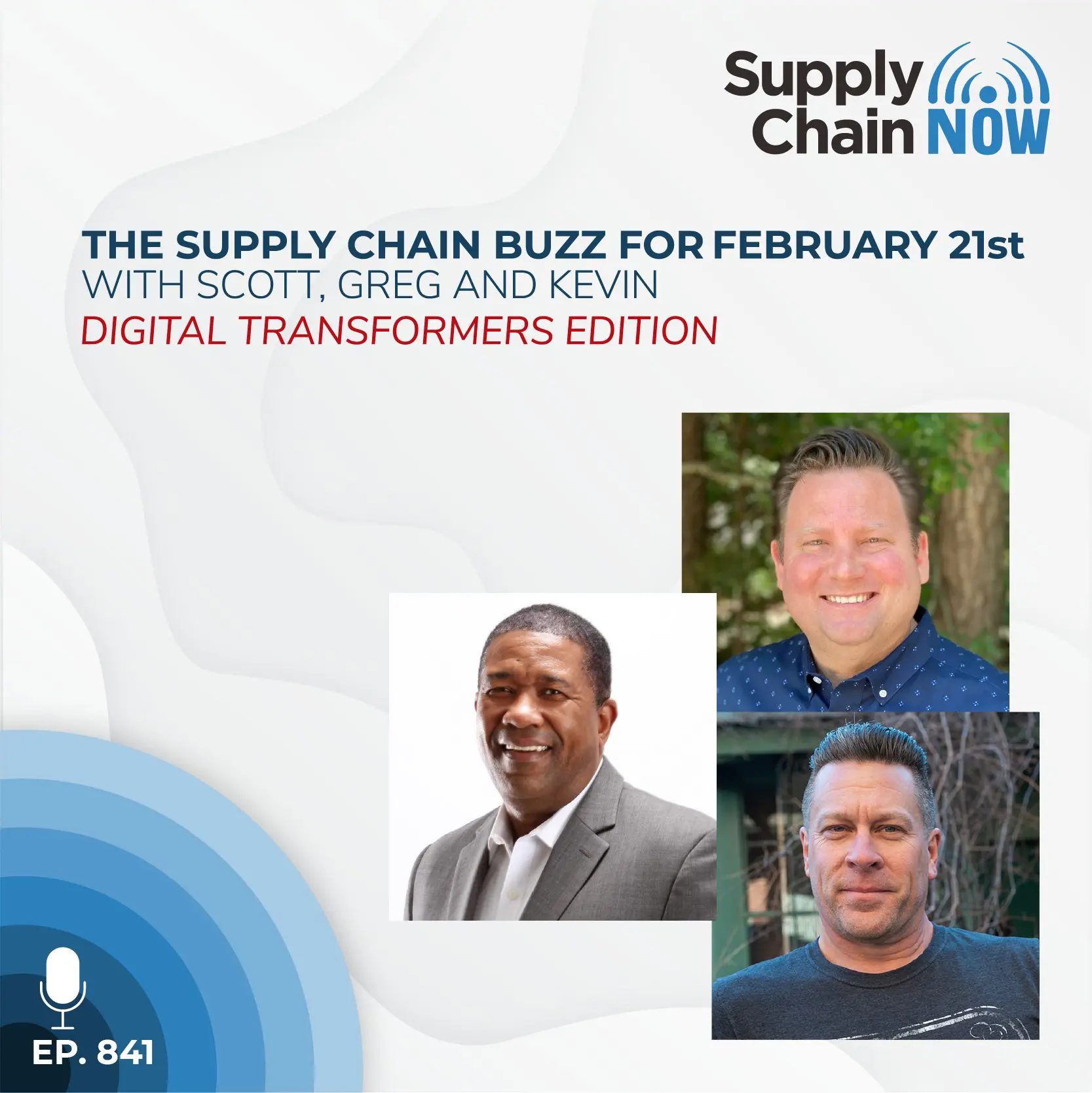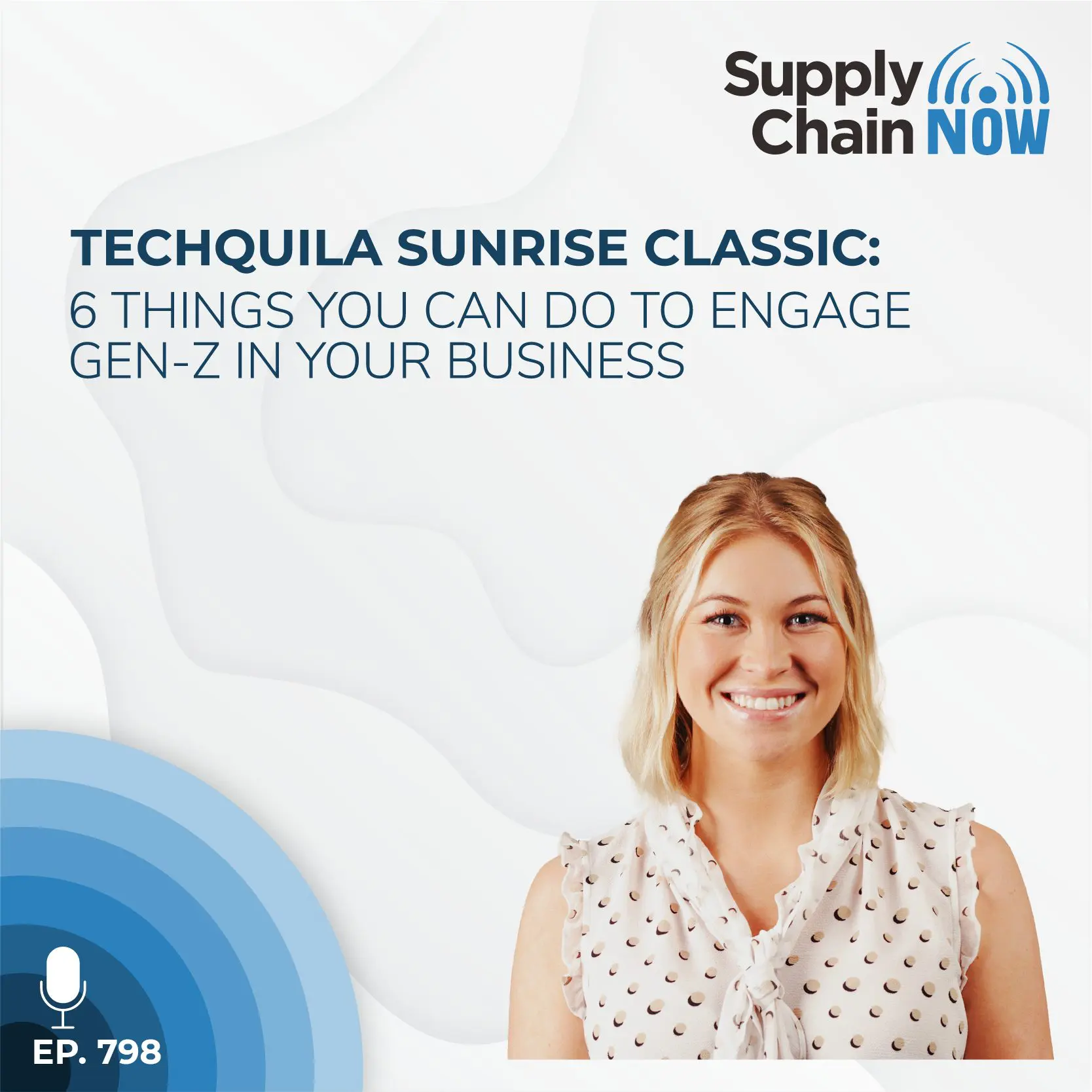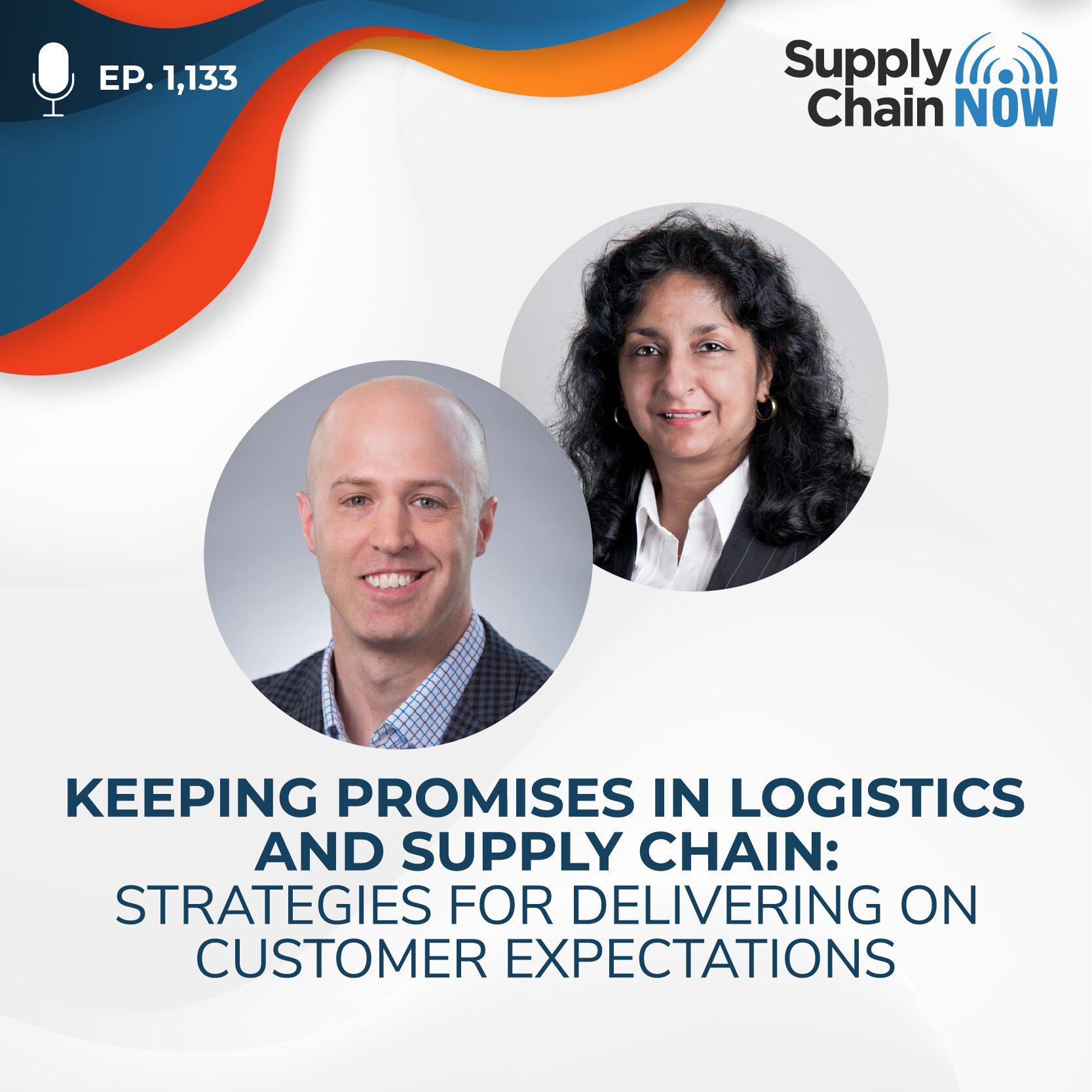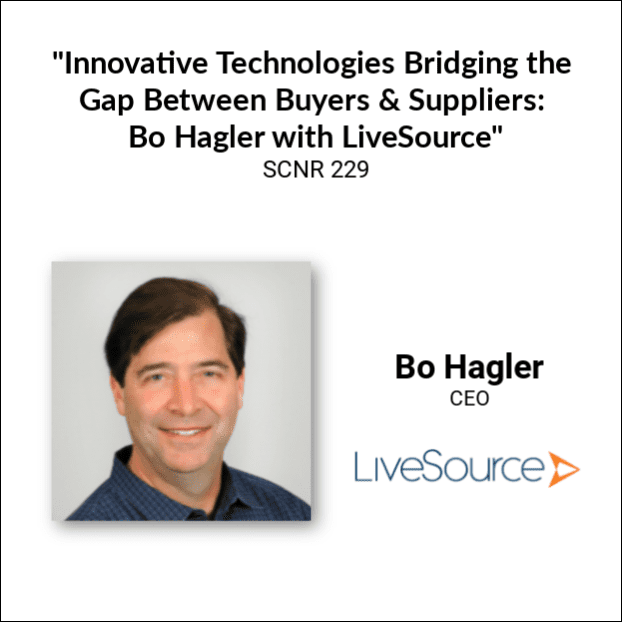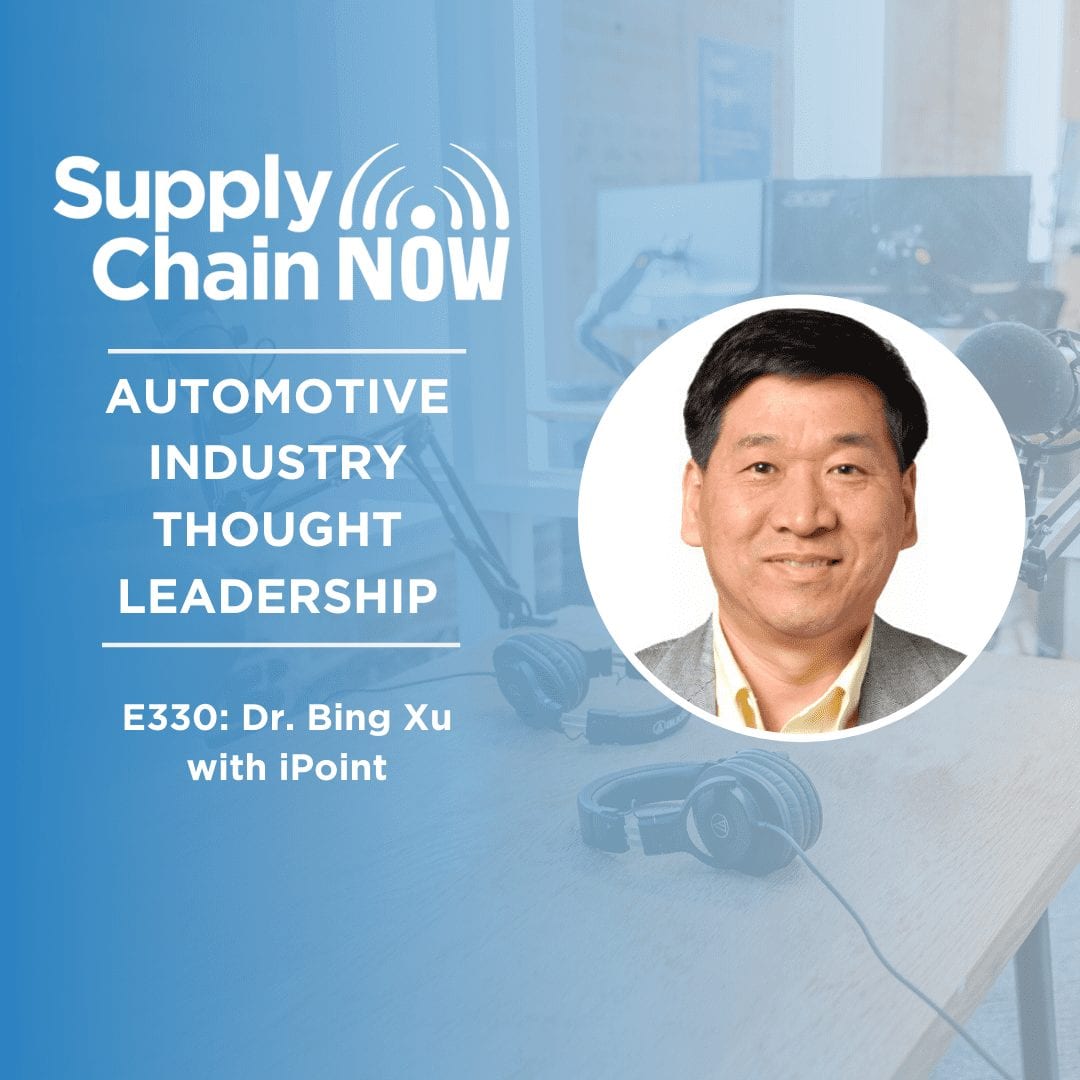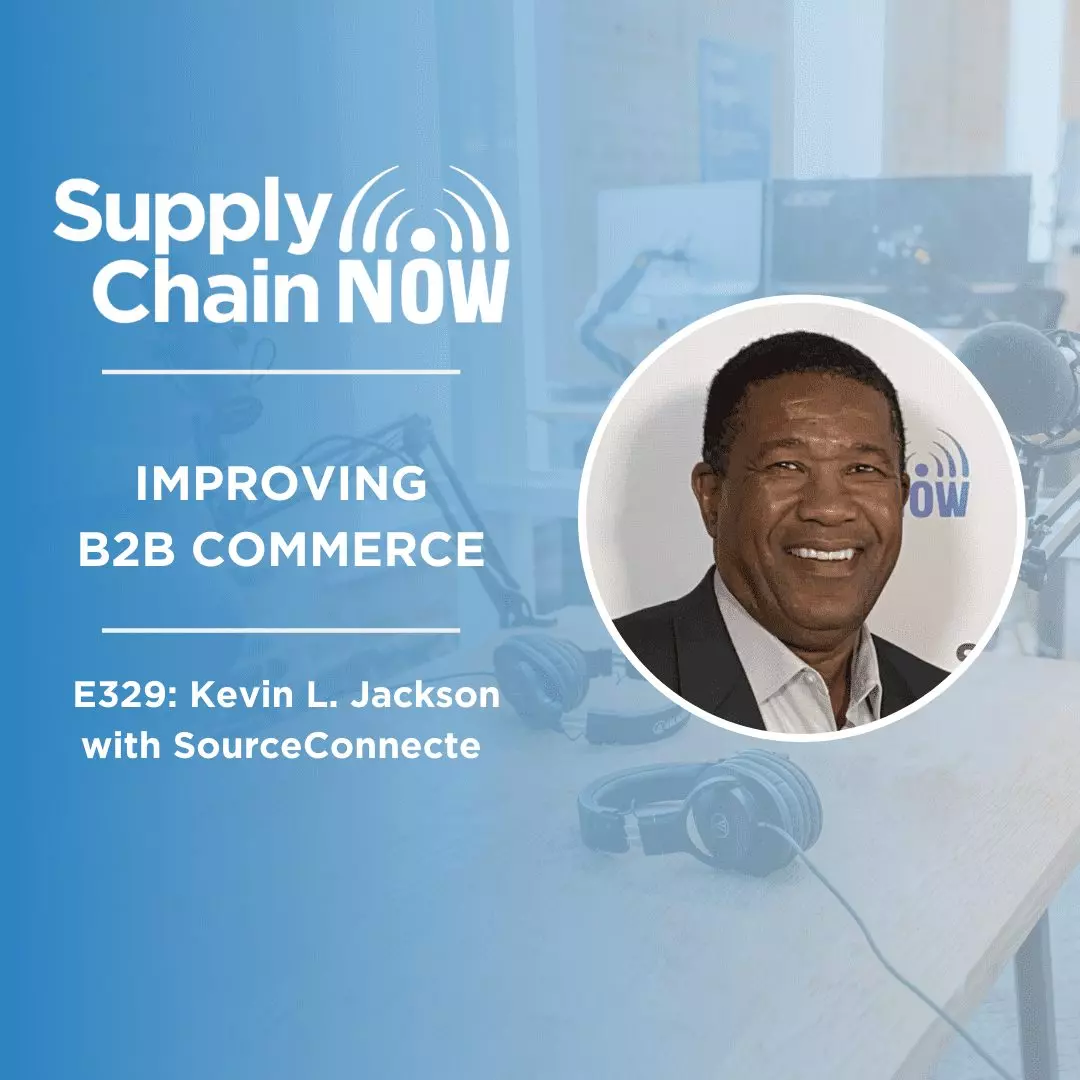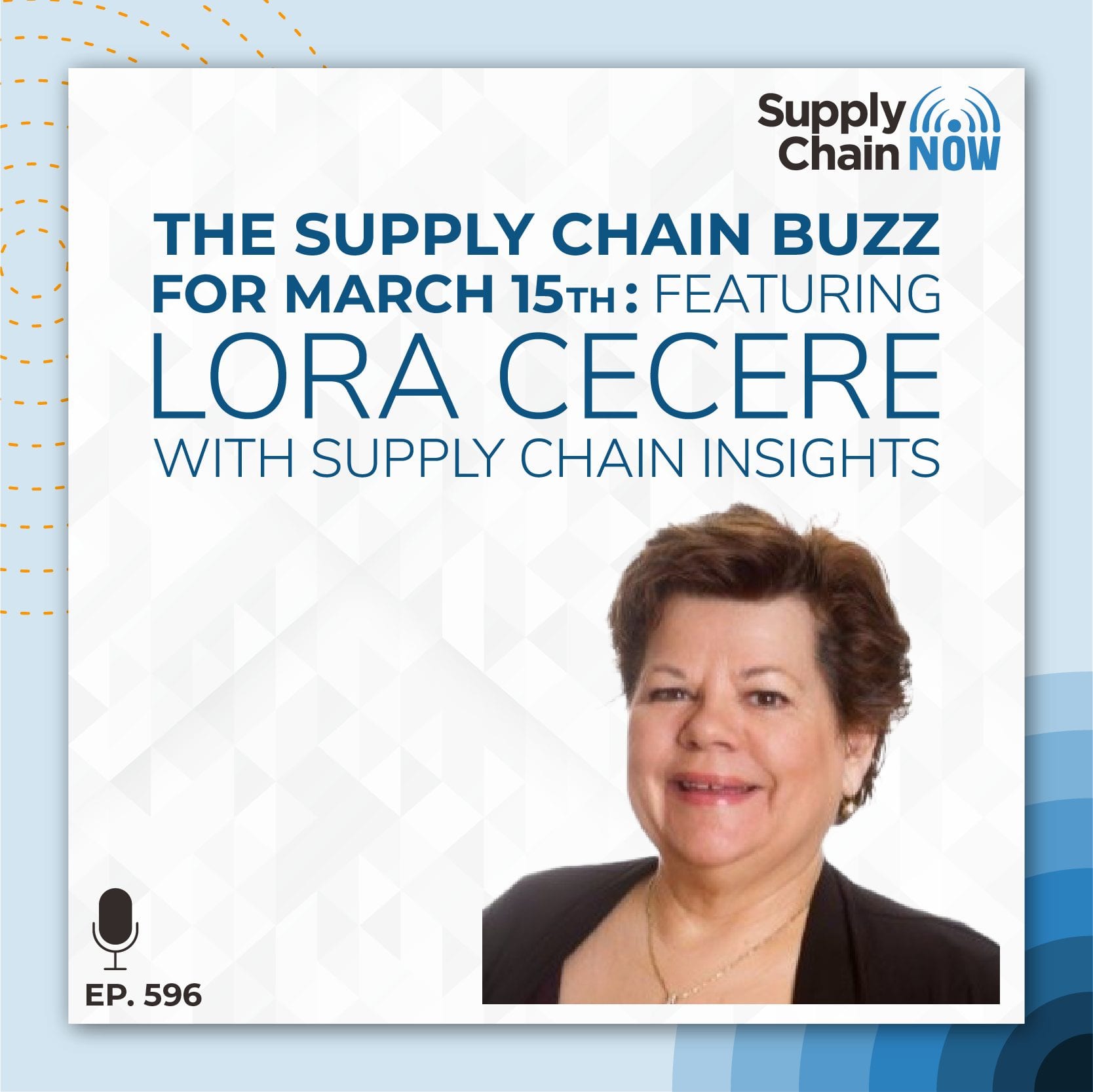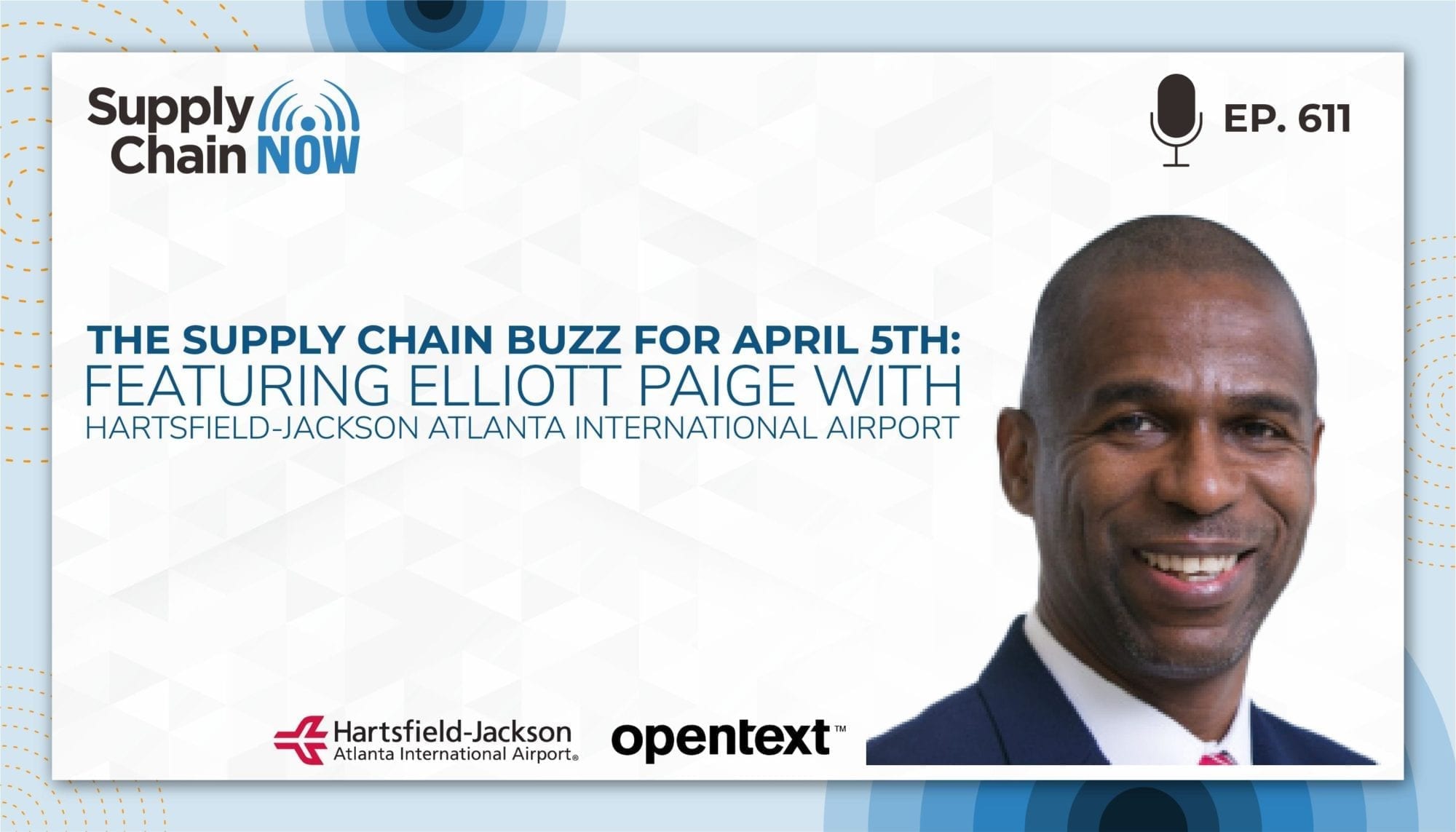
Episode Summary
“I hate to say this because most of us love our Amazon Prime, but we have to pay more for shipping. And the Amazons and the Googles of this world have to pass that extra payment to the folks in the industry: the folks lifting the boxes, the truckers, and the people in the warehouses.”
– Elliott Paige, Hartsfield-Jackson Atlanta International Airport
The Supply Chain Buzz is Supply Chain Now’s regular Monday livestream, held at 12n ET each week. This show focuses on some of the leading stories from global supply chain and global business, always with special guests – the most important of which is the live audience!
In this edition of The Buzz, Supply Chain Now Co-hosts Greg White and Scott Luton are joined by Elliott Paige, a Director at Hartsfield-Jackson Atlanta International Airport. He has seen a lot of changes take place over the last year based on new patterns in human travel, cargo demand, and the need for aircraft parking on airport property.
In this episode, Elliott, Greg, and Scott engage in real time with a live audience to discuss:
· Recent news from TSMC about their decision to significantly expand their capacity for chip production in response to semiconductor shortages affecting a number of industries
· How airports such as Hartsfield-Jackson International in Atlanta are responding to both the increase in eCommerce freight that needs to be moved via the air, but current staffing/talent challenges and leisure travel patterns as well
· The ways that spikes and disruptions in other transportation channels affect demand for air cargo
Episode Transcript
Intro/Outro (00:00:03):
Welcome to supply chain. Now the voice of global supply chain supply chain now focuses on the best in the business for our worldwide audience, the people, the technologies, the best practices, and today’s critical issues. The challenges and opportunities stay tuned to hear from those making global business happen right here on supply chain now. Hey good,
Scott Luton (00:00:32):
Good afternoon, Scott Luton, Greg white with you here on supply chain. Now, welcome to today’s episode, Greg, how are you doing? I am doing quite well. What a great weekend. First of all, weather wise and holiday wise, and actually got to gather up with a couple of our daughters outstanding. It was, it was, it was gorgeous here in the Metro Atlanta area, which is a good thing after some of the storms we’ve had, uh, in the last 10 days or so. Uh, but we’ve got a big show here today, Greg. It is a supply chain buzz, which we hold every Monday at 12 noon Eastern time. As we cover some of the biggest stores, you want to keep the finger, your finger on the pulse of across global supply chain global business, right? Yeah. Yeah. I mean, this is where we start the week with what you need to know about supply chain.
Scott Luton (00:01:22):
So listen up as Greg. I can’t believe I forgot that. So, Hey, we’re going to say hello to a bunch of folks here at momentarily, but we should add that today’s buzz is powered by our friends over at open text, the information company. So Greg, as we, as we have a lot of fun with there, perhaps the biggest company that no one’s ever heard of. Right. Well, that’s, I mean, that’s the first discussion we had with Mark Morley, right? Um, at OpenText who people probably recall talking about data integrations and that sort of things, but yeah, this company grew from being an EDI, electronic data interchange, for those of you who need that explanation, which is kind of an old technology, but it’s still prominently in play, but they were an EDI VAR. They connected companies that way and they have continued to acquire more and more ways of integrating data between companies, within companies and now starting to provide some additional technologies for them.
Greg White (00:02:18):
Our very first, this is a proud moment for us because our very first sponsor, and we’re thankful for that because that helps us continue to bring you this kind of quality content. So thanks to Mark and his team at OpenText for, uh, you know, helping power this buzz that’s right. Uh, and you can, we’re going to drop Mark’s episode, which got a lot of buzz. Speaking of buzz in the comments and folks can check that out. So let’s, uh, and that’s, that’s, that’s just, some of the news are even bigger. News is we’ve got a home run guest joining us about 1225, uh, repeat guests at that Elliot Paige with, uh, one the world’s most important
Scott Luton (00:03:00):
And busiest airports and that’s Hartsfield-Jackson Atlanta international airport and Greg in the pre-show warm up. I’ve already learned, uh, I’ve already got my first page of notes and speaking with Elliot, how about that?
Greg White (00:03:13):
So only 16 to go.
Greg White (00:03:18):
We’re going to get
Greg White (00:03:19):
It, you’re going to fill them up today.
Scott Luton (00:03:21):
Right? We’re going to fill them up. He’s one of our favorite guests and of course, one of our favorite aspects of global supply chain infrastructure for that matter. So let’s get down to work. We’re going to say hello to a few folks really quick, but first off, I want to share a couple of comments here. So on the main channel, quick programming note, don’t miss this replay, this replay, this was a replay of a live stream we had with Logan from alloy and Caitlin from Valvoline. And they describe really a very forward-looking, uh, business relationship between the two entities and, and who’s winning Greg, everybody wins, uh, certainly Valvoline their customers, their customers, customers, and of course, aloe is a big part of, of connecting, uh, the whole ecosystem there. Great, great conversation, right?
Greg White (00:04:06):
It is. It’s a really great example of a partnership. You know, I, um, I worked with Valvoline when I was in industry. I was, uh, um, in charge of purchasing the product for a major retail automotive chain. And they’ve always been kind of in the forefront of, of supply chain and they have transformed that now into well digital transformation and supply chain transformation. And the story around this partnership is a, it’s really a great kind of framework for companies to work from and build from
Scott Luton (00:04:38):
Agreed, agreed, next generation stuff. So check that all the main channel own, uh, this week in business history, which you can find wherever you get podcasts, we’ve published as a special episode, instead of covering a couple of historical dates, we interviewed truly an entertainment industry pioneer, or you’re not going to miss this interview with Ellen Swartland. Um, Ellen’s incredible. Uh, one of her latest projects that she spoke about was this documentary. She produced a beauty bites, beast beauty bias piece, and you can learn that@beautybitespace.com, but in a nutshell, she really talks about how she spends Tom as a self-defense instructor, really focused on, on females, um, because she, as she points out and he’s a great story behind it, you know, all self-defense classes are not built from the female perspective. And there are some different dynamics that are really important not to be lost, uh, in terms of how, uh, females can protect themselves. So this is just one sliver of an incredible journey, uh, very intriguing interview. You’ll check it out wherever you get your podcasts from at this week in business history. And finally, Greg, our great friend, Kelly Barner and her partner, Phillip artisan, with to procurement buyers meeting point, they got a great event coming up on the 13th and 14th of April. And guess what, Greg, what it’s, it’s free, it’s completely free. It’s free,
Greg White (00:05:58):
Free, free, free.
Scott Luton (00:06:01):
So all about the hot space of procurement procurement leadership and how, how you can ensure that your procurement leadership team is positioned the organization for successful growth. So check this out. We’re really proud to serve as a sponsor for this event, this series events, mastermind live. This is the spring version, and it’s got a ton of great feedback from the market. So Greg looking forward to that event, right? Yeah.
Greg White (00:06:29):
I got to tell you, I had an experience over the last week and even this weekend, Scott talking to Kelly, she’s kind of helping me evaluate some companies for investment and the insights that she can provide, not just into the, um, into what the users the buyers need or companies need, but also what a company needs to look like and the value of what they might call their differentiating technologies and things like that. It is incredible. I mean, you are truly learning for a mastermind when you talk, when you talk to, or listen to Phil or Kelly. So love that ringing,
Scott Luton (00:07:07):
Genuine ringing endorsement. I’ve experienced it firsthand. And again, we’re big fans of all these, all these wonderful people and business leaders that invest so much and so much into these events and then make it free to attend. I mean, really, especially during this timeframe. So y’all check that out. I think we’ve already dropped the link in the comments and, uh, we hope to see you there. Okay. So Greg, uh, I’m excited about a lot of things and we’re going to tackle some great stories that folks are going to enjoy. I think we’ve got a home run guest and Elliot page, uh, with the airport. And I think the only thing that’s missing is we’ve got to say hello to some of the folks that have showed up today. They have showed up. So let’s see here. Um, and I should note also that, uh, Elliot’s colleague Linda [inaudible] Nate is in like she’s lurking in the comment.
Scott Luton (00:07:57):
Yes, they keep, yeah. Welcome back.
Scott Luton (00:08:00):
So when w we look forward to showcasing her perspective here, so sure. Nevus is with us again from LA, from India via LinkedIn. Tarun is with us via LinkedIn as well. Great to see you, Kayvon is back. How about your masterminds? Kayvon is back with us here today. Chavonne is where this via LinkedIn Umar from Juba, South Sudan outside. Wow. Have you here as a leader where he is incidents commitment to appreciate that, for sure. Yeah. As Aliyah says, rubbing hands together with a grin on her face as Lee. Great to have you here as always Raman deep. Hello, via LinkedIn. Great to have you here. Good morning. Uh, Warren is live with this feeling din from Cleveland, Ohio home of the resurgent Browns, Greg. They could, yes. I, to tell, you know, Paul Noble,
Greg White (00:08:57):
Our S the CEO at Verisign big Browns fan. And of course the chiefs and the Browns have the Marty Schottenheimer connection and also being the doormat of the league for a lot of decades. So, so there is a certain affinity between Browns and chiefs fans until we play them. I will love you in Cleveland,
Scott Luton (00:09:18):
Warren, we’re wishing you all the best of Bernie CO’s ours and Ernest binders of the team.
Greg White (00:09:23):
Oh my gosh. Yeah. Well, and Hey, Michael, do they have the best personality in the league? I mean, Baker Mayfield, he has made that stadium like his home, right? Whatever those commercials say. Um, and what a great personality that, that young person has.
Scott Luton (00:09:42):
All right. So we’ll learn great to have you here. Latorre is tuned in from Germany via LinkedIn. Great to have you here, Tom Raftery is with us. So I hope this finds you well, Tom, you and your podcasts. Yes, sir. Dr. Rhonda bumpin Zimmerman, which we couldn’t do a live stream without, as with, as Gary Smith is with us Peter Boulay and I’m sorry, I’m going fast here. Uh, a hello from where he is, what a sunny windy and beautiful weather for new birds enjoy their first flight at the air capital of that. Okay.
Greg White (00:10:13):
So I see sunny because I’m going to be there pretty soon. And actually [inaudible] has invited me to, uh, do a guest lecture with their IME triple seven class, uh, graduate students about supply chain. So that’ll be interesting. Well, it’ll be interesting for me. I’ll let the students be the judge of whether it’s interesting than them.
Scott Luton (00:10:37):
Well, hello to everyone else. So glad you’re here with us here today. We’ve got some interesting stuff to tech, uh, the tackle here. So with no further ado, Greg, are we ready to do it? Let’s get the word this. Yeah. All right. So first story here, uh, unfortunately we’re talking about forced labor, which has been a common theme here lately. So in this story that comes to us from Shefali Kapadia with supply chain DOB, the U S government has elected to see shipments of gloves produced by top glove. The reason the us customs and border protection agency points to evidence of forced labor in the Malaysian based manufacturer supply chain, the CBP has also taken action on other products. Recently, as concerns continue to Mount over forced labor in January, the agency declared that all cotton and tomatoes from China from the, is it the Uber Weger weaker.
Scott Luton (00:11:29):
I get that wrong all the time. So all cotton tomatoes from the weaker autonomous region are going to be are continued to be seized. So here’s an interesting tidbit though, Greg, I didn’t know this until Shefali educated me, unlike our justice system in the U S where, you know, you, you, you, um, you got to prove, be proven guilty in trade. You’ve got to prove your innocence. So as the article points out, procurement and supply chain leaders, once their shipments have been detained, they’ve got to prove that forced labor was not used, which of course is just one more reason while we’re all after vital supply chain visibility and traceability here in the information age. Uh, one more note, disposable gloves of course, are in high demand. Uh, as we all know, the CBP says this enforcement against top glove is not going to be a big hit in overall supply, which is interesting. Um, so Greg, a couple of your comments here.
Greg White (00:12:26):
Well, so I worked, uh, with a company that I shall not name cause I can’t verify their culpability in this, but, uh, we were sourcing a lot of gloves in the early two thousands from China and recognizing that there was a limitation started sourcing from Malaysia. Um, and top glove was one of the brands that we, that we worked with. Um, um, I prefer to use the, the more natural term slavery than forced labor because that’s precisely what it is. And frankly, the, uh, CBP, they warned them. They, they, a couple of months ago, we reported that the U S customs and border patrol would assume that any goods coming out of gin province, which is the Ugur or the weaker autonomous region Jinjiang province, they would assume that anything that came out of that was, uh, built using slavery and that it would be subject to seizures.
Greg White (00:13:25):
So that accompany continued to source goods there. They rolled the dice and it came up snake eyes. So, uh, you know, I think they had plenty of notification to figure out another way to source those goods or to verify that they were in fact, not slave built and maybe they are not, it’s very possible that they are not unlikely but possible. Um, so all they got to do is prove it, and they had adequate warning to be able to either shift their sourcing or to prove that the goods are not. So we’ll see, as this comes through the process
Scott Luton (00:14:00):
Agreed. And, you know, I think one of my favorite parts about the story is hopefully it catches the attention of all supply chain leadership globally, especially with products and the, and, and, um, folks will be doubling down to ensure that up and down the supply chain, they are not using slavery, um, to, to, you know, get, to bring their products to market. So you hate to make an example of anybody, but to your point, they were warned and, uh, we’ll see, but the jury’s out. We’ll see, we’ll see what comes out of this. So, um, it’s important to track that because that, uh, thankfully, uh, the, the use of forced labor and slavery is getting a lot more visibility and hopefully is going to be eliminated in the months to come well.
Greg White (00:14:39):
Okay. It won’t be months, unfortunately, because there are way too many people and it would take a massive shift and the existence of slaves will likely not change in China because we can’t change their policy can just at least take away the business that motivated, motivates this slavery. And by that, hopefully China starts to reform, but this is a, this is a, uh, egregious impact on, on this Muslim minority in China. So
Scott Luton (00:15:07):
I’m with ya. Hey, I’m optimistic. Uh, we all want to get into it as soon as possible. So we’ll keep tracking this story, but great reporting is always by the supply chain, dive homeless, own your list of resources. Okay. Let’s move to number two on a lighter note here. So talking chips and big investments. So according to a report in industry week, Taiwan, semiconductor manufacturing company also known as T S M C. Now it’s a major expansion last week, a hundred billion dollars is what the company has announced that they’re going to be investing to expand capacity. No T no, no specs yet, no details on, on, on where these funds will be used. But this comes on the heels. Greg of US-based Intel announcing that it would be spending $20 billion on two semiconductor factories in Arizona. TSMC has said that the automotive capacity, uh, automotive industry was a top priority, but they’ve said all plants are already running at full capacity, despite all the overtures from industry that, that, uh, you know, find ways.
Scott Luton (00:16:12):
Um, here’s an interesting point though, making semiconductors requires a ton of water. I didn’t know that yeah, the Murphy’s law of course is alive and well as further compounding the issue in 2020, no typhoons hit the Island country for the first time in 56 years. Wow. So that has triggered, uh, drought concerns for the weeks and months ahead. So, so as if you know all of these, this perfect storm that’s come together, you know, it wasn’t big enough. I had no idea about that little typhoon factoid. So here’s a related note. If you are looking at the news on your Easter Sunday, you will assault. Uh, maybe especially if you’re here in the Southeast, you’ll see that the Kia plant in West point, Georgia, uh, which makes over three main vehicles each year, 3 million vehicles each year. Well, it’s been shut down for two days this week, primarily due to a lack of semiconductors. And that’s not the first of course we we’ve talked here earlier about all the different car, um, automotive companies that have had to halt or slow production due to the shortages. One last point, it all goes back to trade. It seems the Korea times quoted T S M C chairman Mark Lewis saying that the future course of chip shortages quote really depends on future us, China negotiations in quote, Greg, how would you like to own a semiconductor plant right now?
Greg White (00:17:37):
Well, it’s interesting about that, isn’t it. We call the Valley around Palo Alto, Silicon Valley, because that’s how they got their start was making semiconductors and computers and whatnot. Now they’ve moved to cloud and software technology, but, um, you know, we used to like many things. We used to have our destiny in our own hands and we no longer do. And this is kind of the upshot of it. Truth is with the cost of doing it, you know, at the time with labor costs and whatnot in the States, there was no way it was sustainable anyway, but this is another one of those extreme supply chain, disruption, examples, isn’t it? Um, absolutely. I wonder what he means, future us, China negotiations. Did he go into any depth about what aspect of negotiations or he may have?
Scott Luton (00:18:30):
I stole that at the last minute.
Greg White (00:18:35):
I’m curious because we’re not solely, we’re largely dependent, but not solely dependent on, on China necessarily for the semi-conductors, but for the precious metals and some of the rare earth elements that go into those things, the world is largely dependent on China. So maybe that has something to do with it. Agreed. TSMC is in Taiwan also, you know, not a friend or fan of, of China so that they have probably experienced some opportunities, let’s say for alternate sourcing
Scott Luton (00:19:16):
Ton of, uh, geopolitical dynamics to this, uh, massive global industry story. So we’ll, you know, it’s been fascinating to see, and it’s been fascinating as well as all the different factors that are playing a part here. Of course, you know, Tom points out climate change with the top phones and, uh, you know, we, we’ve got some other folks making other comments, but it’s, it’s just that perfect storm. Uh, in this ever-changing information age, we live in where everything has as a, as a computer chip. It’s, it’s, uh, amazing times that we live in here and Sylvia says the tip of the supply chain iceberg is not even visible yet, Tom, to get out of the ballroom, into the bowler. I of that good stuff here. Okay. So Greg let’s keep driving, uh, before bringing our featured guests here today that we’re all excited about. This was a neat story.
Scott Luton (00:20:06):
Now, look, we all know that this competition is nothing new. It’s been around for a couple of decades. Greg could probably lay it out better than most, but this was pretty cool in the New York times. Google wants to be the anti Amazon of e-commerce. The company is, has been revising its approach with hopes of more effectively competing with Amazon. So here’s a quick summary and y’all, this is a deep article, um, in the New York times who check it out, uh, on your own. But what I gathered here is their aim is to, with, with Google’s anti-immigration strategy, their aim is to market themselves as cheaper and less restrictive to the independent sellers. It’s focused driving traffic, not to Google, but to their seller sites, no emphasis on selling their own Google products, which we’ve talked a lot about when it comes to Amazon and their approach and building on its partnership with Shopify to offer more value to the sellers, such as optimizing search results and ad effectiveness. So bottom, but here’s a big gap in the journey is hard from a bottom line perspective. $295 billion in revenue was generated by Amazon’s third party marketplace in 2020. And according to marketplace pulse, which article references, uh, they estimated that about a billion dollar, a billion dollars in goods were purchased on Google. Um, Google, we’re calling a new websites here.
Scott Luton (00:21:33):
It’s Monday. It is definitely Monday. So to help on executing on this new strategy late last year, Google brought in bill Reddy, a former chief operating officer at PayPal. So Greg, I got to ask him, uh, and, and, and again, there’s a lot more in-depth in articles. I’ll check it out. But Greg, when you go to purchase something new, do you take a minute and Google to search for, or do you go straight to Amazon? Like a lot of folks do
Greg White (00:22:00):
Do Google, but guess who comes up in the top listings in AMA or in Google? Right? Uh, this is a really interesting perspective and a really interesting initiative because Google had their chance. I don’t know if anyone remembers this. They had a site called frugal and I did all of my shopping at frugal, specifically F R O G L E, which was pretty cool. I did all of my shopping specifically frugal because I could get right to the sellers that way. But I mean, you know, it’s interesting because I’ve worked again with a lot of these technology companies, one of the most look, I think we all know the veil has been pulled off on Amazon. We know they’re competing. We know they’re ripping off their, their, um, marketplace participants, their vendors products, and white labeling them, at least in some cases. And, and they may or may not be punished for that by the us government.
Greg White (00:22:57):
But, um, but the other thing that is really egregious that I did not know, did you know that technically on Amazon, the customer is not yours, it’s Amazon. You don’t get enough data to market to that client. For instance, you get the order, but if you’re using FBA, you don’t even get the shipping address for that client. So you can’t go market directly to them. And that will make that alone should make people start moving towards Google and Shopify and other marketplaces. The difficulty is that it’s still a collection of applications and solutions that’s being put together to combat the FBA offering. Um, and you know, so many and people are coming to e-commerce, they’re creating e-commerce brands in droves and they really just want to be the brand and outsource everything, which is a trend Scott, you and I talked about some years ago, that would be best for retail, frankly, just outsource everything and be the brand, be the marketing brand for the, the shop and, and select the brands that you want to represent your storefront, uh, in the marketplace.
Greg White (00:24:09):
So those are all good trends, but it does create a sort of, we would like a one stop shop if anyone can accomplish that. It’s Google. And, uh, I think, I think that there is a way to do it, and certainly they are big enough to compete with and motivated to compete with Amazon. So we’ll see if they’re going to make a bigger commitment to e-commerce than they’ve made in the past. I mean, their, their commitment to e-commerce in the past was kind of like their commitment to Google. Plus if anyone even remembers that, let’s try that. And when it doesn’t work in two weeks, we’ll abandon it. So hopefully they have a longer term commitment
Scott Luton (00:24:52):
And that excellent commentary. And it’s tricky as you point out early, I mean, Amazon spends a ton on Google ads a ton, and they pointed out an article. So it’s a, it’s going to be an interesting one too. Uh, two-step dance, uh, as a, as I try to, uh, optimize and be more successful at their co-op petition, which is what it is. Okay. I’ll share a couple of quick comments before we bring on Elliott. Uh, let’s see here, uh, Oren says he believes Google will hold out longer because someone is aiming to top Amazon today, as we speak, uh, as Leah says, is this really the best direction for Google though? It just seems the current infrastructure just isn’t designed for this purpose. Sometimes focusing on competition, steers us from innovation to tackle the untouched issues issues instead of topping out the competitor, interesting commentary there from as Aliyah and Tom says true, Greg Google are even more add than I am
Greg White (00:25:52):
True. And we’ve seen it over the years. I mean, you, you forget about some of these initiatives, right. But we have seen that over the years, but if they’re smelling $295 billion worth of revenue, which is still a rounding error, even for Google, if they’re smelling that kind of revenue, then I think they’ll make a pretty good commitment to it.
Scott Luton (00:26:12):
Yes. Yeah. There’s as you say that, there’s, there’s some pretty smart people over at Google and Amazon. I heard that. I have heard that. Yeah. That’d be interesting to keep our finger on the pulse. Okay. So much to talk about here today, but Greg, we’re excited about this repeat guests or bring it into the stream here momentarily. We really have enjoyed our previous discussions and we’ll see if the team can’t drop maybe his last appearance with us, but Elliot page director, air service development with Hartsfield Jackson, Atlanta international airport. Good afternoon, Elliot. How are you doing?
Elliott Paige (00:26:47):
Hi. Good afternoon, everyone. Welcome. Thank you for having me. Yeah. Welcome aboard. Hi Greg. Good to see you again. Yeah. Good to see you. Last time we met it was actually in person. Wasn’t it? Yeah. We were in the studio. Yes, I remember it. Well. Yeah.
Scott Luton (00:27:08):
Well, as Elliot was sharing with us, uh pre-show he starting to get back out and travel a little bit. So, so getting back together in our new studio is going to be a priority. So Elliot, we look forward to that, but Hey, in the meantime,
Elliott Paige (00:27:20):
Rural doesn’t stop for anything and certainly freight and air cargo. Doesn’t stop for any friends.
Scott Luton (00:27:26):
Um, really quick for starters here. Can you give us a quick update on the air cargo market? I know there’s a moving a wide variety of, of, uh, trends and challenges, but what what’s a couple of things that folks may need to know about that market,
Elliott Paige (00:27:40):
Uh, e-commerce is taking over, uh, you know, what everyone being at home, ordering online, you know, being a little cautious about being in a, in a brick and mortar store, uh, e-commerce has taken off and the kind of growth that we expect to see over maybe five years has happened in a couple of months during 2020. Right. So it’s, it’s amazing. But you know, I look in my neighborhood and almost every hour of the day, I see an Amazon van or a FedEx van or ups or just one of each, and they’re bumping into each other. It’s crazy. And it’s, it’s no less, um, busy for the airport when it comes to that. Uh, you know, we’ve, we’ve had Amazon, which is, um, multiplied the number of flights and we’ve had to find solutions. So it’s, it’s been a challenge,
Scott Luton (00:28:38):
I bet. And, and, you know, uh, the last time Greg, that we had Elliot with us, uh, we were talking about some, some major improvements that would help the airport better compete, right?
Elliott Paige (00:28:50):
Yeah. The kind of transfer and delivery. Uh, I forget the name of it. Elliott community system, we call it. Right. Yeah. So can you tell us a little bit about that and kind of how that’s been impacted and anything else that’s new at ATL? Yeah. Well, there are a lot of things that’s new, um, in the sense that, so we have, uh, I think the last time we spoke about building C, which is, uh, one of, uh, one of our buildings that we built ourselves about 140,000 square feet, half of that building is taken out by DHL and their own efforts to expand and become, uh, make Atlanta more of a, a hub for them. Um, they have some great plans to build out, uh, material handling system in that building. So I’m excited to see that I’m a bit of a warehouse nerd when it comes to things like logistics nerds.
Elliott Paige (00:29:50):
So I get excited about materials, bonding, welcome you back. I get excited about warehouses and dock doors and material handling systems, not very sexy things for many other people and a world flight services is also taking up the other half of that building. Uh they’re there, they also think they have a general manager already in town and she is going around and trying to hire a staff. So folks who are looking for jobs come to the airport, we have a, we have a lot in cargo going on. We need a lot of people, bodies to move a lot of the cargo that we’re getting, because it’s not just e-commerce is growing just regular cargo is, is growing tremendous. Um, I, I will give you a quick statistic. We, we typically have just looking at trucks alone. We typically have about, uh, you know, maybe nine, 900 trucks, 9,000 trucks per, per month.
Elliott Paige (00:30:56):
Uh, and much last year, this year we’ve had about 12,000 trucks and vans coming through, picking up and delivering cargo. Wow. And in terms of pocked aircraft, we typically have around 600 aircraft with parking per month now where close to a thousand aircraft. And it’s a challenge because, you know, you run out of parking space after a while and you then have to get creative, you know, um, stop limiting people. And the amount of time you spend on the ground so that we can maximize the use of the space. Uh, but you know, we need more people. Uh, you know, the hiring people is one of our challenges because with, with COVID people don’t want to come out to work as much. Um, uh, ironically, uh, the stimulus package is great in that it stimulates demand for four. So you see, you know, a lot more, uh, ships coming into the pullets and on the West coast, but then there are delays because demand is too high.
Elliott Paige (00:31:59):
Right. And what happens on our side, in the airports, because people now have more money to spend, uh, they don’t want to work for it. They don’t want, I mean, they’re basically getting paid not to work. So we get this double whammy because you have an increase in demand for an increased purchase of stuff, but then we need the people to work, to deliver those stuff to them. And the people don’t, some people don’t want to work. So, you know, it’ll works out eventually in the sense that once the one system and its money starts running out, people then come back to work. Um, but, but we, you know, it’s all a good problem to have. Right. So
Scott Luton (00:32:42):
Go back for a second. We’ve got a question here and I’m not sure how much else you can share about the growth, but Annisa asked can all of the growth be explained by the growth in e-commerce you mentioned there’s probably a couple of other factors.
Elliott Paige (00:32:53):
Yeah. Elliot e-commerce is one. Um, you know, Amazon went from one flight a day to today, four flights a day. So e-commerce is clearly, uh, one of the main factors, but just regular cargo. Um, you know, we were surprised that last year, our, our, our cargo volume fell by 6%. And when you looked at passenger volume fallen by 61%, do you see the difference? Uh, we didn’t do too bad. And some of that shortfall at 6% shortfall was not because of demand, but because we didn’t have enough capacity, we didn’t have enough aircraft to actually move cargo. Right. Because, you know, at a pre pre COVID, you know, maybe 50% of all cargo was moving on the belly of passenger airlines. Right. And when all of those are grounded, uh, we had this period where cargo fell for tremendously, because not because of demand, but because there’s no one to move, it, there’s no not enough aircraft to move it. So now a lot of the, the, the passenger airlines, they getting rid of their older aircraft and the cargo industry is gobbling them up. They have purchasing them and they’re converting them into, into freighters, you know, all your old seven, six, seven eights. And now those, uh, those are now slowly coming on stream and becoming all freighters and then moving some of that, that excess demand that pent up demand for cargo. So,
Scott Luton (00:34:30):
Uh, really quick, thanks nor great question. And Peter and Tom, thanks so much for stepping in and, uh, shedding some light on e-commerce. You know, we all have different, uh, vocabularies when it comes and we all know different things. So really, I love the conversations that take place in the comments. Uh, Peter also shared ads, uh, shed some light here. Uh, he feels that impact a container for it is that it volumes to ship products over air versus sea. Of course, we’ve heard recently Peloton
Elliott Paige (00:34:57):
Exactly what I was going to ask Elliot is how many flights a day or
Greg White (00:35:00):
Full of Peloton,
Elliott Paige (00:35:02):
I’m sure a lot, uh, you know, with the West coast issues, uh, delays and so forth. A lot of those, some of those that cargo is fine by air and it happens for Peloton, but more importantly, it’s happening for the manufacturing sector you mentioned earlier. Uh, I, I saw, I heard you a segment about care plant closing for two days, and for a plan to close it’s, as you know, in the, in the supply chain industry, that’s, that’s, that’s, that’s a lot of money to clear, uh, for any amount of time. So, but when you have a segment of your production line, uh, staff getting con gonna contain getting COVID, and then they have to close that, that group down, they have to find a way to, to fill that gap. And sometimes the way they do is just input the, the, the pot or the, that component from another factory.
Elliott Paige (00:35:59):
And the best way to do that is by air. So what’s happening with us at the airport is that, you know, we get a notice that, uh, flights coming in a chat, that flight is coming in with some emergency supplies for manufacturing and, and it’s in the air and it’s halfway across the Atlantic and it wants to land in Atlanta because it’s an emergency. And for us, it’s like, no, we need more time. We need more time to know when you’re landing so that we can find parking space so that we can coordinate our resources on the ground. So I’m spending a lot of time talking to, uh, executives at all these airlines to say, well, I understand that you get a short notice, but we need as much time as possible just to be able to plan our resources so that we can handle this, these incoming flights. So, you know,
Scott Luton (00:36:49):
Going back to the big initiative that we tackled in your previous appearances, that the air cargo community in hindsight, uh, how fortuitous that y’all tackled that prior to this, this age we live in, I mean, do y’all, do you think you’re better prepared to handle the current situation because of that investment? Uh,
Elliott Paige (00:37:10):
We’re not doing too bad. Um, you know, getting the, the building C uh, infrastructure up was, was important. Getting cargo community system in place was important. We wish we had done all of these things earlier so that the market would, would have adjusted to them and appreciate them and use them a lot better. We do have an RFP out right now for what we call a modern air cargo terminology is a big project in the Southern part of the airport to, to have, uh, what, what we want is kind of the best, the latest and the best technology to move air cargo. Uh, personally, I wish we had done that three years ago, so that it’s up and running today to handle the volume, but who could have predicted COVID right. So,
Scott Luton (00:37:59):
Well, you know, I wish I had stood up a semiconductor factory about three years ago, uh, Elliot and retire early on a beach somewhere, but
Elliott Paige (00:38:08):
To Antiga I bet you can get us a good place there. Oh yeah, yeah. Pardon me? I’ll tell you where to stay with your parents until we find someplace.
Scott Luton (00:38:20):
All right. I’ll I’ll share a couple of comments here and then Greg, welcome. We’re we’re going to go next with Elliott. Uh, let’s see here. So Pierre and Pierre hope this finds you. Well, I, I love what you’re doing down. A Noonan Noonan here in Georgia was hit by storms and peers out there making happen, helping others. And there’s a lot of folks chipping in. So pier all the best of what you’re doing, but he says, no matter the technology or advances in data, people still drive the supply chain and customer experience, human resource capacity and flexibility becomes a strategic lever. Elliot is not in his head as both the are as well. I read his comments well said there, Sylvia points out, uh, just, uh, despite all the businesses, air cargo, that’s still 98% of all, all cargo moves via ocean. Uh, let’s see here as Lee has got a question for you, do you think the personnel infrastructure is great enough to handle the demand now?
Elliott Paige (00:39:16):
Uh, that’s a good question. Um, the personnel is there. We, so it’s, it’s different on an airport because we have security requirements. Uh, if you apply for a job to work on the airport, you, you are investigated by the FBI, you fingerprinted, uh, your name and information. Fingerprint is sent to Washington DC, and you, you know, you, you, you have to have a clean record and all of that stuff. We want to make sure that, uh, that bought our cargo folks and anyone working on the airport, uh, can pass any, any security requirements check. So when you add that layer of, uh, requirements and bureaucracy to get folks on the airport, it, it creates more of a challenge. It’s not as simple as getting a job in a warehouse off airport, right? So, uh, and because, uh, the, the, the entire industry is growing because the logistics is not just on Apple, it is off Apple it’s as well as the trucking.
Elliott Paige (00:40:16):
It’s all the warehouses around the airport. We’re competing with these others for, for, for the labor supply. So, um, when you, when you have that much competition and you have, because the logistics sector is doing very well right now. Um, but because of that demand is it’s, it’s a challenge to get and keep people. Um, so, you know, it’s important that, and I, I hate to say this because most of us who have our Amazon primes and, and all of that stuff, we love cheap shipping and free shipping and all that stuff, but we have to pay more for shipping. And, and of course, the listening to you, Greg, earlier talk about Amazon and so forth the Amazons of this world and the Google of this world, they have to pass on that savings, that extra payment to the, the folks in the industry, rather than, than hugging for themselves. So what’s happening now is that the, the industry both at the, the biggest, like the Amazons and the airlines and so forth, they squeeze the guys who are moving whole lifting the boxes, right? The truckers, the guys at the warehouses and so forth. So they are getting close to minimum wage. If you’re getting close to minimum wage,
Elliott Paige (00:41:34):
And you need to work in an airport where you, you must have security, uh, security checks, it’s not encouraging, uh, you know, so we, we need, we must be prepared to pay more for the efficiency and that that payment must be passed on to the folks that were actually doing that work. Hmm. Yeah. Agreed. No, no such thing as free shipping, right, Greg?
Greg White (00:41:58):
Yeah, that’s right. I was thinking that as it’s being paid for somewhere, or it will be paid for eventually. Right. And you can see, I mean, the prices of things have gone up. Um, and that’s not solely because of the fact that we’ve just manifested $4.5 trillion out of thin air and stuffed it into the economy. It’s also because real costs are going up, right. I mean, air shipping is going to get paid for, it’s not going to get paid for in this order of Peloton, but the next person who orders it is going to pay ever so slightly more because of that. Right. That’s just the way that economics works. So
Scott Luton (00:42:36):
Well, you know, I think, uh, and, and Greg, I know we want to move forward to some European military momentarily, but, you know, I think a lot of folks, even in supply chain don’t necessarily understand that, that the extra dynamics nuances of supply chain and our airports, I mean, the, the workforce notion Elliot, I completely didn’t think about that extra layer of security as you’re vetting, you know, applicants and whatnot. So, um, you know, the pandemic has done a great job of, of showcasing all of our blind spots.
Greg White (00:43:07):
Yeah. It, I mean, you know, the, as if supply chain isn’t complex enough, now you’ve got a security gate to get through. Right. And federal prison waiting for you on the other side, if you do something wrong.
Elliott Paige (00:43:22):
Yeah. Yeah. We don’t have any of that. We have very good people.
Greg White (00:43:27):
Yeah, of course. But I mean, there, you know, you do have to be vetted very carefully right now to even get onto the airport grounds. So, um, so I’m, I’m curious about something and I think that a few folks in the, in the community have, have shared something as you make some of these adjustments that you’ve described Elliot, how many of those do you think are permanent for versus temporary? And are you provisioning for some of these changes, for instance, this incredible influx of air freight, are you provisioning for some of those things to be temporary rather than permanent? And or do you see things going not back to the way they were because they won’t just because we can’t lose all of the e-commerce gross growth that we have, but we, a lot of what we’re seeing now is because of emergence those emergency situations or supply chain disruptions that won’t sustain. So tell us a little bit about whatever you can about what you’re anticipating. They’re not even, it doesn’t even have to be what you’re doing, but what you might be there.
Elliott Paige (00:44:32):
Well, if I, if I think of, um, an example in 2015, the West coast had, uh, um, longshoreman strike and stevedore strike and so forth. And that led to a lot of delays, which, which then spilled over into the airport, having this tremendous spike in cargo for a couple of months. Now, it, it did go up, but it didn’t go all the way back down to what it was before, because then you had, uh, the market kind of adjusted and people got accustomed to shipping things by air, recognizing that in some instances it wasn’t that as, as expensive as some of them thought, and it was easier to get things to the market faster. Um, I think e-commerce is going to stay as it is e-commerce is not going to, likely to go, go backwards. So you’re right about that. Um, I think a lot of the other demand is going to continue to grow, maybe not as fast.
Elliott Paige (00:45:29):
So we may have, um, you know, when, when things normalize a bit, we may have, uh, a reduction by, in a small percentage, less than 5%, but we will continue to grow. Um, and you know, the airport in our master plan and our, the fact that we have an RFP out for a new infrastructure for cargo that we don’t even have yet today, all points to this because we’re not just looking at airport, but we’re looking at this region and this region continues to be a magnet for investment. And it is because there are various types of companies that relate and integrate and depend on each other. So, you know, you have the medical, uh, in industry, uh, pharmaceutical industry, uh, biotech, um, you have the automotive industry as well as the aerospace industry, which are all in this region and the, the various ancillary support sectors clustering together, and it’s attracting even more business.
Elliott Paige (00:46:40):
Yeah. And because of that, you know, we know investors want direct flights to their headquarters and they want, uh, uh, um, cargo planes that can move their goods and their pots and their factory stuff. And, and when you have moments like this, where it, you know, COVID, and you have factories that may need a specific component, you can get it from a, not from someplace else by flying it in. If you have the airport is a fantastic infrastructure like that, it, it, it creates that girl. It just makes it easy. So we think that we’re preparing for the future by building the infrastructure, to support the region as it continues to grow. So, yeah,
Scott Luton (00:47:26):
There’s tons of opportunity, Greg is, I’m
Elliott Paige (00:47:30):
Curious as you, as I asked you that really tough question, by the way, thank you for, for that answer. That it’s really insightful. I mean, it’s not an easy thing to even contemplate, is it because, um, we, we don’t know, and we haven’t seen, and this is something that I’m encouraging people to think about. We haven’t seen all the disruptions to come. I think people are starting to think about the new, normal way before its time. There will be far more disruptions as Sylvia was talking about far more disruptions to the supply chain before things get back to normal, because it has this sort of waterfall effect. We adjust this and that adjust how people interact to buy things, um, the backups of delivery on this. I mean, they switched to that and we don’t know the impacts of, of all of those things. So, um, it’s a really difficult thing to foresee, but I appreciate you sharing that with us.
Elliott Paige (00:48:25):
I’d love to hear if there was kind of a breakthrough moment or Eureka moment and aha moment that you have had in, um, that hopefully has helped you, but even if it just kind of awakened you that you’ve had during this seismic societal disruption, anything just jump out at you as I never ever thought of that and kind of hits you. I mean, maybe a couple, um, I, I didn’t think that, I didn’t think we would run out of parking spaces for aircraft. Well, so someone was saying Elliott, uh, someone was asking about multi storied aircraft parking and I was on, in about three minutes.
Elliott Paige (00:49:09):
I’ll be in the cards. Yeah. I mean, we, we, we don’t like to build things too high or because it’s expensive, you know, putting con stacking concrete on top of one another, uh, in a safe way is expensive. Um, but, but also how I think one of the things that struck me though, is how important, um, people are and how important it is to in this industry, I guess, in any industry to really care about people. Um, you know, when, when folks come to work and thinking that you could get a, uh, a virus that could make you very ill, or maybe even kill you or find you might be fine, but you could take it home to your family. And then what happens to them, to your loved ones, and to think that you need to work in an environment like that as leaders in this, in this industry, we really have to show that we care for, uh, the people who are moving the boxes or drive into trucks and drive into vans who will fly in the planes, uh, you know, the warehouse managers and so forth. We really have to show that we care about the livelihood of these people, that they’re normal human beings with families, with kids. And although they may, they want to make a living, but they also want to live. I want to be able to breed
Elliott Paige (00:50:28):
And we have to pay attention to that. And, um, I think those of us who are best able to relay that message to the people at work, or with us, I’m not saying for us, but wit us, uh, then, then we, we’re the ones that are most successful. Those are the ones that are most successful. Yeah. I think that, you know, it’s interesting because I thought I was such an advanced leader when, when I told people to stay home. And if they chose to work to work from home when they were sick long before this, right. Um, because I’ve watched that even just the common cold or the flu, or whatever, expand through the office. Right. And just devastate the health of the office for a period of time. But this is a whole nother level, right? I mean, this, this is so contagious that it, it is a whole nother level and it awakens you and regardless of how you have managed or viewed health care in the workplace going forward. And I think it’s going to change things for a good long while in terms of how we consider things like that. So
Scott Luton (00:51:36):
Well said, Hey, yeah, I want to go, go back on a lighter note. Uh, Tom says, Hey, it wasn’t too serious with the multi-story plane parking, but, but Greg, I was thinking about this. I still think it’s a great, I’ll take it to the Fisher price, uh, parking garage, place it right. If the plane goes in and you just bring them up to the third floor and as Lee had the same concept, move over Carvana.
Greg White (00:51:58):
Well, yeah. You know, you know what immediately I thought of was the parking decks in, in Amsterdam that they have for bicycles, tens of thousands of bicycles parking decks, and I’m thinking, okay, build it a little bit heavier. The ramp needs to be a little bit more gradual but possible.
Scott Luton (00:52:17):
So Kayvon really appreciates the point. You’re clearly, that was a, that was probably a blind spot in many non aviation professional minds. So lack of parking space for airports as a result of disruption, Rhonda goes back to the last point, uh, Elliot, you and Greg were talking about 2020 and beyond taught us love and kindness for self and others is key to our collective success and wellbeing. Well stated.
Greg White (00:52:42):
That’s why she is our community, right? She’s our community mental health counselor. She keeps us all sane.
Scott Luton (00:52:50):
Right. Um, okay. Well Elliot so much good stuff. Uh, I feel like, um, we’re just scratching the surface and you could probably, if you had, if you had a couple of whiteboards, we could all get certified in all things, uh, airport leadership management. Um, but tell us, you know, we’ve gotten some interest in the comments from folks, uh, for some of the jobs that you are looking to feel, and for folks who just want to connect with you and learn more about, uh, the, one of the world’s most successful and busiest airports, um, how can folks connect with Hailey?
Elliott Paige (00:53:21):
Well, uh, email is fine and my email is just my name, Elliot thatPage@atl.com. And, uh, you can also connect with me on LinkedIn. Um, Elliot page is easy to find, uh, or any one of the social media platforms for that matter. And, um, you know, I always respond to, might not respond right away, but I w I will respond well, you know, we’ll have to bring,
Scott Luton (00:53:49):
Uh, I enjoyed, uh, Elliot by the way, Greg and, and to our folks in community is an excellent LinkedIn followed social follow. He published a recent blog on, uh, working internationally and some, some things to think about. Uh, so we’ll have you back Elliott to talk about that because we get questions all the time about how can folks break into supply chain and then advance. And of course, being able to think globally rather than, than just your neck of the woods is an important part of that. So, Elliot page always a pleasure with one of the world’s true gyms, the Hartsfield-Jackson Atlanta international airport. We will see you soon. And by the way, please tell Linda, we set a low and we’ll have y’all in the studio with us before you know it.
Scott Luton (00:54:31):
Thank you. Thank you for having spelling it. Good seeing you see you guys all ready.
Scott Luton (00:54:39):
Wow. Uh, there’s so much for all the stuff we talked about. There was so much, so we didn’t even get to
Greg White (00:54:46):
There’s so much that I wanted to ask him, but I’m almost afraid of the answer. I, you know, I hope that ATL is still the busiest airport in the world, but all things considered, you just don’t know. And I didn’t, I, I held back because I didn’t want him to say no. And if, if he doesn’t say it, then it’s not true. That’s the way, but we’ll Wilson. We can look that up and figure that out, but, uh, yeah. Write that down.
Scott Luton (00:55:12):
Yeah. That down a movie or something.
Greg White (00:55:19):
All right. Well, I think that, you know, what’s interesting is so many of the disruptions that we’ve talked about and Tom said in the comments, you know, disruption is, is the new normal. I think what’s interesting is that the expos a, of disruption is the new normal. Those of us who’ve been in supply chain for decades, know that disruption is the normal, right. Just not this measure of, of disruption. So, um, it, it’s going to give us some disruptions that we’ve not seen for years to come literally years to come
Scott Luton (00:55:55):
Greed. And just like we thought, clearly we can see from all the feedback. Um, you know, I don’t think folks from our airports and our air cargo communities, um, you know, they’re underrepresented and we will have to feature their POV more often. I think a lot of folks have these blind spots and have these, um, areas of just the stuff they don’t even think about. Uh, I know I have plenty and Elliot can really speak to a lot of that. And, you know, we didn’t even talk about the international kind of the and trade aspect, which you touched on earlier, interviews with us. That is really interesting as well.
Greg White (00:56:28):
Yeah, no doubt. Well, and as much as I want Elliot and his team to be highly successful, I don’t want this sustained uplift in terms of air cargo to remain, because that is not, it’s not sustainable from a cost standpoint for us as consumers. And I think maybe one of the coming changes will be e-commerce at less pace. Um, as people are forced, finally to pay really pay for freight. But I know that that volume will remain high because as, as Elliot said, e-commerce is not going back to where it was. It may not remain at the level that it is now, but it is not going back to where it was the, the three to five years in three to five months that he talked about, I would say four and a half of those five months of uplift are here to stay.
Scott Luton (00:57:19):
Yup. And someone’s paying for that freight. Um, doubtedly uh, but it’s fine. The things that grab our attention, this airport parking Pierre says aircraft carriers have had this concept down for the past 75 years. Uh,
Greg White (00:57:34):
We could fit an aircraft carrier.
Scott Luton (00:57:37):
Sean says maybe probably the Boeing company and their efforts to go up 30 levels underground for transportation can integrate in an airport. It’s a good point.
Greg White (00:57:46):
It’s possible, right? Hey,
Scott Luton (00:57:48):
All, it’s all possible, right? A coordinate, uh, Kevin Garnette anything’s possible, uh, as Leah Davis says, studying HRM human resource management and HCM human capital management in her MBA program, these ideals must be integrated into the business plan and mission of an organization. The body is only as healthy as the hands and feet. Great point. Yep. Uh, Shanita says, uh, the guys work very hard at air, their terminal clearing shipments, and of course managing the warehouse accompany management. Nice explanation. Thanks Scott and Greg Hayes for novice, that’s all Elliot Elliot really brought it today as always, uh, Kayvon. We should consider all possible scenarios that are disruptive event can negative, negatively affect our supply chains,
Greg White (00:58:38):
The new abnormal. I love it. That’s a good point. And at the same time, and I’ve spoken to this a little bit, um, in some of the posts that I’ve made, we want to consider what the potential disruptive scenarios are, but we also have to consider the likelihood that they’ll occur because you can’t over-index on these things because that, that could be unsustainable from an, uh, buffer inventory standpoint, right. Or a CA uh, an emergency shipping costs standpoint. So we, we still have to treat this as a risk management exercise, which is what Kayvon is talking about, but, but also we have to be reasonable, reasonable about it. And in this seismic societal disruption, Scott, you and I talked about not over-indexing and swinging the pendulum too far, the other direction, I can already see trends that that is starting to happen. Smart companies and companies that are thoughtful, mindful of, of the balance between cost and effectiveness. They’ll, they’ll be okay, but there will be some companies that will harm themselves by over, over indexing on safety
Scott Luton (00:59:49):
And reckoning. For sure. And so I stand corrected. So Sean is referring to the boring company, which is a Elon Musk, um, venture. So I think this is, um, maybe it’s the one that I’ve seen in news articles about some of the ways we can alleviate typical traffic, which is through tunneling and some of the things yeah.
Greg White (01:00:13):
Trains underground effectively, right?
Scott Luton (01:00:16):
Yep. Uh, let’s see here. Um, and then Peter wants, uh, follows up on as Leah’s comment that the key word diversification of your supply chain is a must excellent point on so many different planes and levels. Um, alright. So hugely busy Monday here at supply chain. Now, Greg wonderful guest and Elliot page really fascinating given his perspective that, so the rest of us don’t see day in and day out. Um, so I’d love to have him, to him enjoyed our buzz. They own some of his new stores we’ll keep our finger on the pulse there, but what’s, um, before we sign off here, what’s one big key takeaway from all the comments and Elliot’s perspective and some of the things you shared, what’s the one big thing.
Greg White (01:01:03):
Yeah. Clearly there clearly there is a lot of attention on air cargo, air freight air travel right now. And I think we need to keep our eyes open as well as on it, because things will continue to change. Fortunately, people like Elliott and Linda and their teams are very aware of obviously of the conditions now, the conditions that caused where we are now, and they have an eye to the future to solve that. And I think that is the key takeaway. We can’t look past these coming disruptions to this new, normal or abnormal, however you want to call it. Uh, we, we have to continue to be diligent and, and anticipate what some of those disruptions will be and develop solutions for them.
Scott Luton (01:01:51):
Well said, well said, well, Hey, y’all check out for like, conversations like this. Be sure to check us out@supplychainnow.com working hard to serve as a voice of global supply chain and brand new website. Uh, it’s a lot easier and a prettier and prettier, but a lot easier to search for past episodes, which I love that functionality. So you’ll check that out and Hey, your feedback is welcome. How can we better serve you and, and put finger information critical at the tips of your fingertips, tips, your fingertips at your fingertips and your fingertips you’ve got. Now, you’ve got a mean thinking about it. I don’t know. Well, Hey, Greg, pleasure to do it a big, thanks to both Elliot and Linda with the heartful Jackson, Atlanta international airport. Big, thanks to everybody that showed up. Hey, big, thanks to open text the information company, you can learn more about open text@opentext.com.
Scott Luton (01:02:45):
Uh, stay tuned for upcoming appearances by Mark Morley. I don’t think we put his episode in the comments, Greg, you’re going to say something. I can’t wait to talk to Mark Morley. Uh, one thing I just want to let people know I will be shaving this off. I want it to have as much beard as I could while talking to the Viking, Peter Stone Geelong from Amy Shanker today, who’s going to come out in a, in a future skills sunrise episode, but I’m looking at myself going my gosh, either commit or cut it off. No, I love it. Yeah, of course. Uh, what, what we’re doing with OpenText is really special. And I, um, I really appreciate what they are doing to connect supply chain, not just supply chain, but to con connect data that is critical for supply chain. So that’s why we wanted to partner with them.
Scott Luton (01:03:31):
I agreed it fuels the entire global industry for that day, that critical need. Okay. So everyone hope you’ll have a wonderful week. Uh, thanks so much for joining us here. Um, be sure to check out supply chain now, wherever you get your podcasts from, and we will see you all Thursday special guest on our Thursday live stream, the one and only Sandra McQuillan chief supply chain officer at, at mandolins international. Don’t miss this live conversation, bring your POV, bring your comments, your questions, bring a friend that’s right, Sandra, that important folks. It really is. And we’re, as we’ve shared before, we’re big fans of Sandra, but she really truly represents that forward. Looking next generation global business leadership. That that is so vital across, uh, across this global business world we live in. So, so join us Thursday, 12 noon Eastern time for that conversation with Sandra McQuillan on that note. Hope you’ll have a great wonderful week on behalf of our entire team here. Big, thanks to Natalie and clay and Amanda behind the scenes making it happen. Big. Thanks to my colleague, Greg white Scott lewd signing off for now. Hey, challenging. You do good. Give forward. Be the change that’s needed on that note. We’ll see you next time here on Spotify.
Intro/Outro (01:04:47):
Thanks goodbye. Thanks for being a part of our supply chain. Now, community check out all of our programming@supplychainnow.com and make sure you subscribe to supply chain. Now anywhere you listen to podcasts and follow us on Facebook, LinkedIn, Twitter, and Instagram. See you next time on supply chain. Now.
Featured Guests
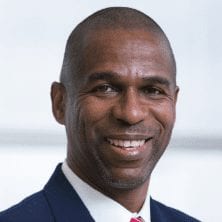
Elliott Paige is the Director for Air Service Development at Hartsfield-Jackson Atlanta International Airport. He joined the world’s busiest and most efficient airport after a successful career promoting trade and investment for over 20 years, including serving 10-years as a diplomat in Geneva, Switzerland. Elliott also worked as an international civil servant with the World Trade Organization and the United Nation’s International Trade Center. Since at Hartsfield-Jackson, he has built solid relationships with aviation executives worldwide, recruited several international passenger and cargo airlines, plus several domestic airlines. His efforts are supported through collaboration with various stakeholders – Mayor’s Office, Metro Atlanta Chamber, Atlanta Conventions and Visitors Bureau, Georgia Department of Economic Development, diplomatic community and private sector partners. Elliott has revised the Air Service Incentive Program according to Federal Aviation Authority rules to attract new routes, and continues to direct the implementation of the Airport’s air service cargo strategy to increase cargo value and volume. He has a Masters degree in Economic Development, a Bachelor in Economics and Management, and holds global certifications as International Airport Professional (IAP) and Airport Executive Leadership Professional (AELP) from Airports Council International and Concordia University. Elliott speaks English, French and Spanish. He is a board member of the World Trade Center Atlanta chapter, the Atlanta Air Cargo Association, the Georgia Council for International Visitors, a trustee of The International Air Cargo Association and advisory board member of Clayton State University School of Supply Chain Management. Learn more about Hartsfield-Jackson Atlanta International Airport here: https://www.atl.com/
